History of Animation Spring 2024 - Final
1/98
There's no tags or description
Looks like no tags are added yet.
Name | Mastery | Learn | Test | Matching | Spaced |
|---|
No study sessions yet.
99 Terms
Snow White and the Seven Dwarves (1937)
The first "modern" animated feature. "Disney's folly" was a big gamble to move animation forward from one reel novelties to a legitimate art form. It was a smash hit
Queen spinning after taking the potion was from the use of the multiplane camera on "The Old Mill"
Photo-rotos: would print live-action film, cel punch it, and literally trace on top of it
Used photo-roto and reference live-action
Made $8 million, cost 1.5 mil
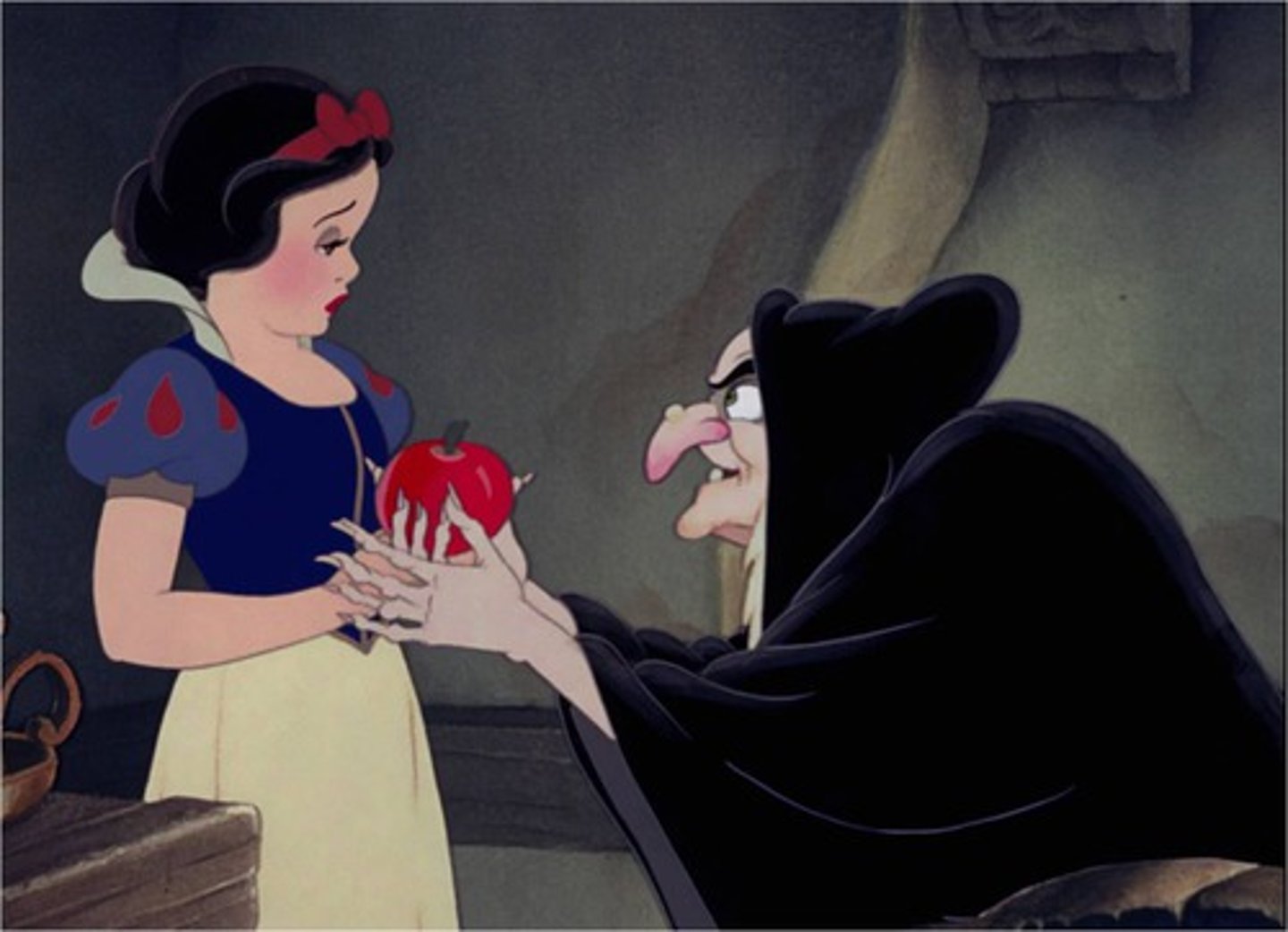
Pinocchio (1940)
Today is considered one of the pantheon of animated films, but was a box-office failure during its first-run
Dark, but not as dark as the source material
Many pinocchio movies
Simple scene got applause, not any of the crazy multiplane shot
All the water is hand-done
Failed at the box office, got about maybe 2 mil, half of production cost
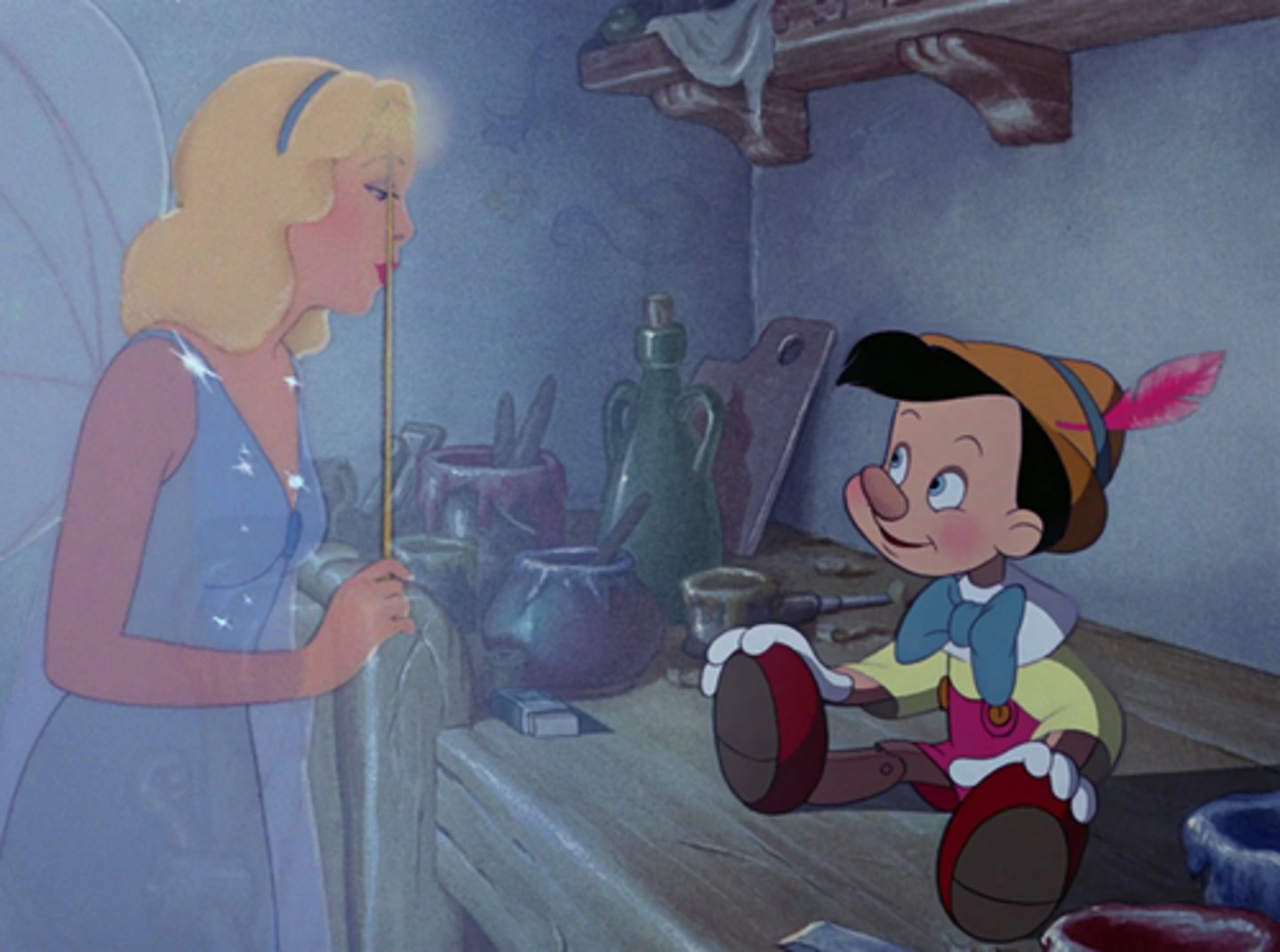
Fantasia (1940)
-Initially began as a Silly Symphony short, The Sorcerer's Apprentice, designed as a comeback role for Mickey Mouse, developing into a "concert film" consisting of 8 animated segments set to classical music. Was also a box office disappointment.
-"Fantasound": surround sound outfitted 12 theaters
-Bella DeGosi hired Dracula's actor for poses
-there was supposed to be an evolution sequence but it didn't go all the way to mankind as to not upset religious community
-when Disney re-released it, it was advertised as a psychedelic film
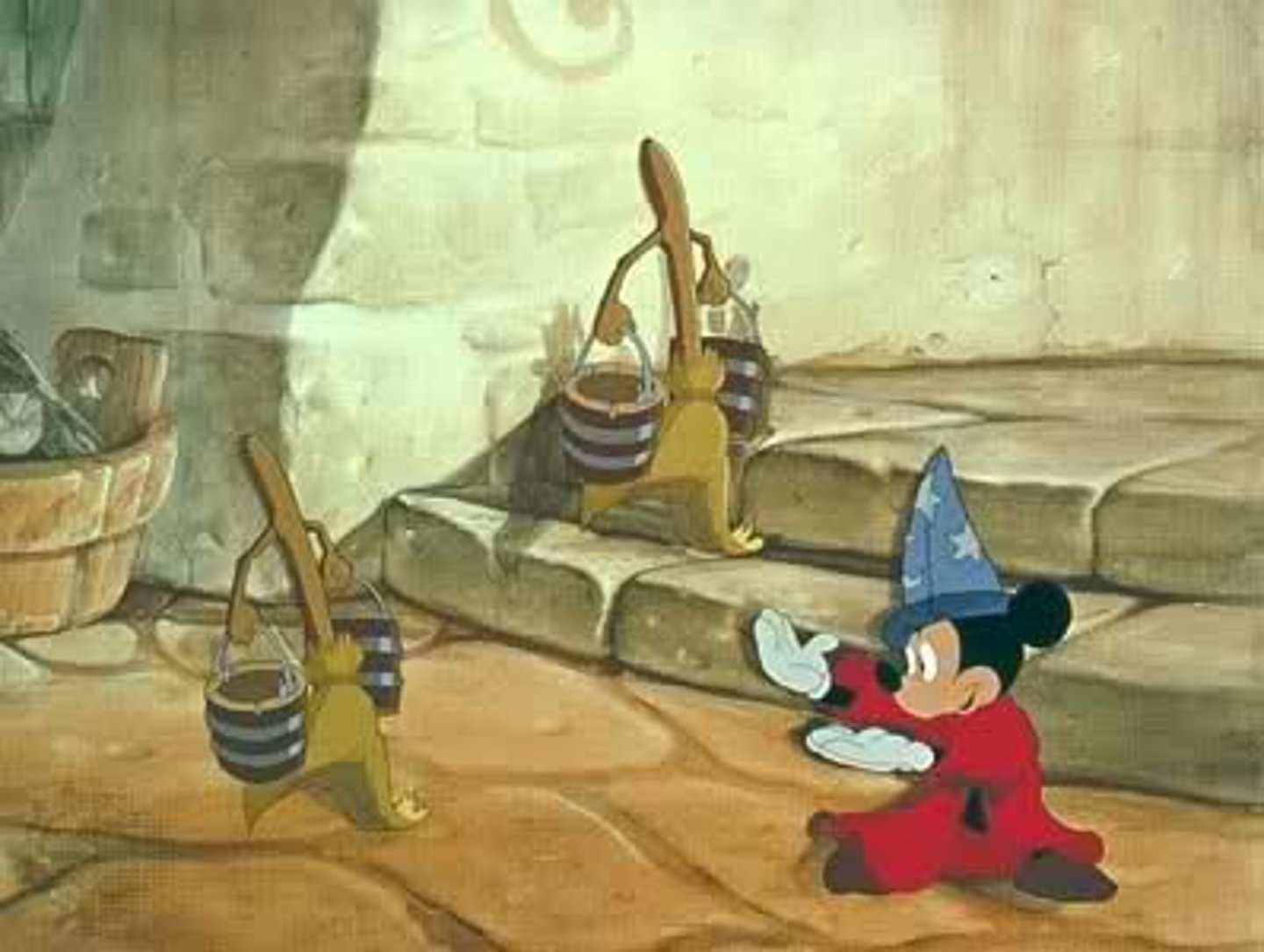
Gulliver's Travels 1939
Fleischer Studio animated feature, produced to answer the success of Snow White and the Seven Dwarfs.
second cel-animated feature film and the first produced by a studio other than Walt Disney Productions.
A success, Gulliver led to production of Mr Bug Goes To Town (1941) which was relegated to second feature status, perhaps falling victim to Paramount assuming control of the Fleischer studio during production
Very cinematic camera angles and techniques
Italian stereotypes
Had a slap-stick character to be like a recurring character, but he was too annoying
Among top 10 movies of that year bc
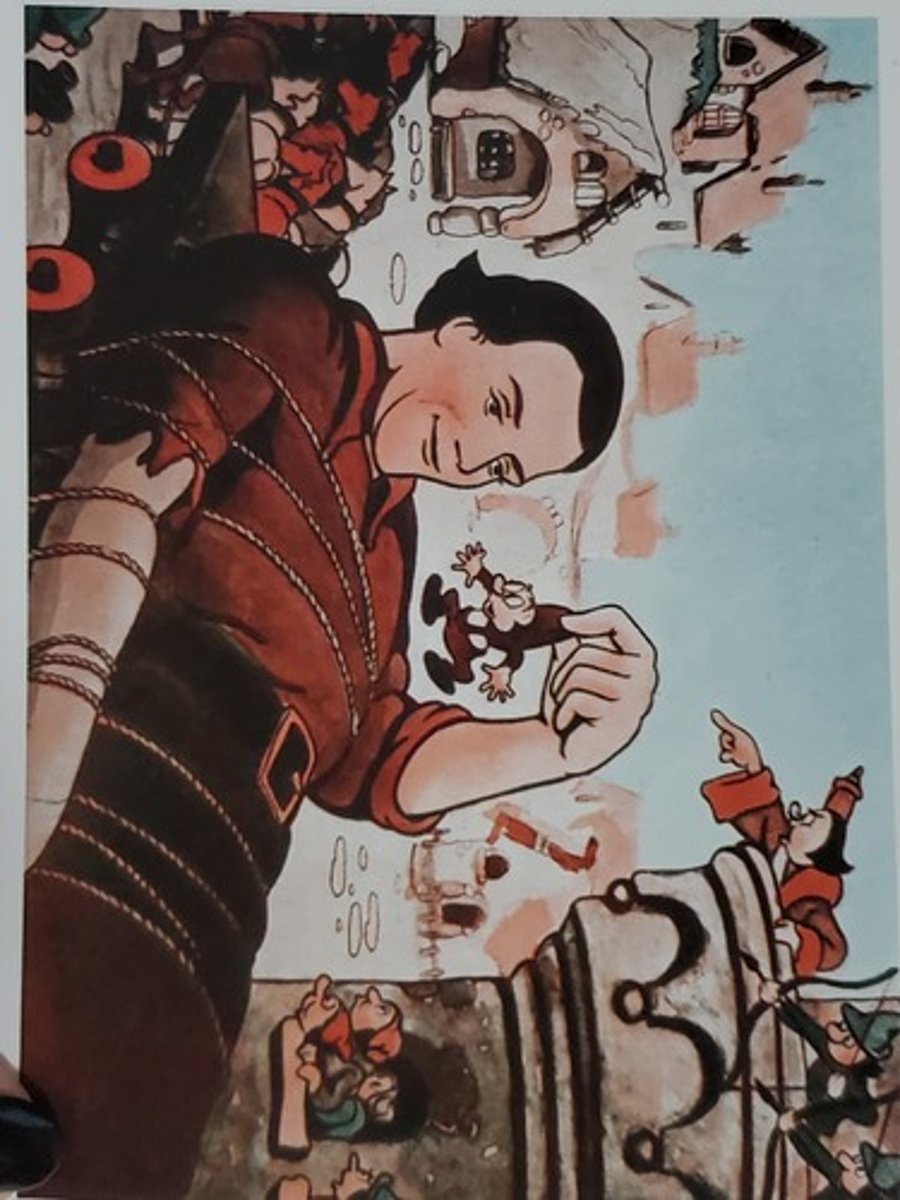
Mr Bug Goes to Town 1941
-Fleischer Studios gets bought during production by Paramount— Famous Music Co cameo— and then the Brothers Fleischer got forced to resign
-Parodies a live-action movie called "Mr Deeds Goes to Town"
-Paramount didn't do a lot in terms of marketing, but they weren't expecting it to do well
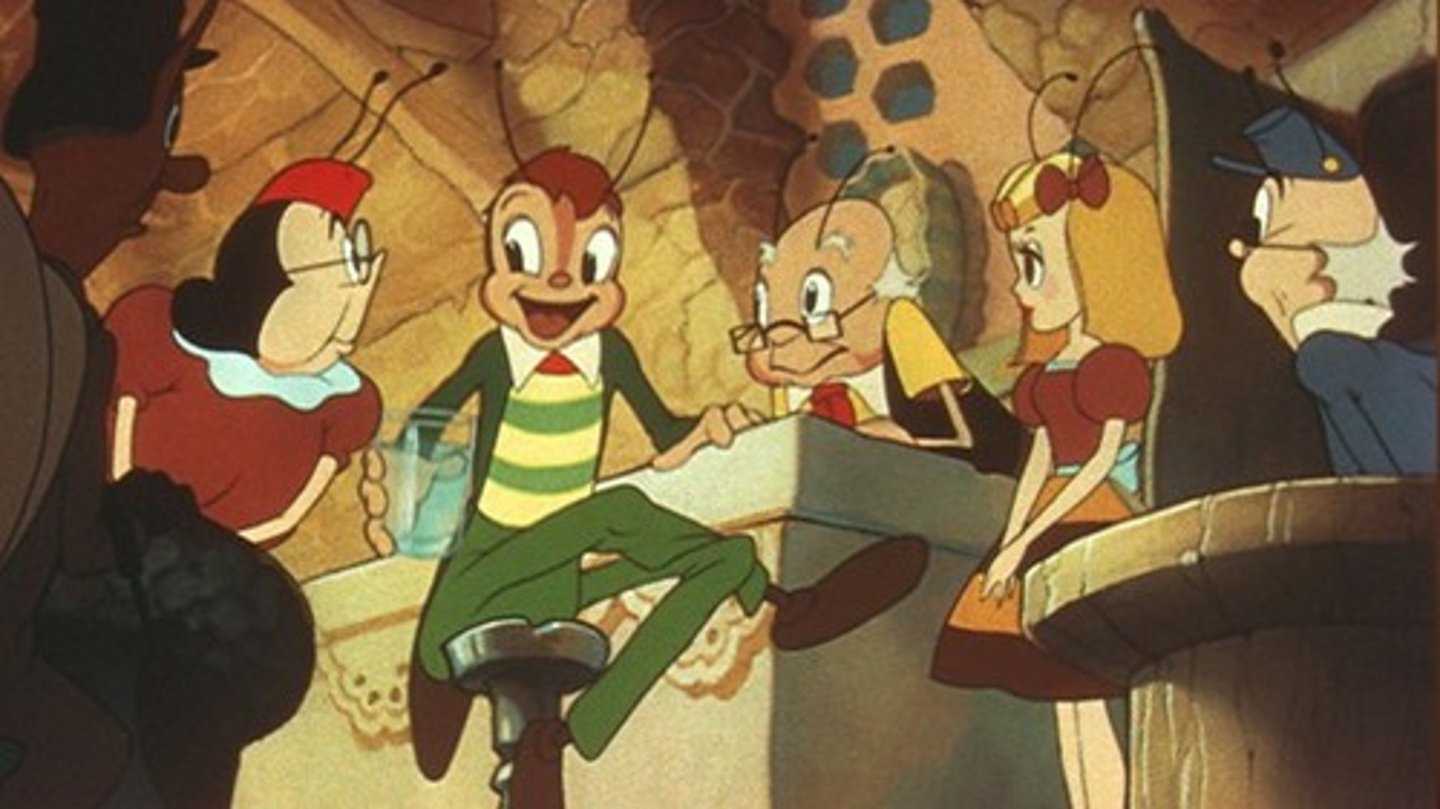
Dumbo 1941
-At 64 minutes, the shortest Disney animated feature, designed to help keep the studio solvent after the losses incurred by Pinocchio and Fantasia
-created by Disney storyboarders to be small and simple at half the cost of Snow White so they could make money
-Started as a roll-a-book kind of
-Stork character was a caricature of the his VA, Sterling Holloway
-Staff went on strike
-Even though America was joining WW2, it made a lot of money; people enjoyed escapism
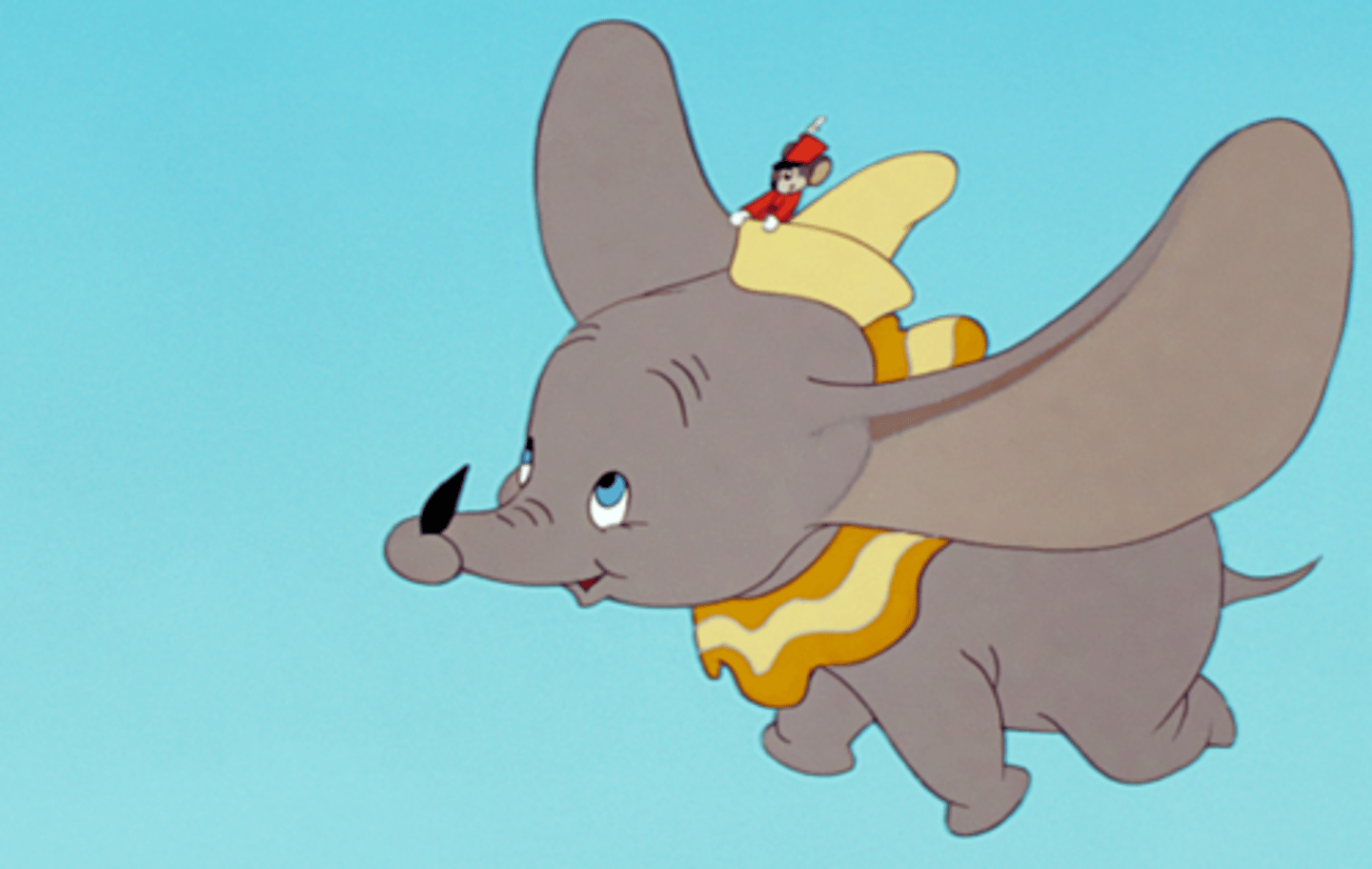
Uncle Tom & Little Eva (1932, Davis, Foster)
-A broad burlesque of Harriet Beecher Stowe's 1852 anti-slavery novel "Uncle Tom's Cabin."
-A Jungle Jinks (TV) cartoon
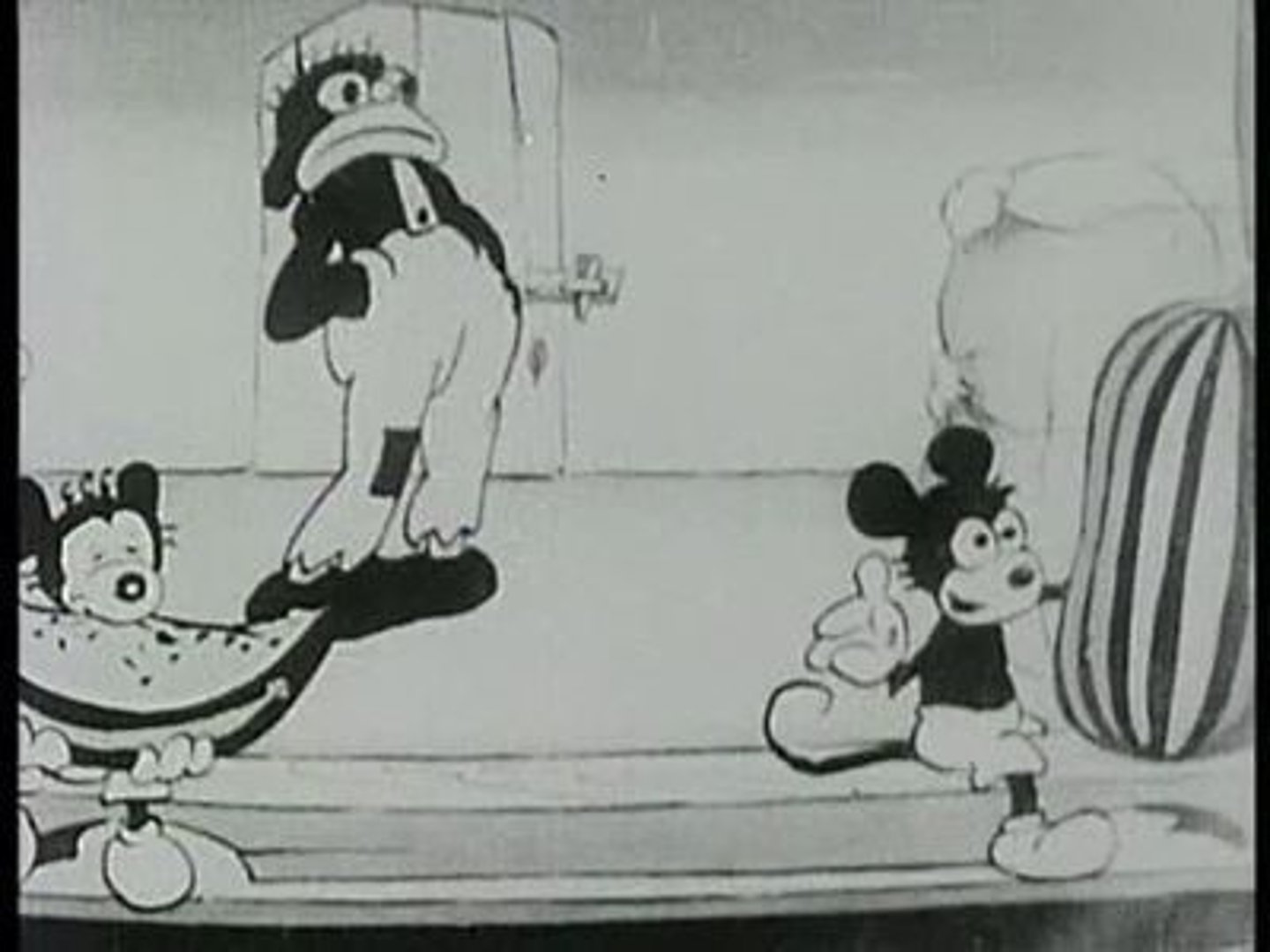
Three Little Pigs stereotype revision 1933
-The one we saw earlier was the remaster, not the original version
-Original version was the wolf dressing up as a Jewish peddler
-Redone after ww2
"Minstrel" Compilation excerpt from Spike Lee's Bamboozled
2000
Scrub Me Mama With A Boogie Beat (1940, Lantz)
-Notorious for its casually racist stereotypes, this cartoon has been withheld from distribution by Universal since 1949, after a strong objection was raised by the NAACP
-Features the Jezebel (light-skinned, over sexualized Black woman) and Mammy (heavy-set/unattractive caretaker) stereotype dichotomy
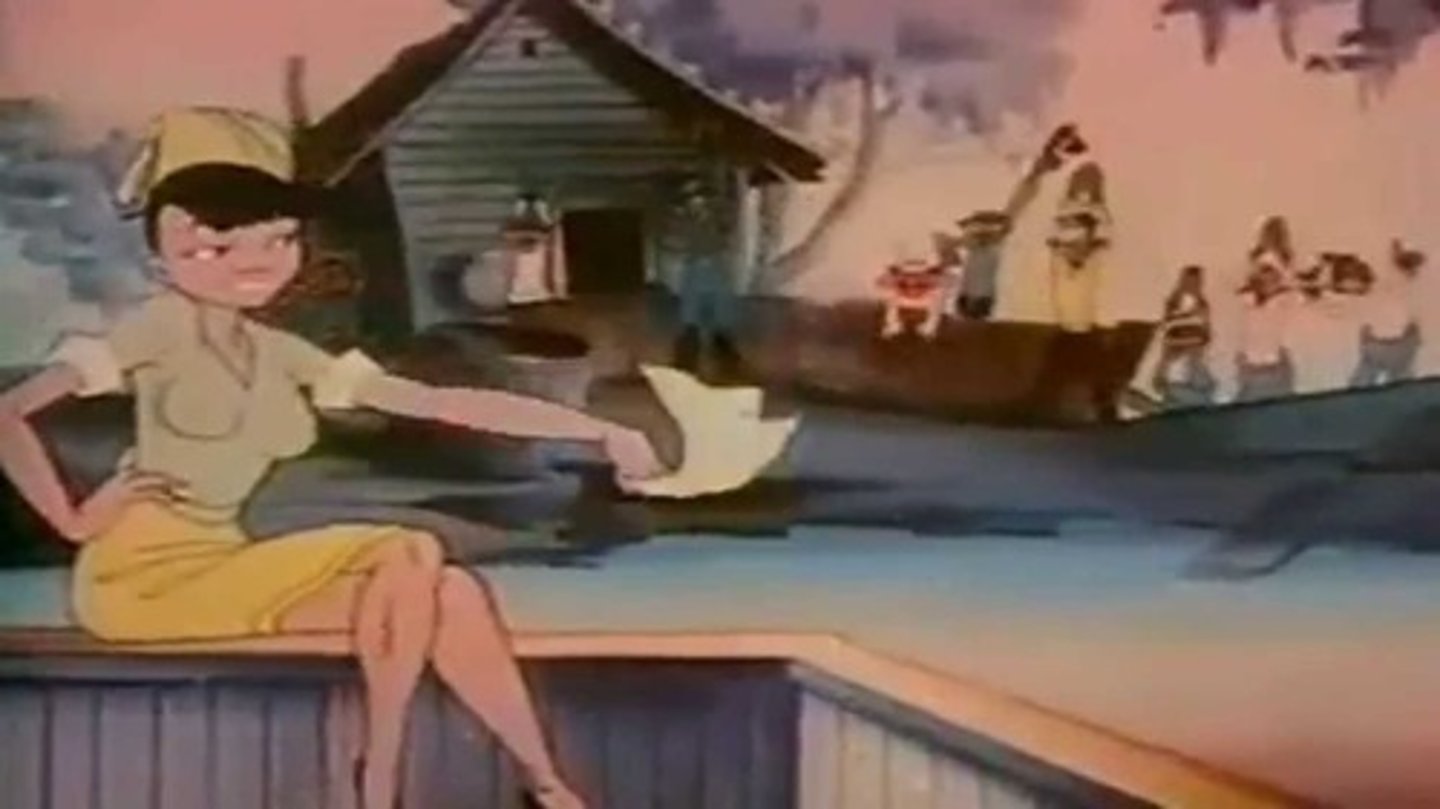
You're A Sap, Mr. Jap (1942, Gordon)
-The first cartoon from Famous Studios after the Fleischers' ousting
-The cartoon was kept out of commercial release for years due to its racially offensive, though historically significant, caricaturing of the Japanese.
-Popeye cartoon
-Popeye doesn't start fights, but finishes them; symbolic of Pearl Harbor and America's introduction to the war
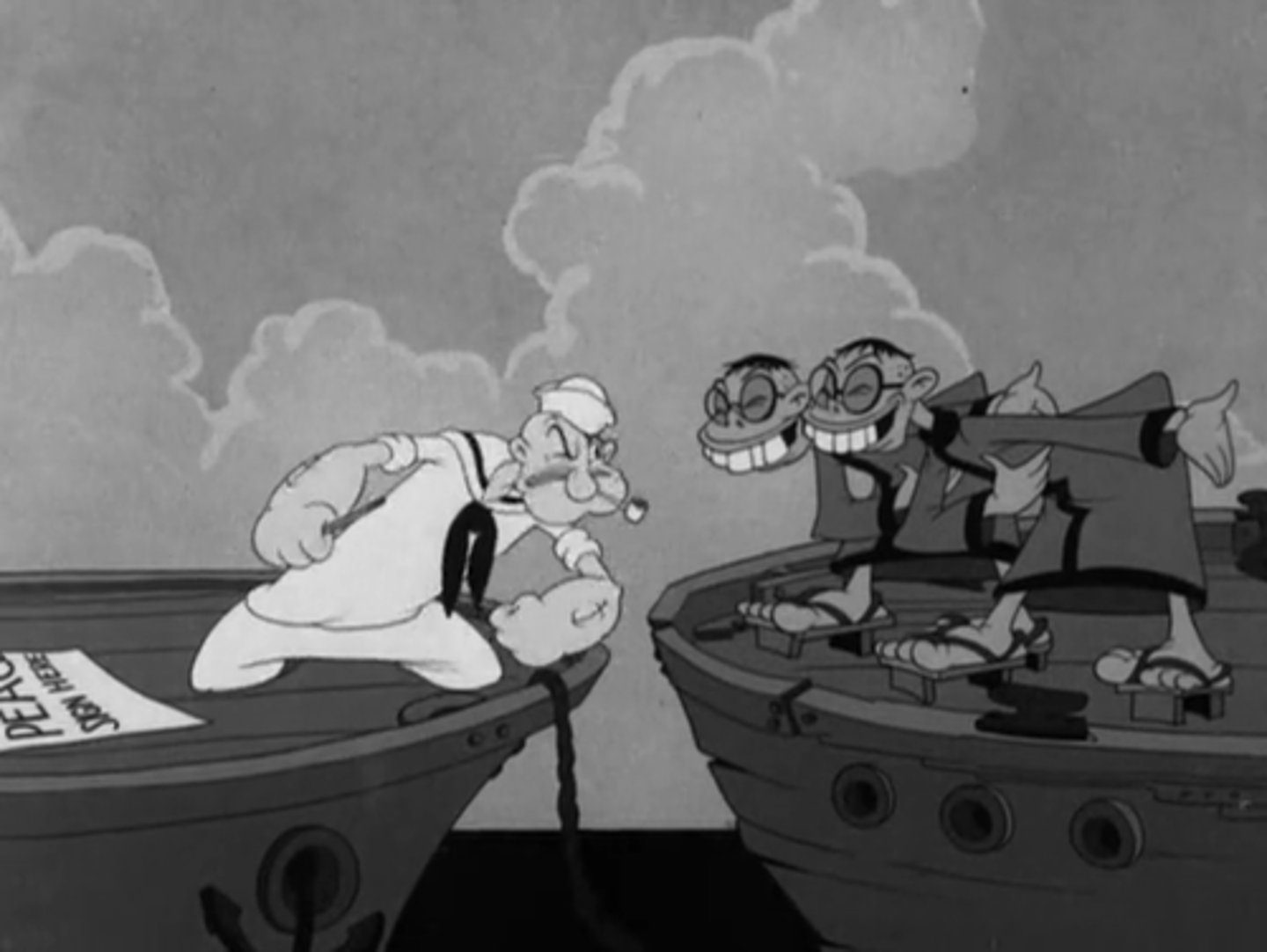
Evil Mickey Attacks Japan (c.1934-36)
-An example of Japanese wartime propaganda, using cultural -figures to represent the enemy (the Allied forces) as well as Japanese society
-Uses Mickey Mouse to depict America
-Mouse kidnaps a girl
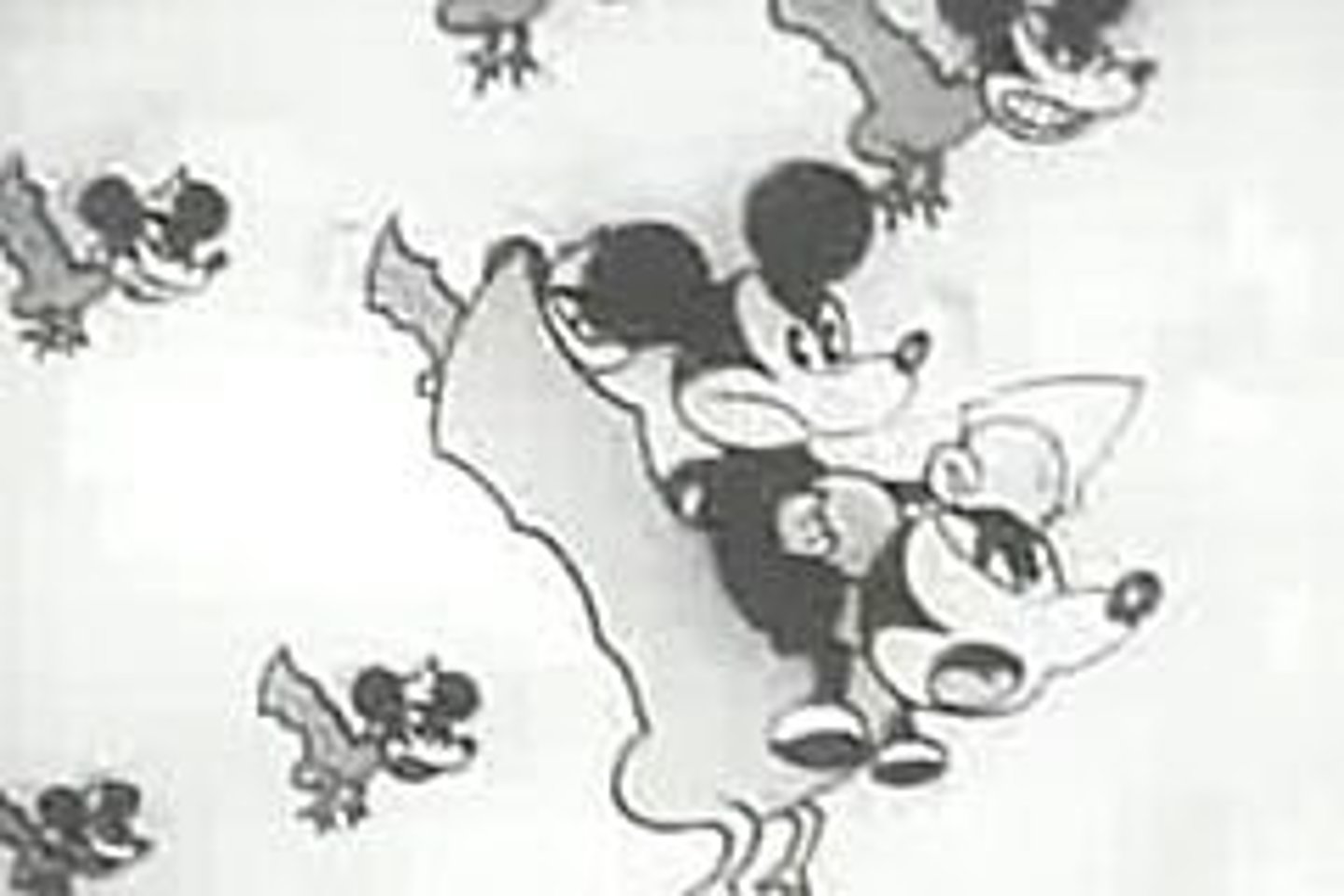
Der Fuehrer's Face (1942, Kinney)
-Originally titled Donald Duck in Nutzi Land, the cartoon features Donald Duck in a nightmare setting working at a munitions factory in Nazi Germany, and was made in an effort to sell war bonds.
-A good example of American World War II propaganda
-Only Donald Duck film that won an Oscar
-made fun of Hitler
-Donald Duck says "Heil Hitler"
-Film shown in theaters at the time but not released until WWII compilation (2004)
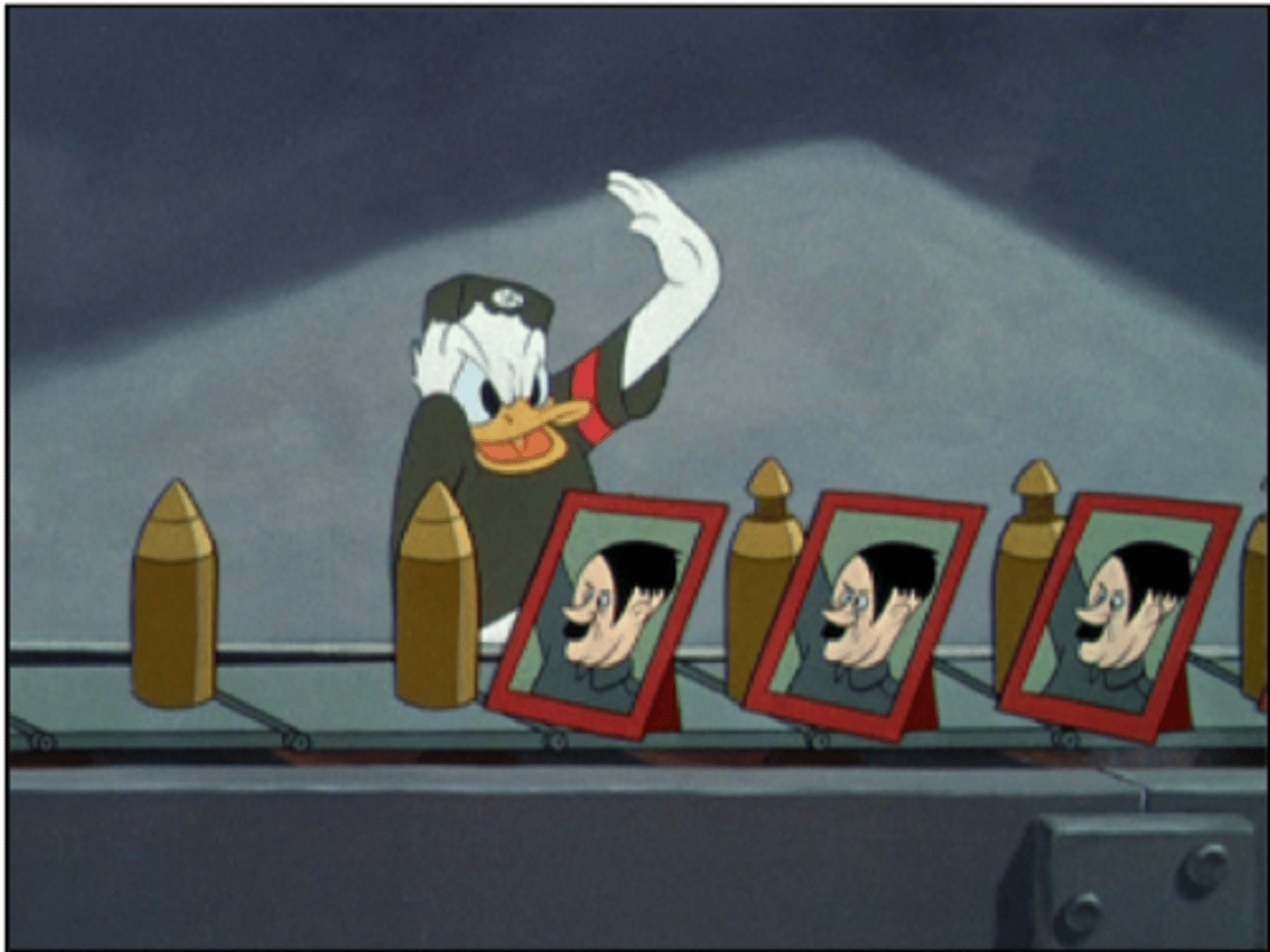
Nimbus Libéré (c.1943-44, Raymond "Cal" Jeannin)
Nazi occupied Vichy France propaganda cartoon featuring a Jewish radio announcer broadcasting the imminent arrival Allied bombers, flown by Mickey Mouse, Donald Duck, and Popeye, threatening innocent French civilians
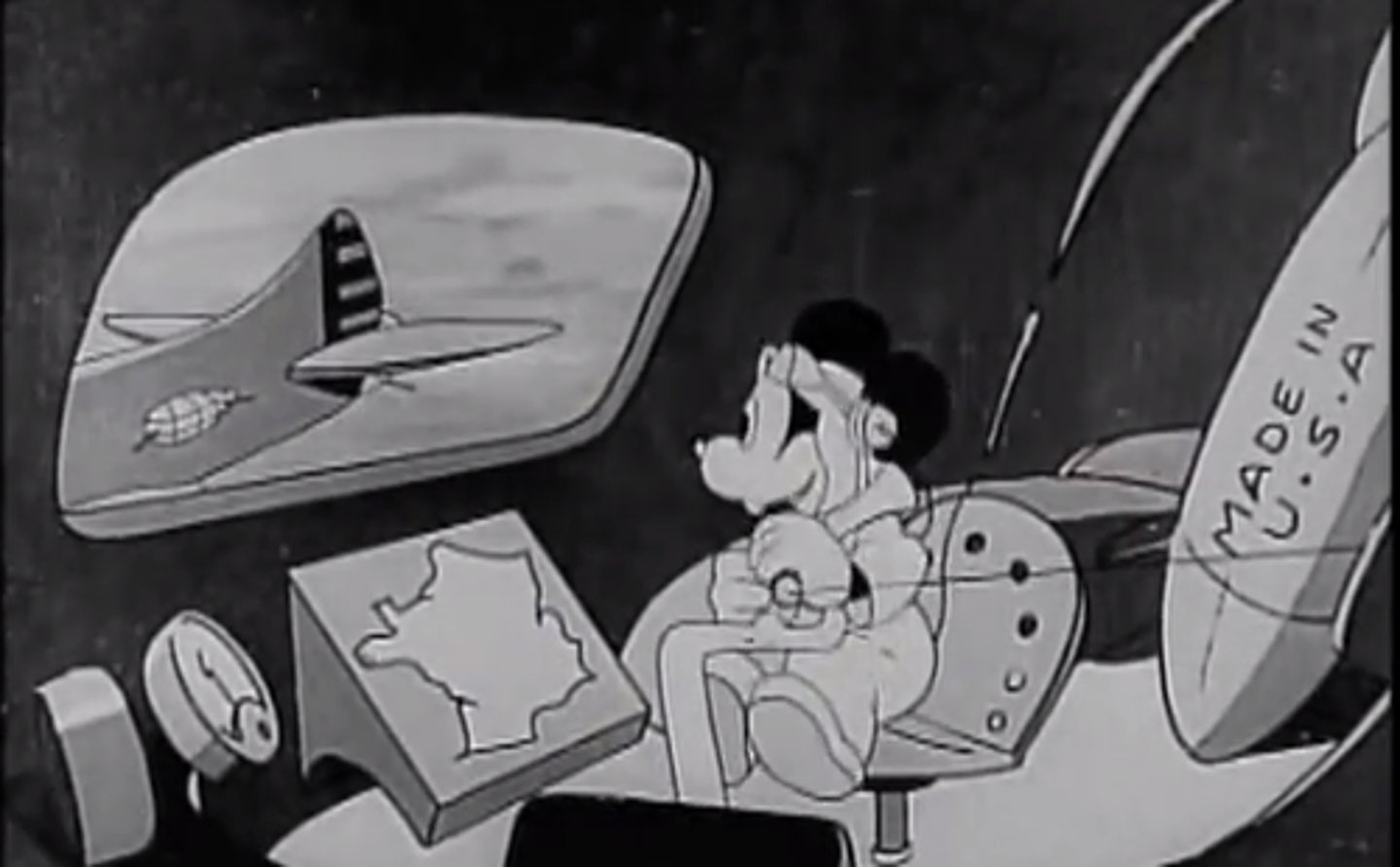
Coal Black And De Sebben Dwarfs (1942, Clampett/Warner Bros)
-The film is an all-black parody of Disney's Snow White and the Seven Dwarfs.
-The characters are classic examples of race stereotyping (one of the Warner censored 11)
-One of the most controversial cartoons in the Warner Bros. library, it is, nevertheless, often named as one of the best cartoons ever made, in part for its African-American-inspired jazz and swing music score
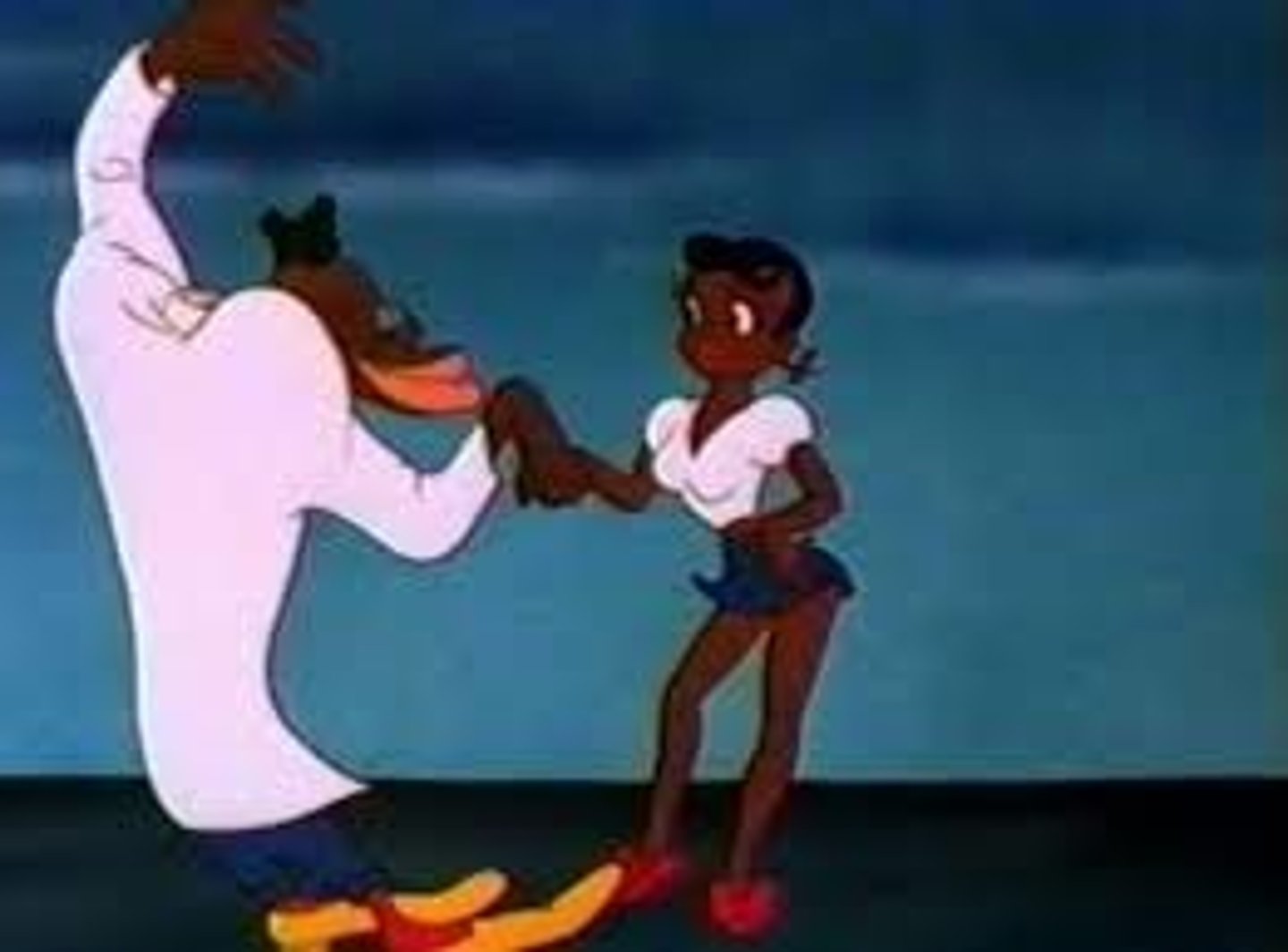
Education For Death (1943, Disney)
-is based on the non-fiction book by Gregor Ziemer, an American who lived in Germany until fleeing from the Nazis in 1939.
-The book highlights the Nazi schooling of young Germans, especially as it relates to preparing them for war
-Disney was paid by the gov't to make 30 propaganda films
Jungle Drums (Superman) (1943, Gordon)
-Directed by Dan Gordon, this is the fifteenth animated Superman short.
-It features a WWII propaganda theme (Superman vs. Nazi's) along with accepted African stereotypes of the period ("strange natives")
Private SNAFU (1943-45); Coming!! Snafu (1943, Jones); Booby Traps (1944, Clampett)
-Private Snafu is the title character of a series that was produced during World War II specifically for viewing by American G.I.s.
-The films were designed to instruct service personnel about security, proper sanitation habits, etc.
-The premise is that, through his irresponsible behavior, Snafu demonstrates what not to do while at war
Russian Rhapsody (1944, Clampett)
-mocks Adolf Hitler, showing him defeated by "Gremlins from the Kremlin" (many of them are caricatures of the Warner Bros. animation staff)
-This propaganda was meant to bolster our relationship with Russia, then our ally during WWII.
-near end of the war
Song Of The South (1946, Jackson)
-based on Joel Chandler Harris' Uncle Remus stories.
-The film's live-action sections, presenting a cheerful depiction of race relations in the Reconstruction-era South, remains controversial
-Briar Rabbit, Briar Fox, and Briar Bear
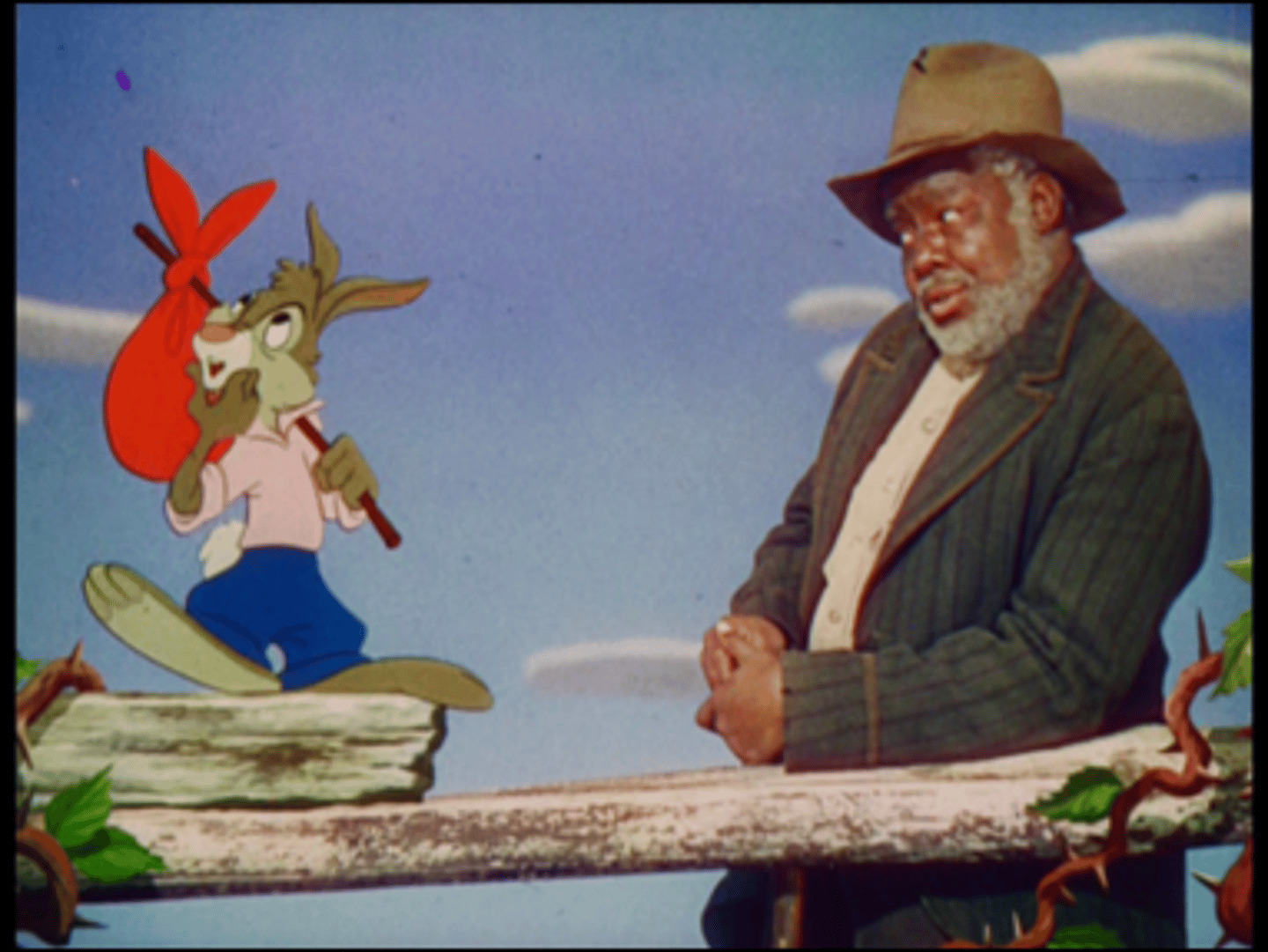
The Lost World (1925)
-Animation by Willis O'Brien, stop-motion pioneer.
-The first feature-length film to employ stop-motion animation as the primary special effect.
-Also the first dinosaur-oriented film hit
-Arthur Conan Doyle adaptation
-Matted into the shots
-Brontosaurus terrorizes London
Metropolis (1927)
-German science-fiction film directed by Fritz Lang.
-Stop motion animation to establish a futuristic city.
-Also special animated effects in creation of the robot Maria
King Kong (1933)
Pre-code fantasy/monster film directed by Merian C. Cooper and Ernest B. Schoedsack and produced by David Selznick, especially noted for its stop-motion animation and compositing effects by Willis O'Brien and groundbreaking musical score by Max Steiner (first fully scored film)
Ray Harryhausen
-Inspired by King Kong, spent early years experimenting with stop-motion, eventually hired as an assistant animator on Willis O'Brien's Mighty Joe Young (1949), winning an Oscar for Best Special Effects.
-Went on to animate many stop-motion/live action films
MIGHTY JOE YOUNG (1949)
BEAST FROM 20,000 FATHOMS (1953)
Very loosely based on a Ray Bradbury short story
IT CAME FROM BENEATH THE SEA (1955)
EARTH vs THE FLYING SAUCERS (1956)
20 MILLION MILES TO EARTH (1957)
7th VOYAGE OF SINBAD (1958)
First stop-motion/live action film in color.
JASON AND THE ARGONAUTS (1963)
Featuring skeleton fight.
CLASH OF THE TITANS (1981)
Harryhausen's last feature film
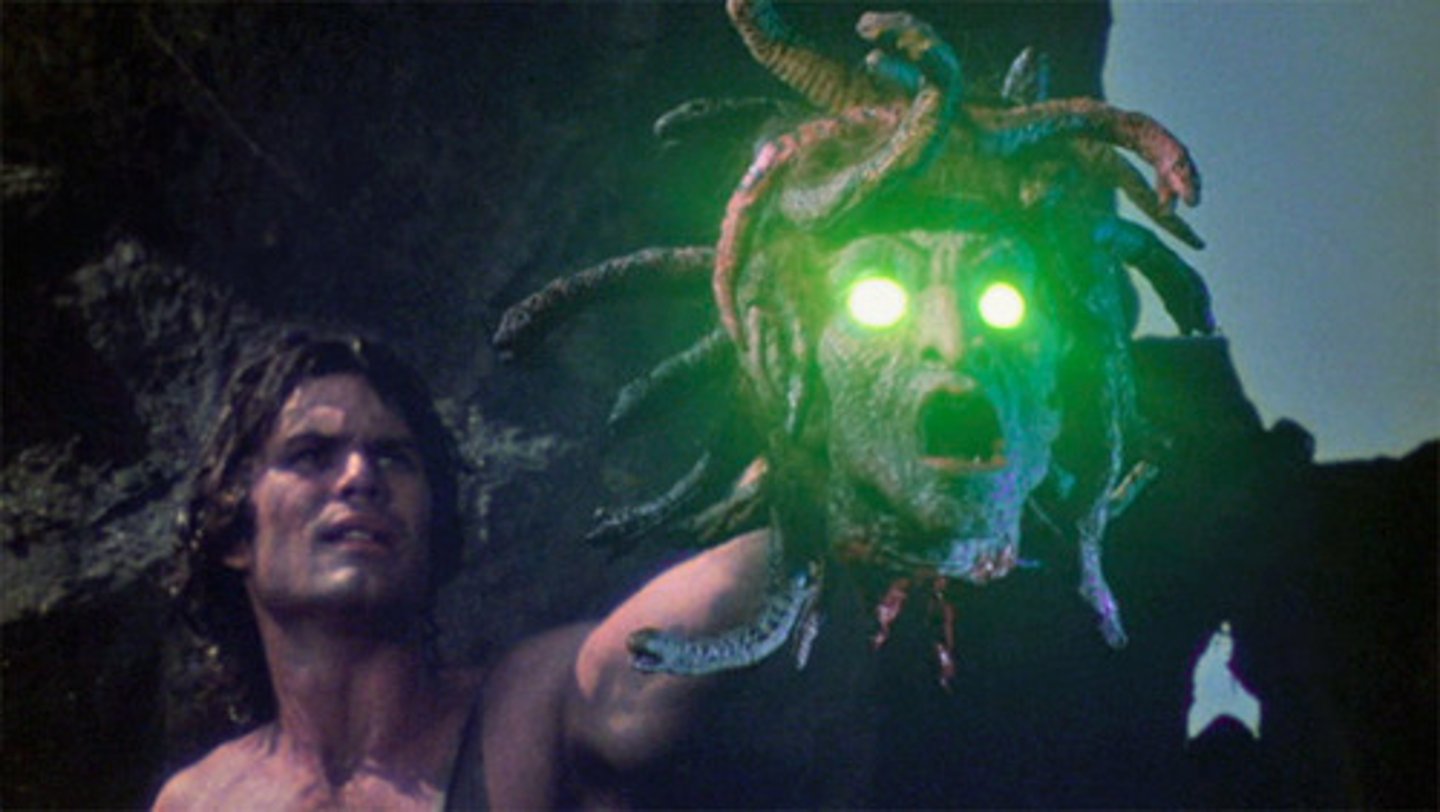
THE FABULOUS WORLD OF JULES VERNE
(1958) Directed by Karel Zeman.
-Based on Jules Verne's novels with production design that imitates the original illustrations of Verne's works, combining live action with various forms of animation.
-Zeman has often been called the "Czech Méliès."
-Not widely released, kind of an industry-only thing
-Mix of live action and stop-motion
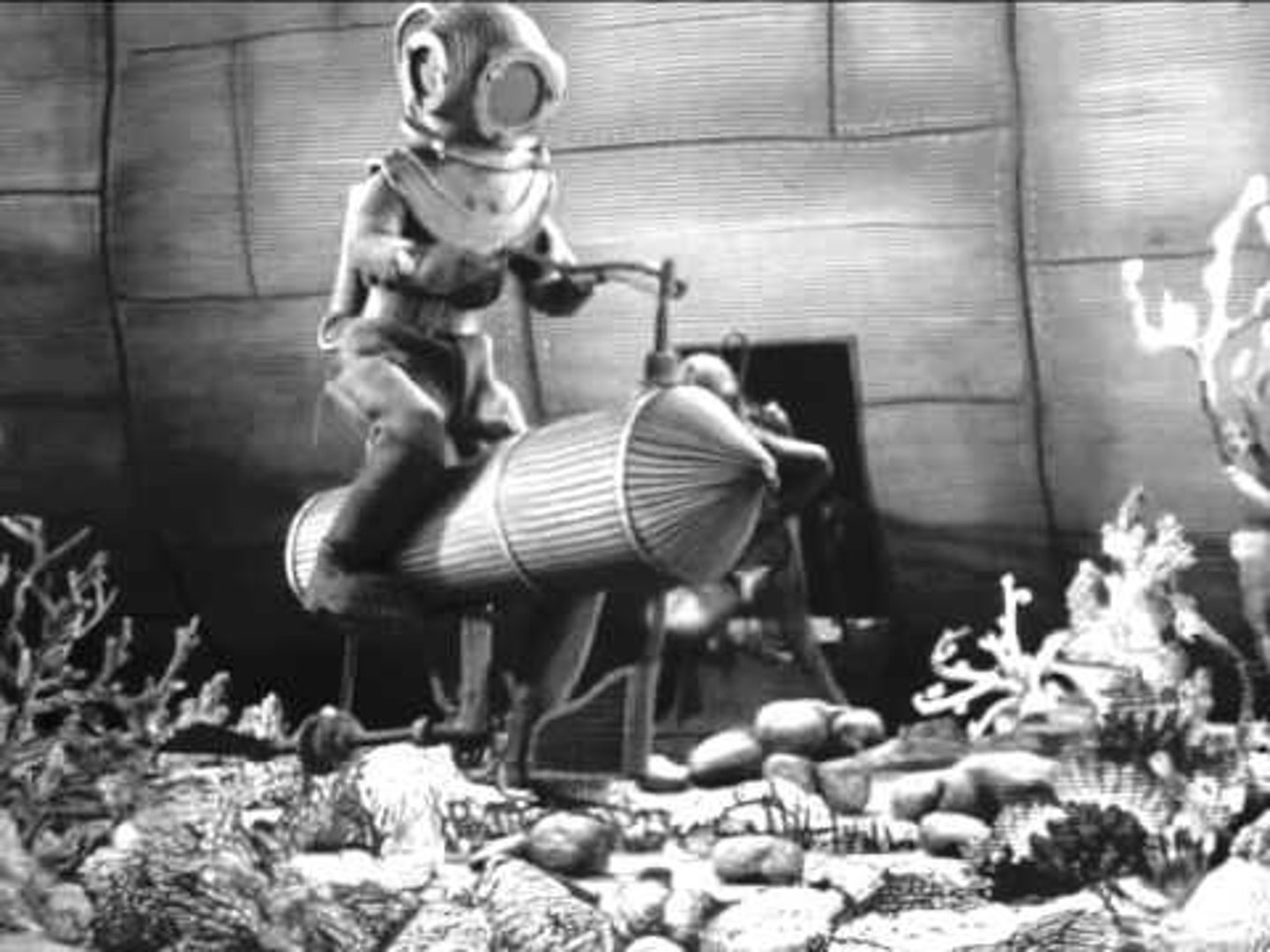
JURASSIC PARK
(1993)
-Directed by Steven Spielberg, the first installment of the Jurassic Park franchise, based on Michael Crichton's popular novel.
-Phil Tippet's "go-motion" dinosaurs replaced by Dennis Muren's CGI creatures
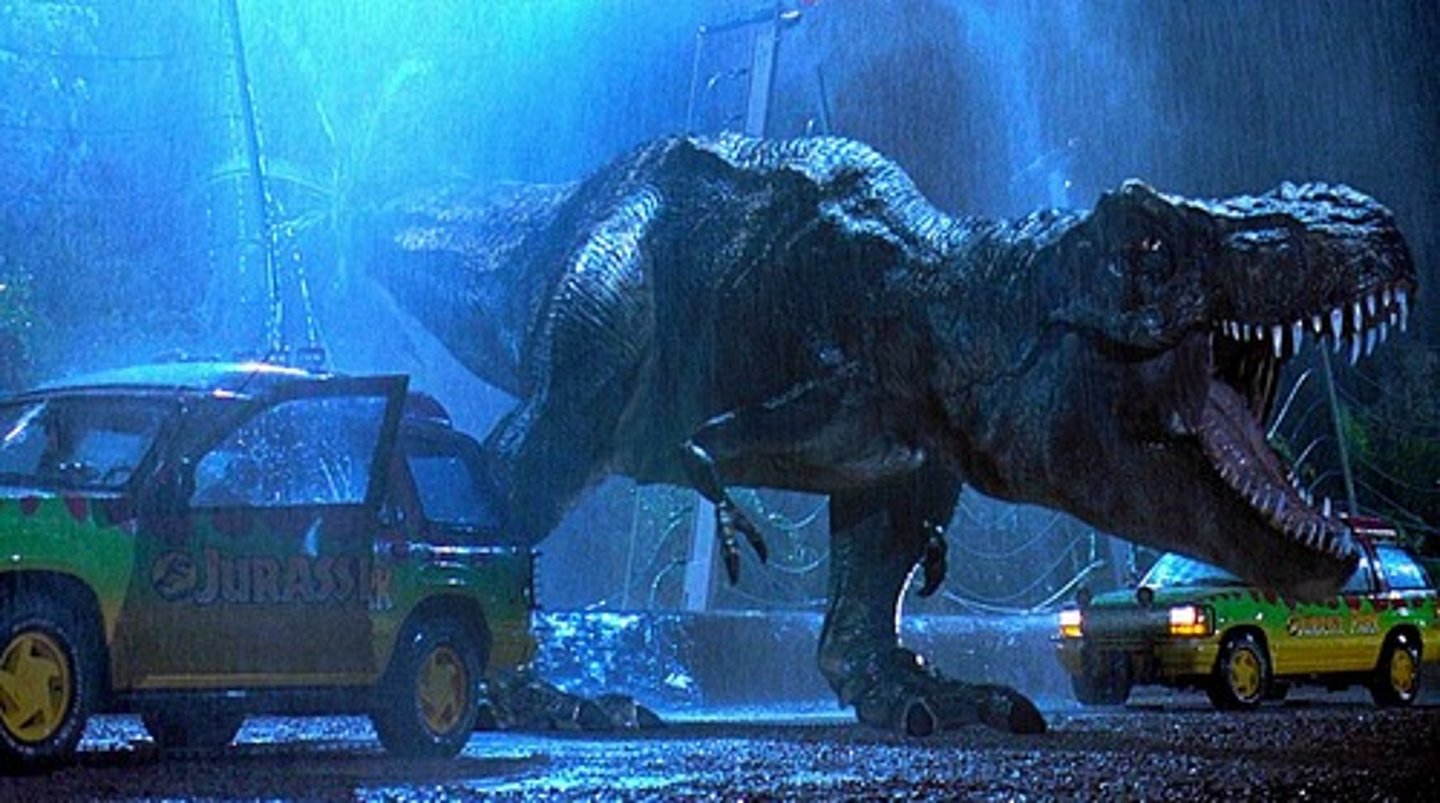
THE NIGHTMARE BEFORE CHRISTMAS
(1993)
-Directed by Henry Selick and produced by Tim Burton who initially developed the story as a project for Disney, while he and Selick worked there.
-Later, partnering with the studio to make the film, Nightmare revitalized the stop motion feature film genre
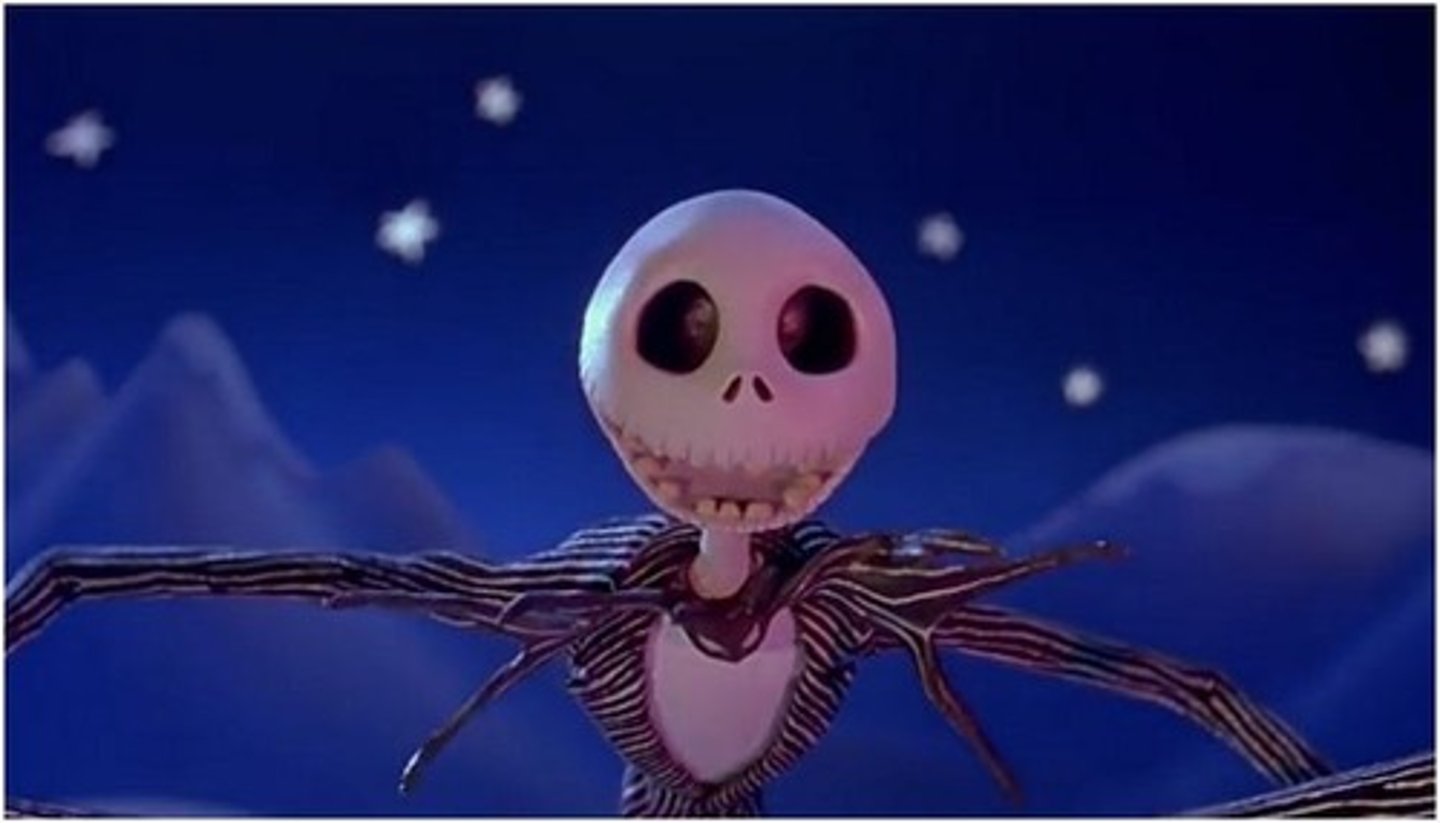
Aardman Animations
-Based in Bristol, England and founded in 1972 by Peter Lord and David Sproxton
-Aardman is known for stop-motion clay animation shorts and features
CHICKEN RUN
(2000 Peter Lord and Nick Park):
-Aardman's feature debut, Chicken Run is the highest-grossing stop-motion film of all time
-Based on a film called The Great Escape
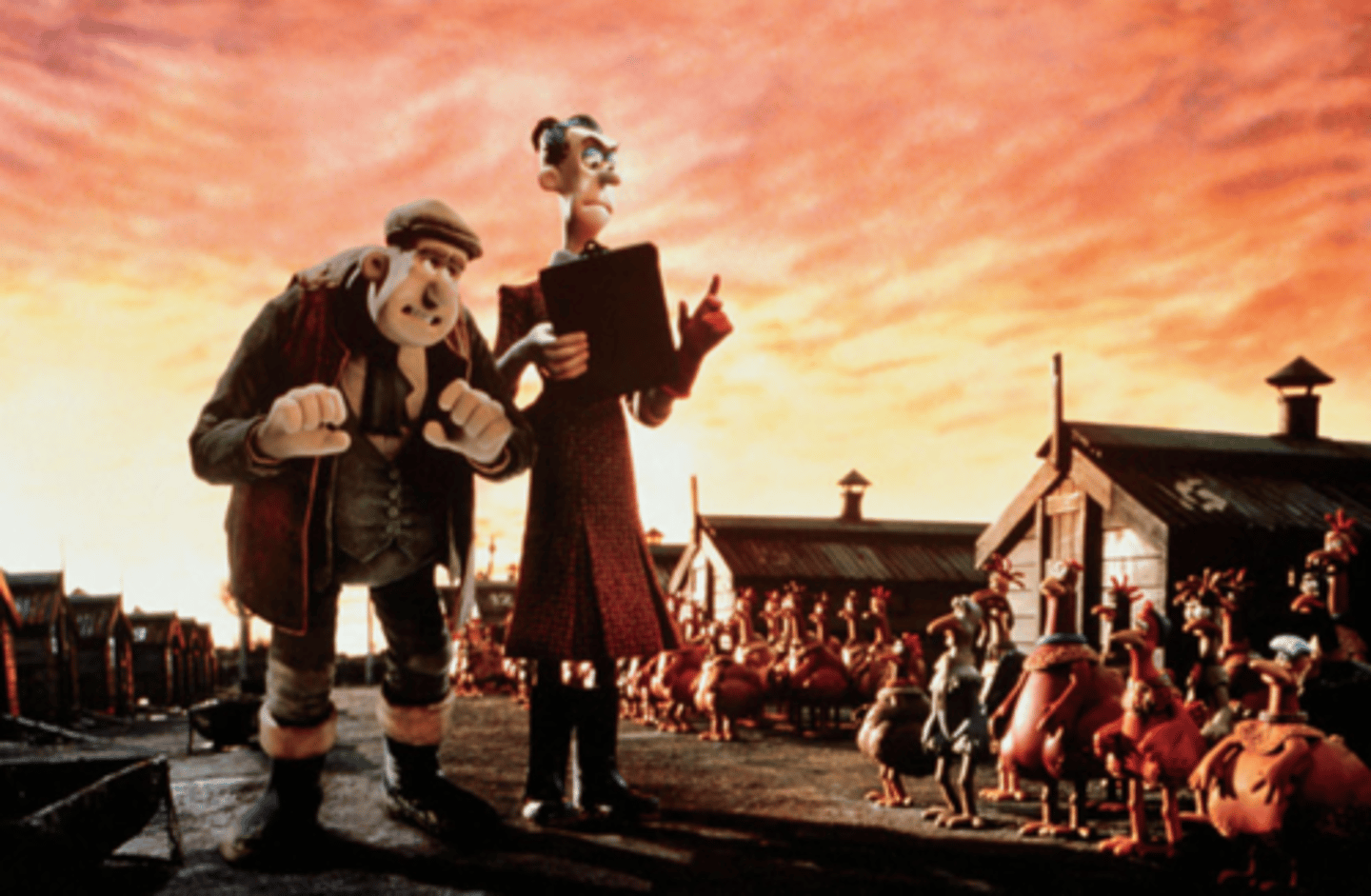
LAIKA Entertainment
-American stop-motion animation studio, known for its stop-motion feature films
-All have been nominated for Best Animated Feature Oscars
-The Boxtrolls, Kubo and the Two Strings and Missing Link
THE PIRATES! BAND OF MISFITS (2012, Peter Lord, Jeff Newitt)
Recent Aardman feature

A GRAND DAY OUT (1989, Nick Park)
A little surprise in this excerpt from Nick Park's first Wallace & Grommet short
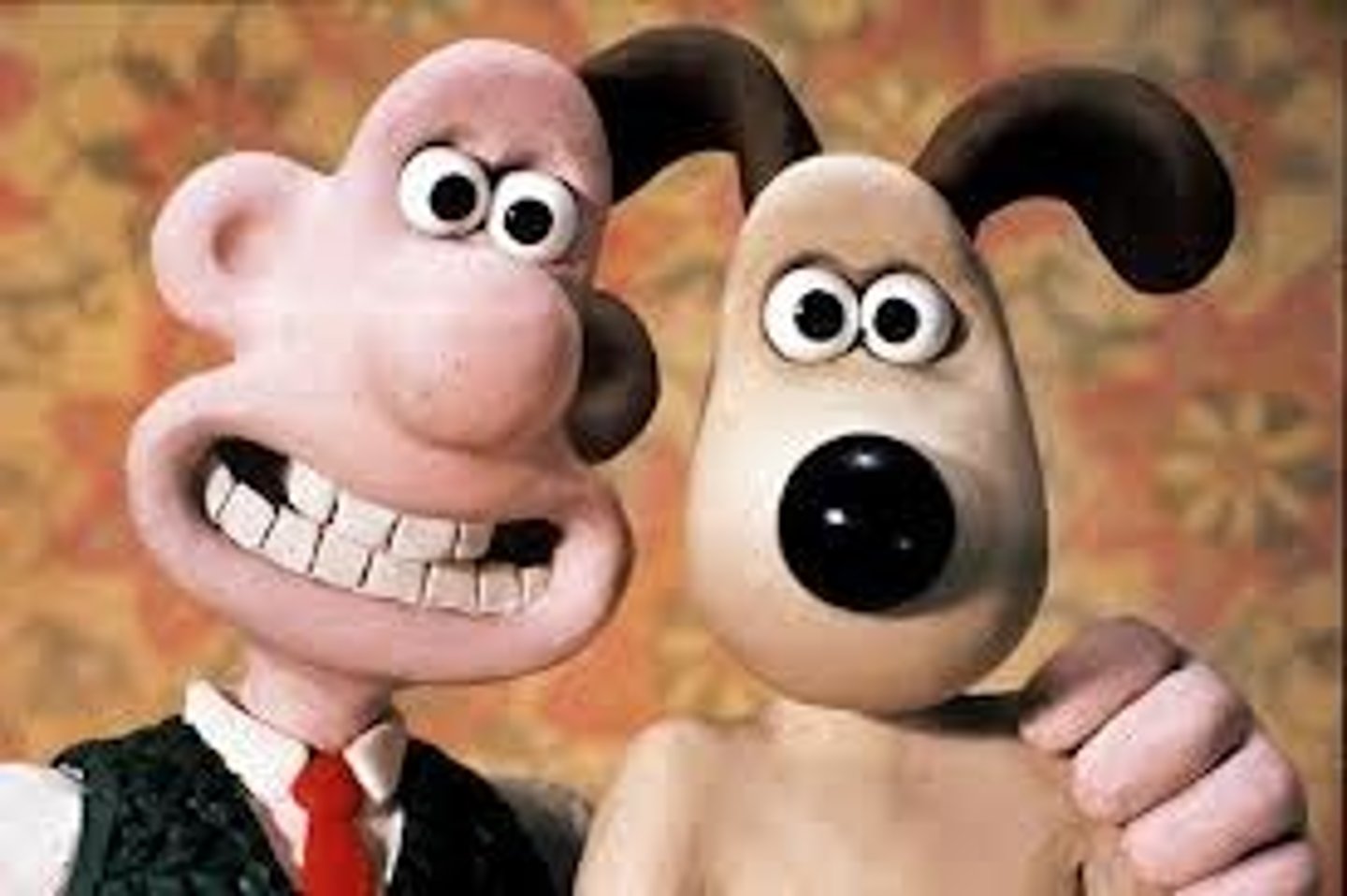
Early Japanese Animation 1928
Kobu tori 1929
-Unknown authorship, featuring Japanese mythological characters
-Super advanced for its time
Momotaro's Divine Sea Warriors (1945)
-Mitsuyo Seo's WWII Japanese propaganda film for children, predicting the anime style
-Second film
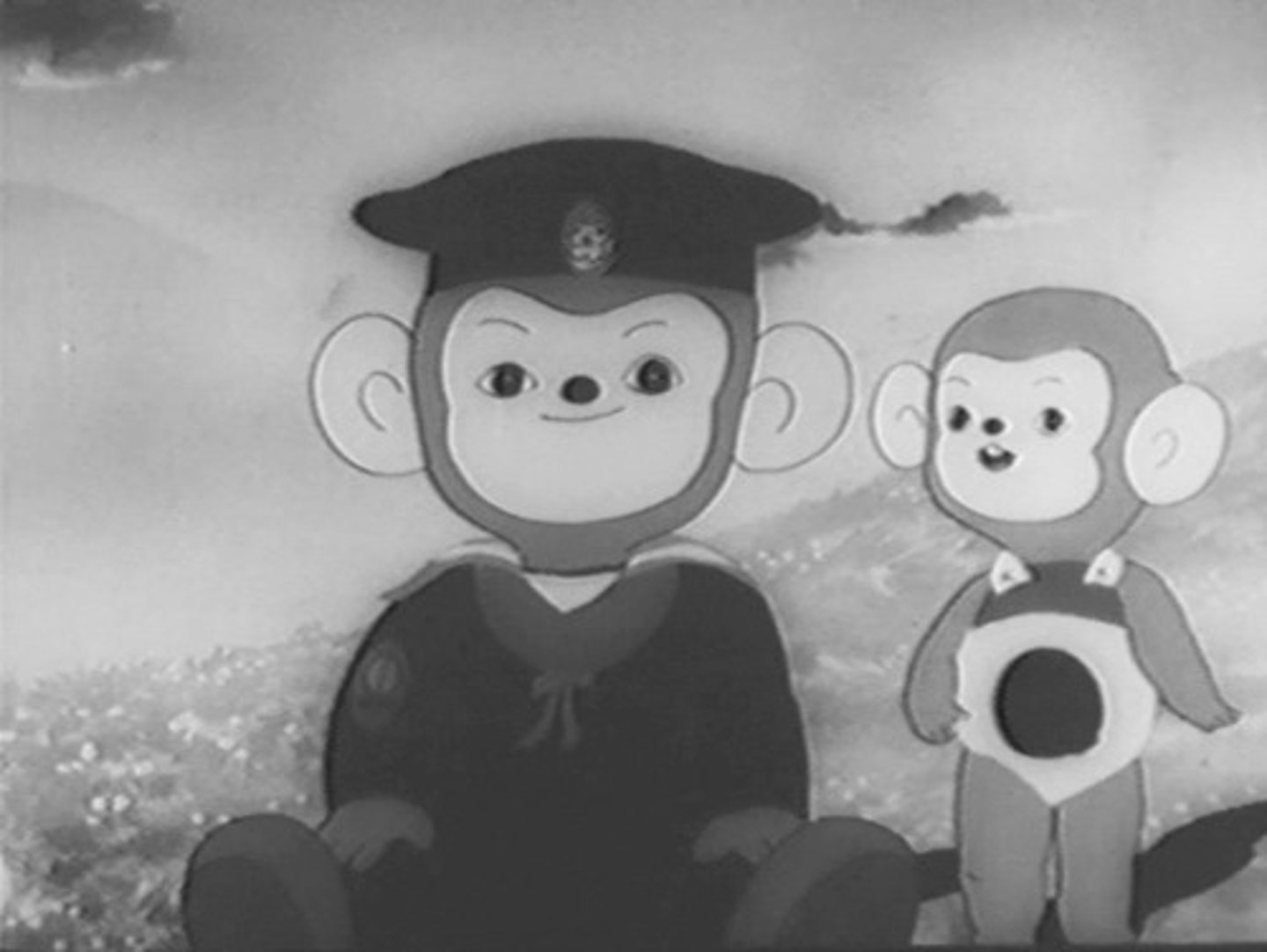
SPEED RACER (aka: Mach GoGoGo) 1967 sasagawa and yoshida
An early example of anime becoming a successful franchise in the United States, also spawning media spinoffs.
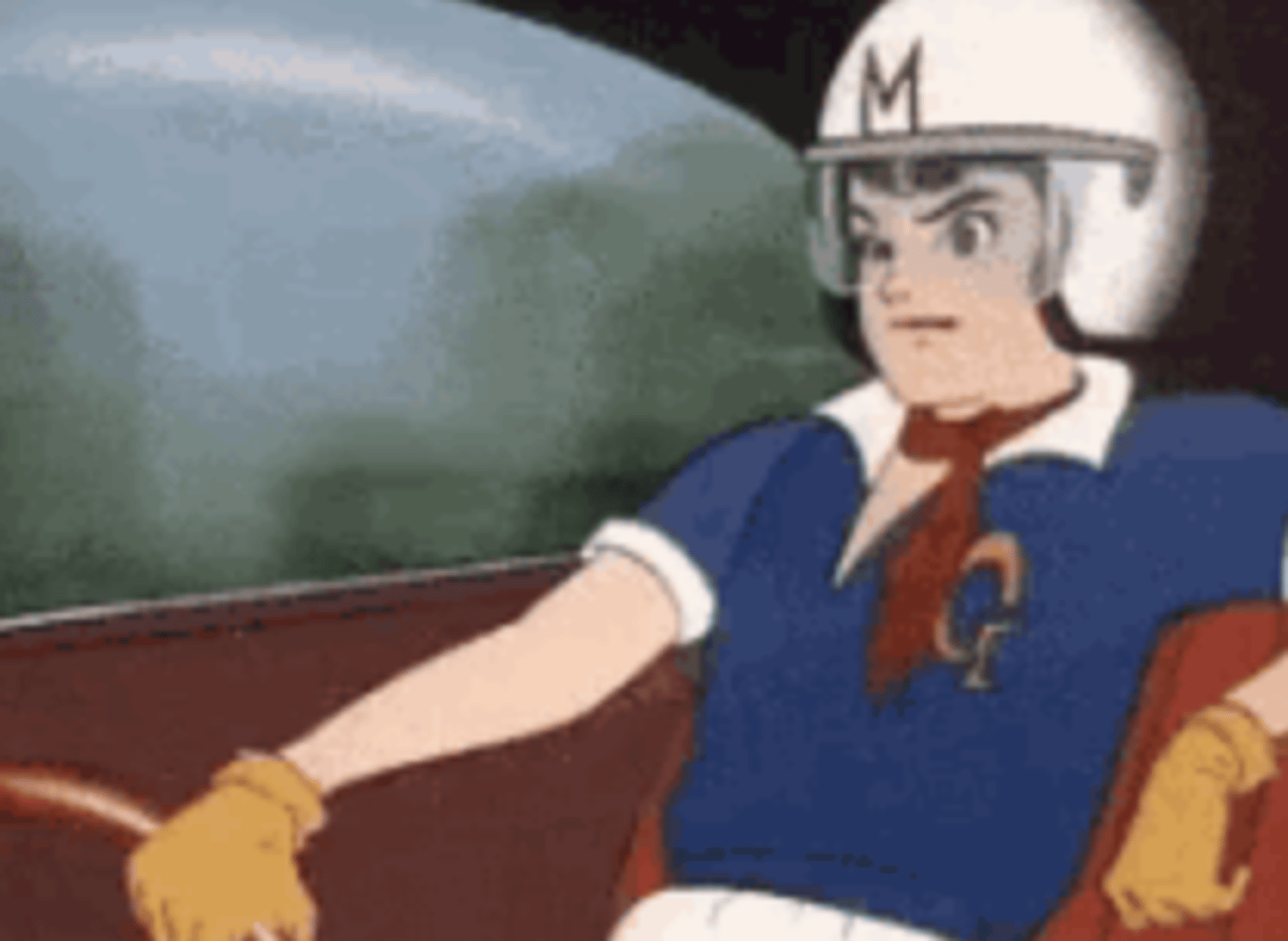
SAZAE-SAN 1969 to date Eiken studio/fuji tv
-From a comic strip by Machiko Hasegawa, developed into a television series premiering in 1969 and continuing to the present
-It is a family friendly, intergenerational comedy and the longest running program, animated or live-action, in television history
-Over 2,250 episodes containing over 7,000 segments. To view the entire series would take about 38 days
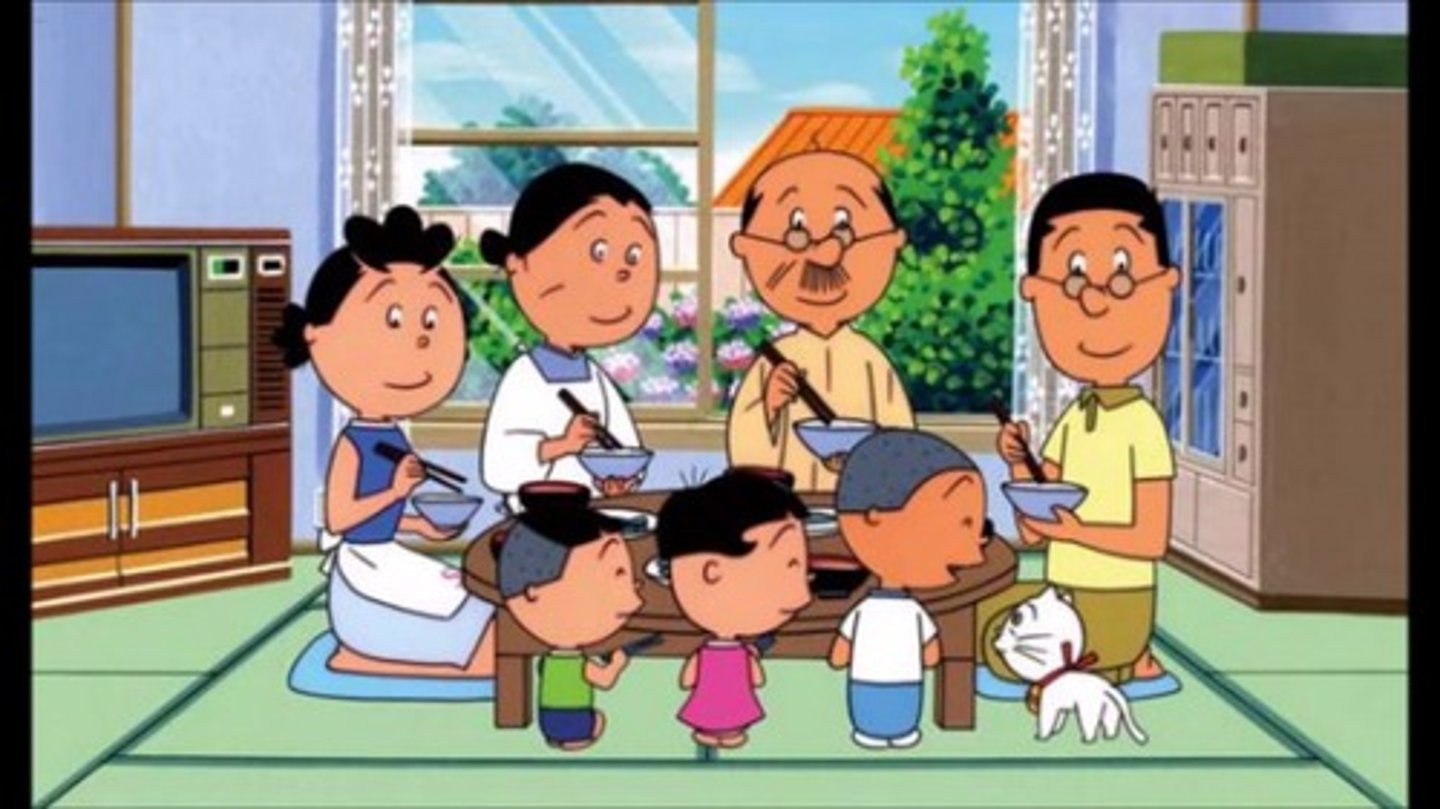
ASTRO BOY: (aka: Mighty Atom)
-Television series based on a manga by Osamu Tezuka
-The first popular animated Japanese television series that embodied the story structure and artistic aesthetic that later became familiar as "anime"
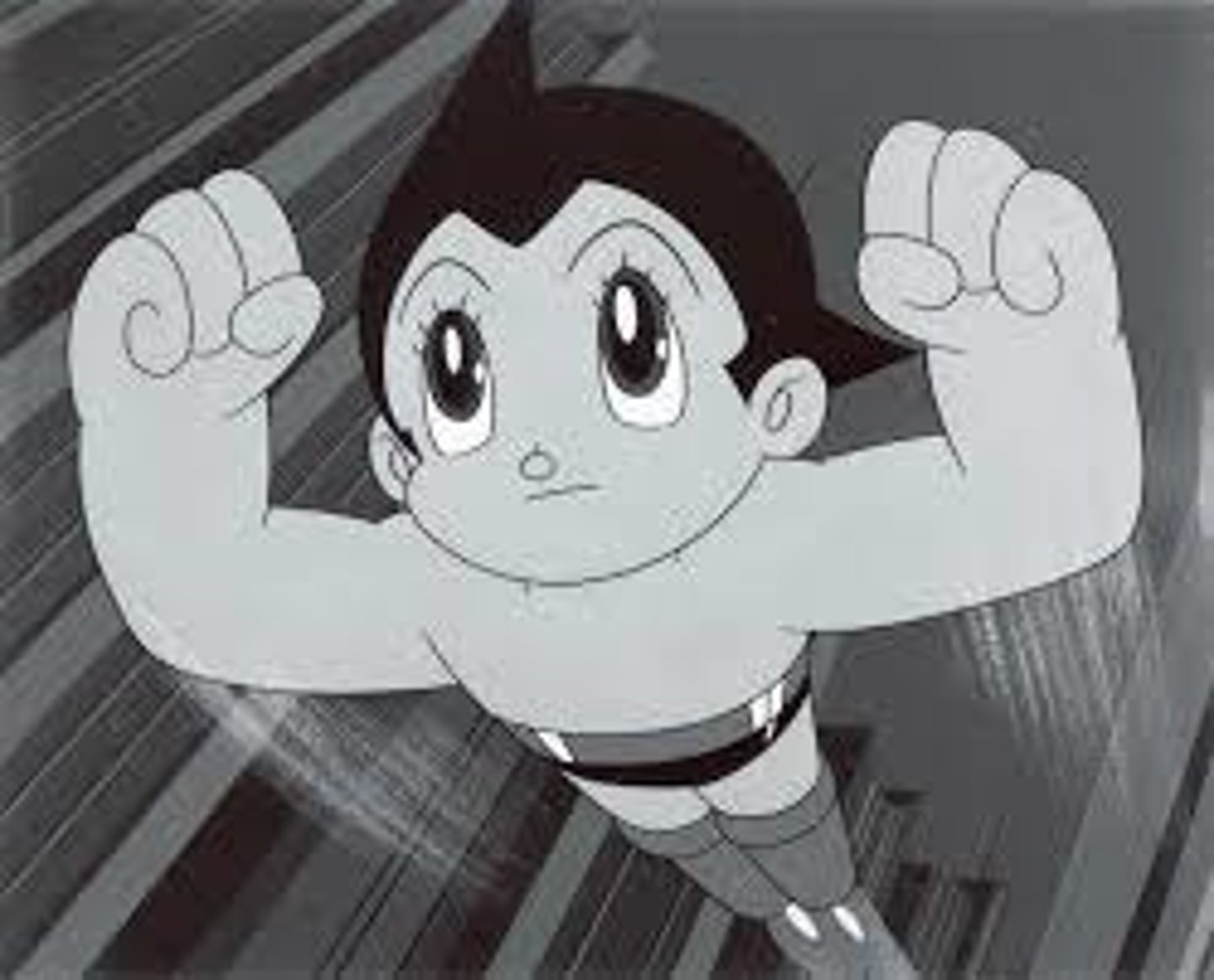
SPACE BATTLESHIP YAMATO : (aka: Cosmoship Yamato and Star Blazers)
1974-75
-science fiction anime series written by Yoshinobu Nishizaki and directed by Leiji Matsumoto, that revolves around the characters aboard the space warship Yamato, derived from the World War II battleship of the same name, in order to retrieve a device from the distant planet and reverse the radiation infecting Earth after being bombed by an invading alien culture
-One of the most influential anime series, its complex themes and storylines influenced future anime including Gundam and Evangelion
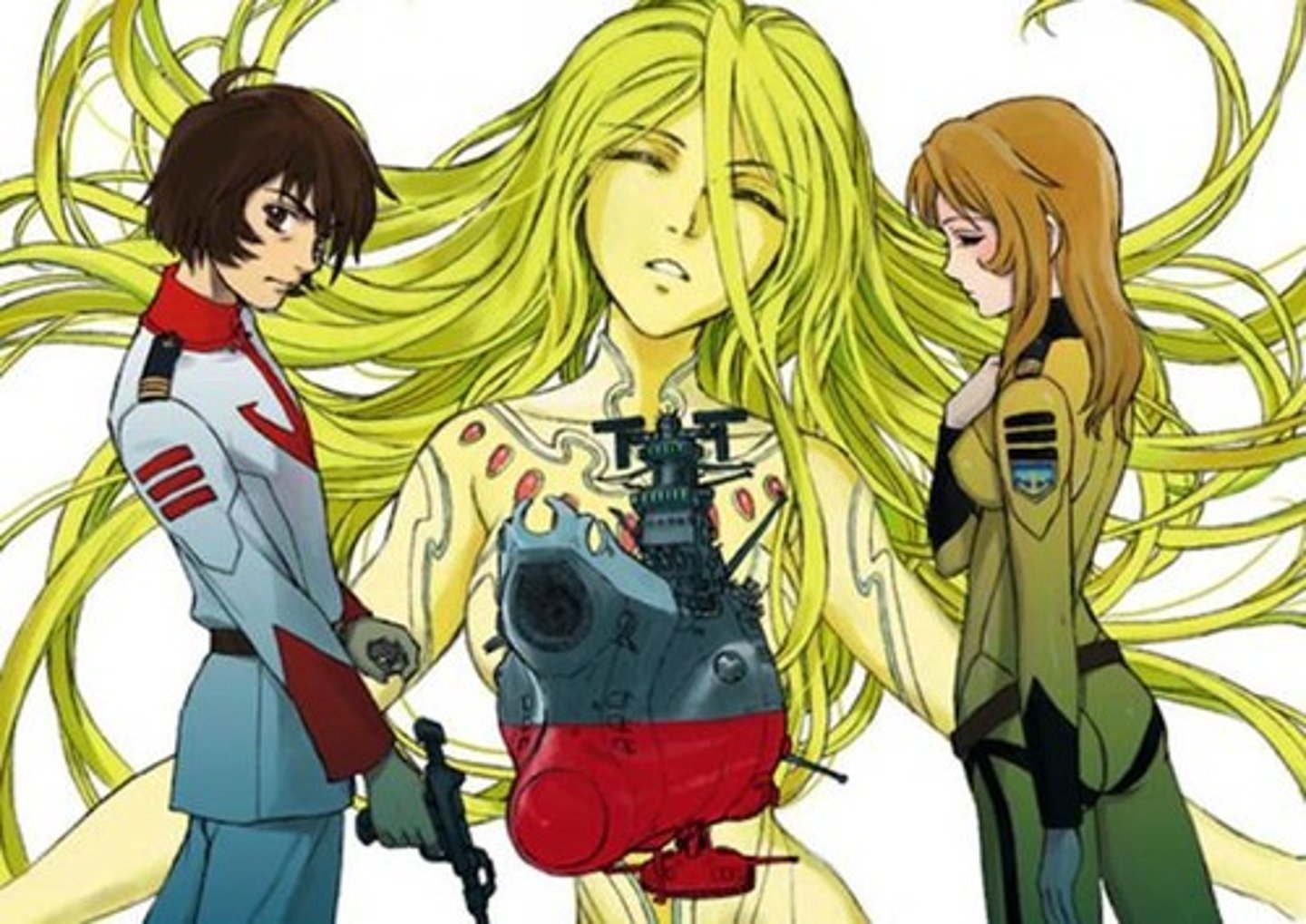
GUNDAM 1979-present
Yoshiyuki Tomino
-Collectively called the Gundam Series, are science fiction based adventures that feature giant robots ("mecha"); "mobile suits" piloted by humans, with all of their human foibles baked into the plots
-Inspired like every mecha anime to follow

NEON GENESIS EVANGELION
1995-96
-A 26 episode anime series created by Hideaki Anno developed by Studio Gainax, followed by a two-feature film project, Death & Rebirth and The End of Evangelion and later, a four-part "rebuild" series of movies
-Evangelion challenged anime's boundaries, its artistic and narrative aspirations and its audiences' expectations
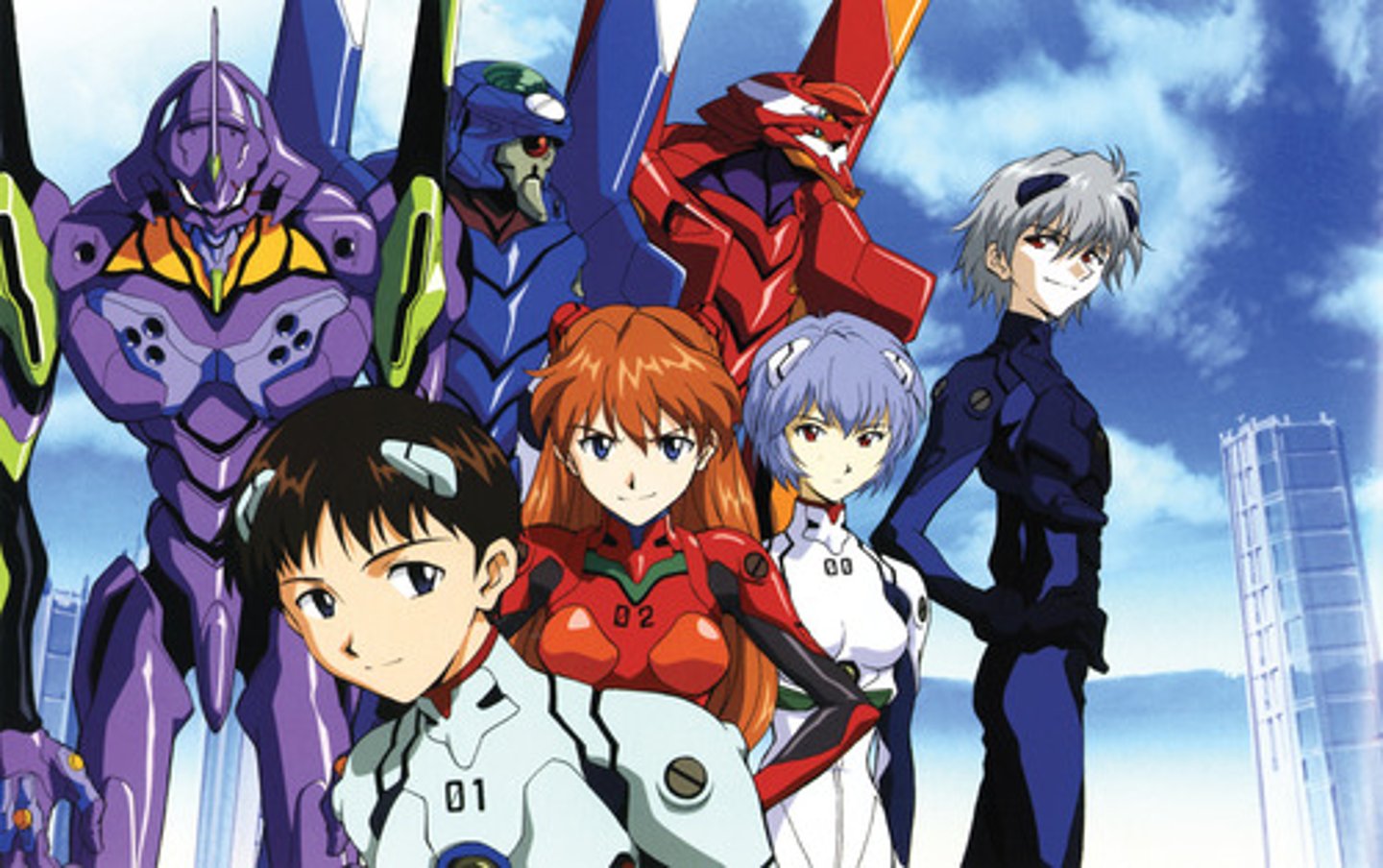
SAILOR MOON
1992-97 Naoko Takeuchi, Toei Animation
Based on a Japanese shōjo (ie: young girl) manga series. The adventures of a schoolgirl as she transforms into the title character who, with her companions, searches for a princess and the "Silver Crystal", an artifact of immense power
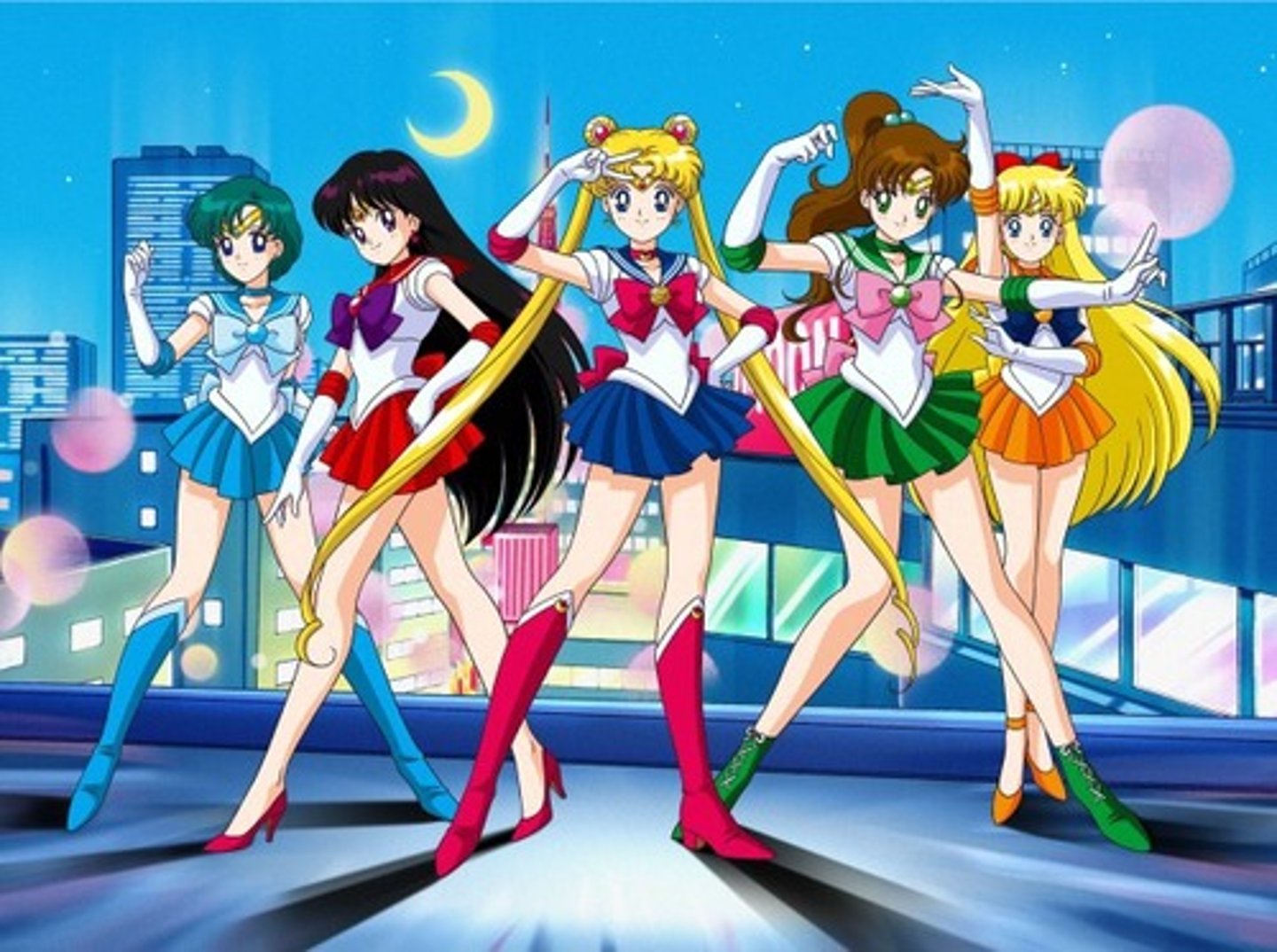
AVATAR: THE LAST AIRBENDER (aka: Avatar: The Legend of Aang):
Animated television series created by Michael Dante DiMartino and Bryan Konietzko
-Set in a mystical time and place where certain individuals can manipulate ("bend") one of the four elements: water, earth, fire, or air
-The show is presented in a style that combines anime and American animation styling and story structure. Initially aired on Nickelodeon from 2005 to 2008
-Followed by a sequel series, The Legend of Korra
-Nationalism, imperialism, genocide
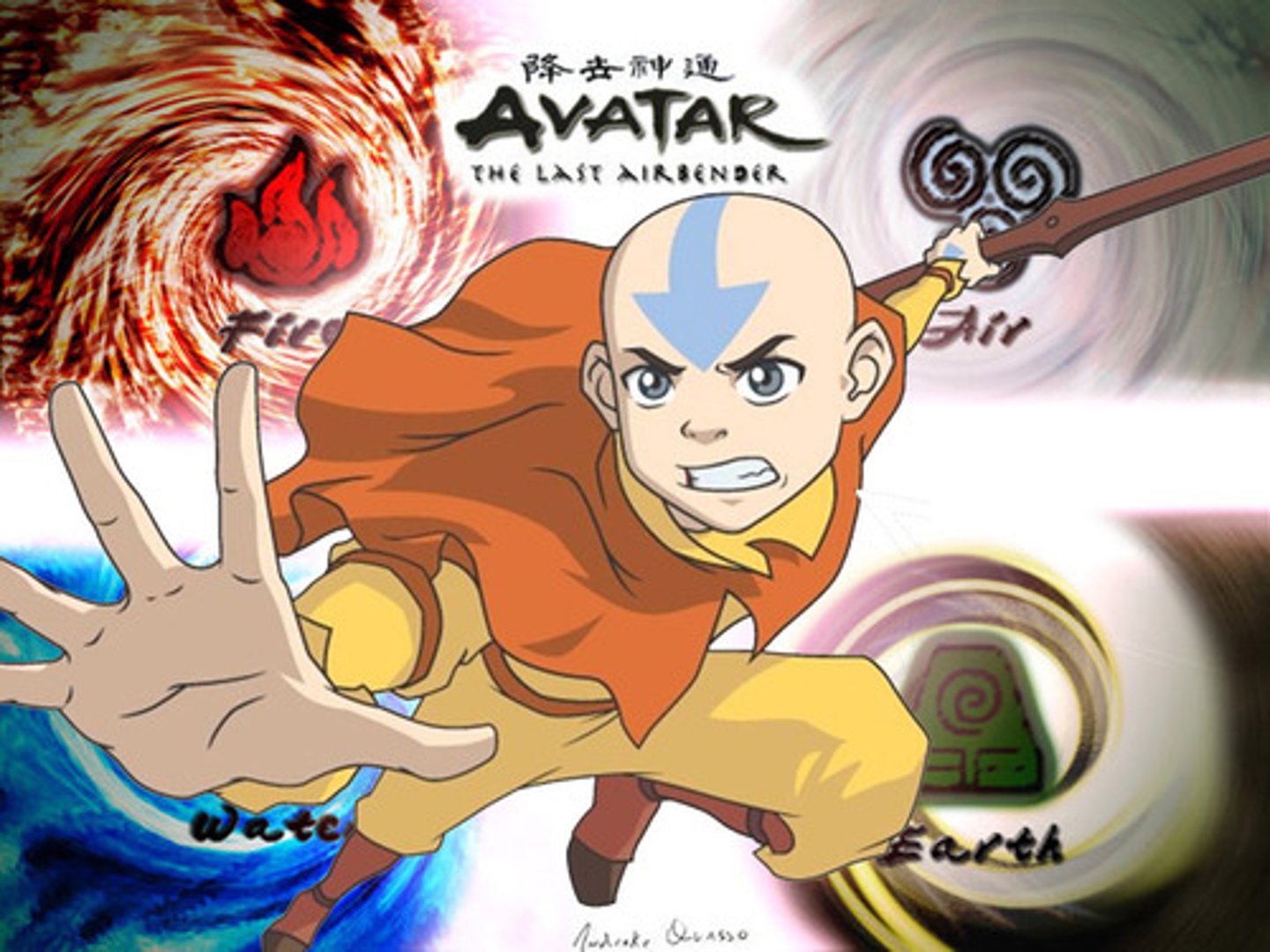
CASTLE IN THE SKY: (aka: Laputa: Castle in the Sky ) 1986
-written and directed by legendary Japanese animation director, Hayao Miyazaki
-This is the third of Miyazaki's long string of successful and influential animated feature films.
-It is also the first film produced and released by Studio ghibli
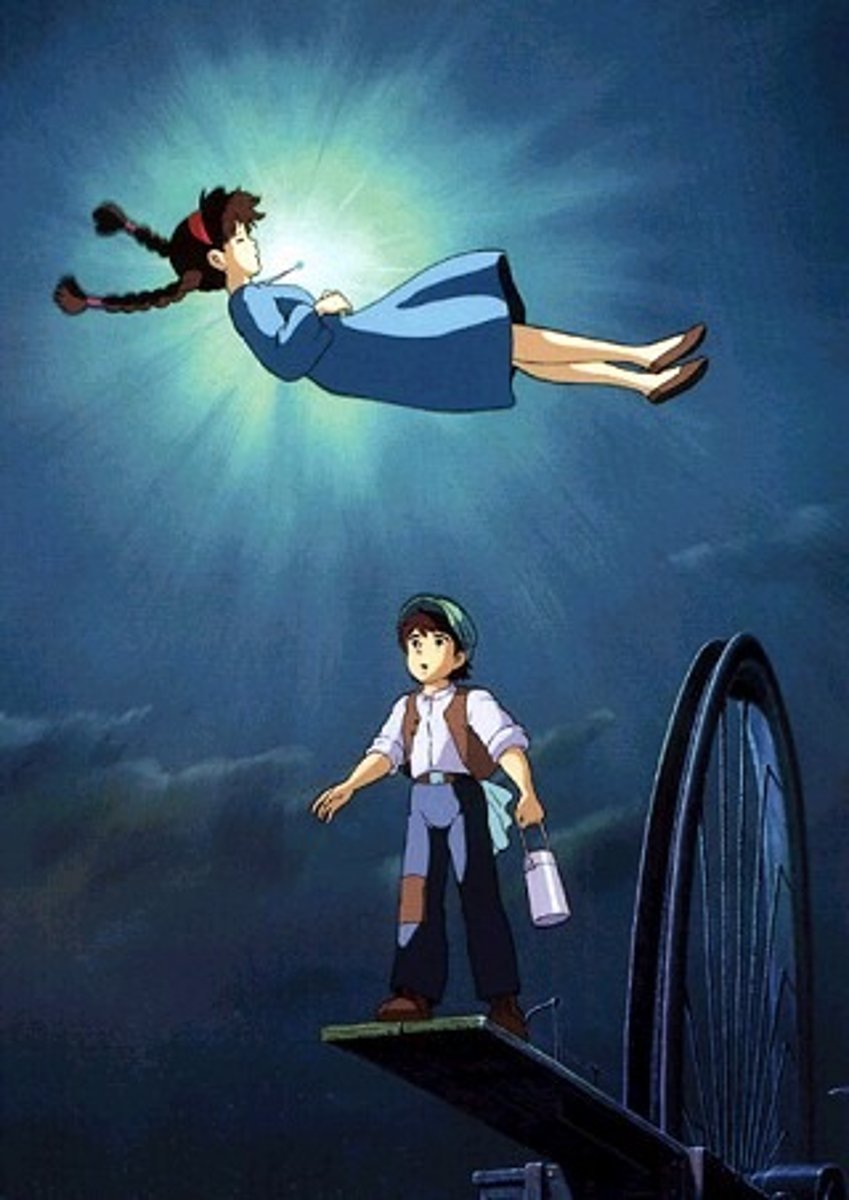
MY NEIGHBOR TOTORO 1988
-follows Castle in the Sky in the Miyazaki filmography and is generally considered the director's breakthrough film
-Winner of numerous awards, today Totoro is readily recognized as a popular culture icon
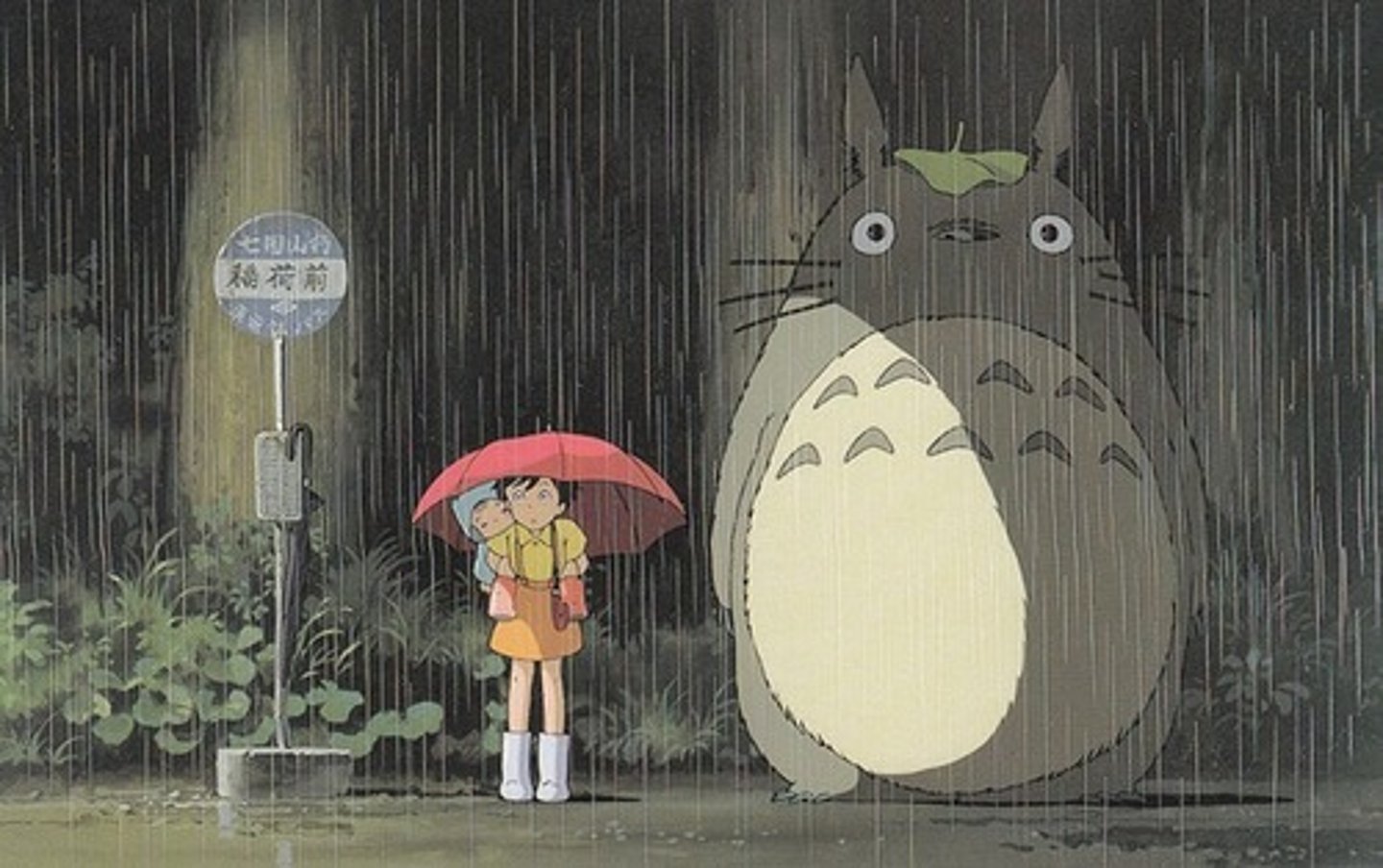
AKIRA 1988
-A dystopian science fiction animated feature, directed by Katsuhiro Otomo
-A landmark film, Akira broke from anime's usual limited animation style: a complex script, more expensive and time consuming layouts, lip-synced dialogue, realistic production design and articulated character animation
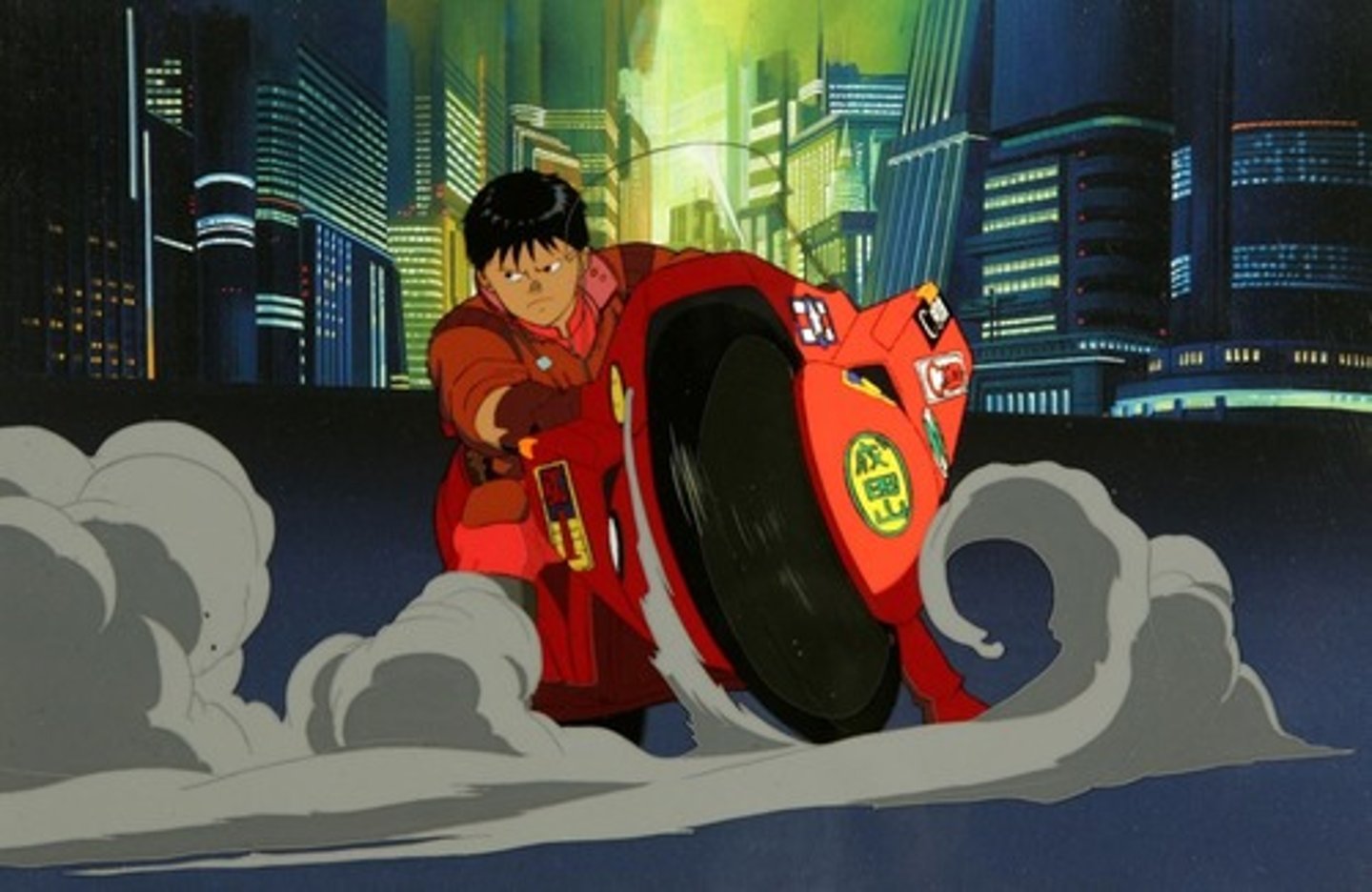
GHOST IN THE SHELL 1995
Anime science fiction film based on manga of the same title
Directed by Mamoru Oshii, the animation style and story have influenced much of anime and live action production since
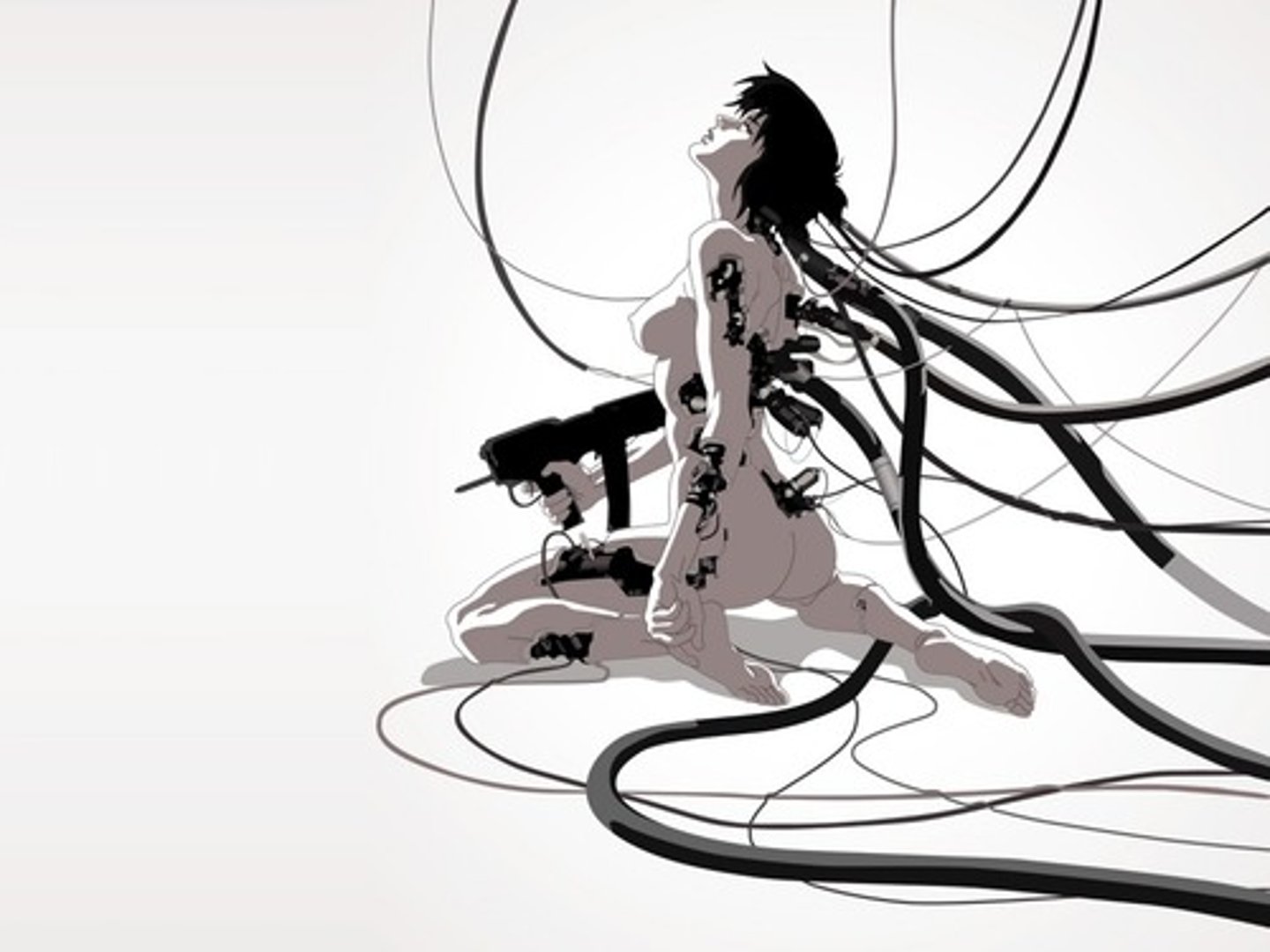
MILLENNIUM ACTRESS 2000
Director Satoshi Kon, tells a complex, contemporary film-within-film story of a documentary director investigating the life of an elderly actress in which reality and cinema become blurred
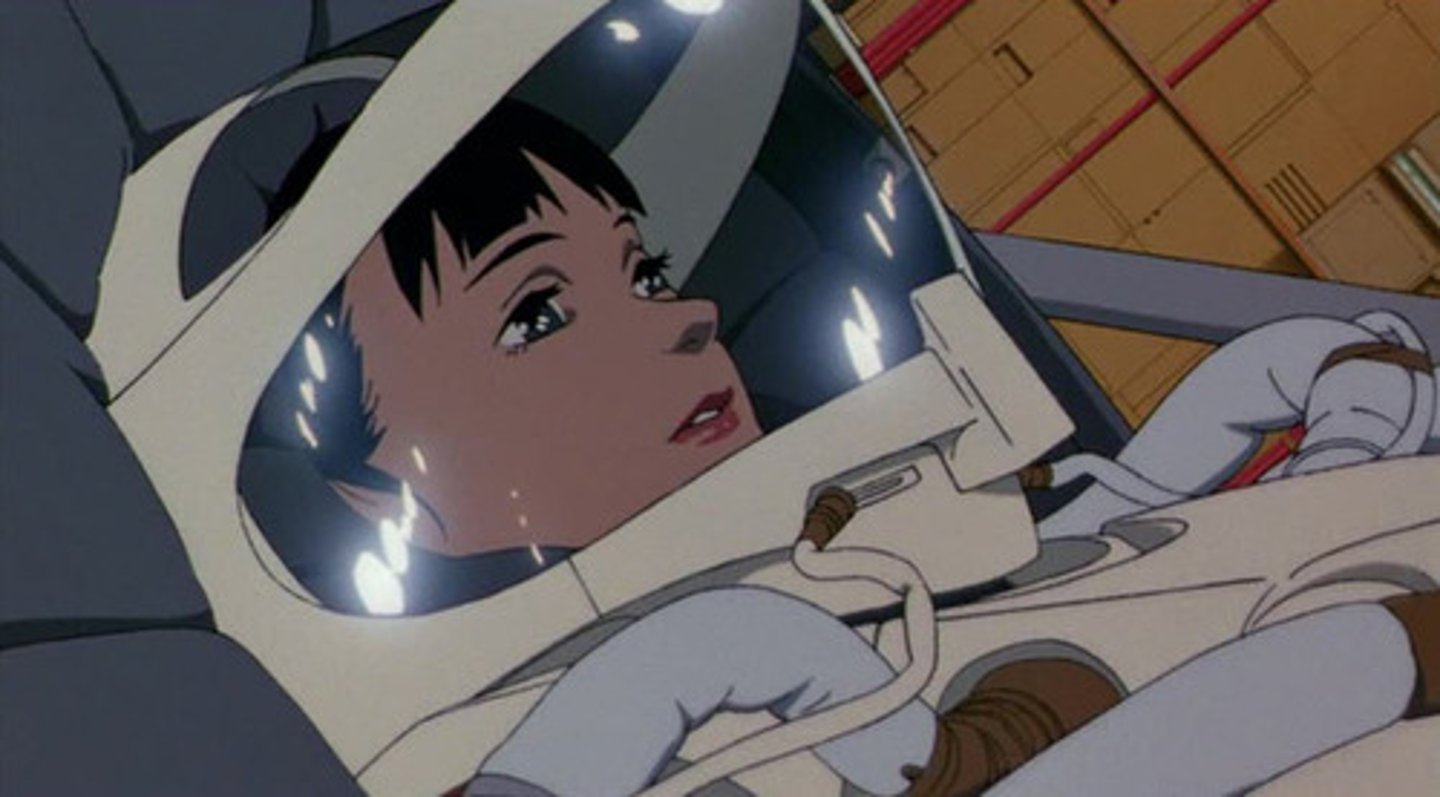
GHOST IN THE SHELL 2: INNOCENCE (2004)
Traditional/computer-animated sci-fi sequel to Ghost in the Shell, though director Oshii describes it as separate and not a true sequel, specifically following two characters from the original story: Batou, slowly becoming a cyborg himself, and Togusa, his human partner
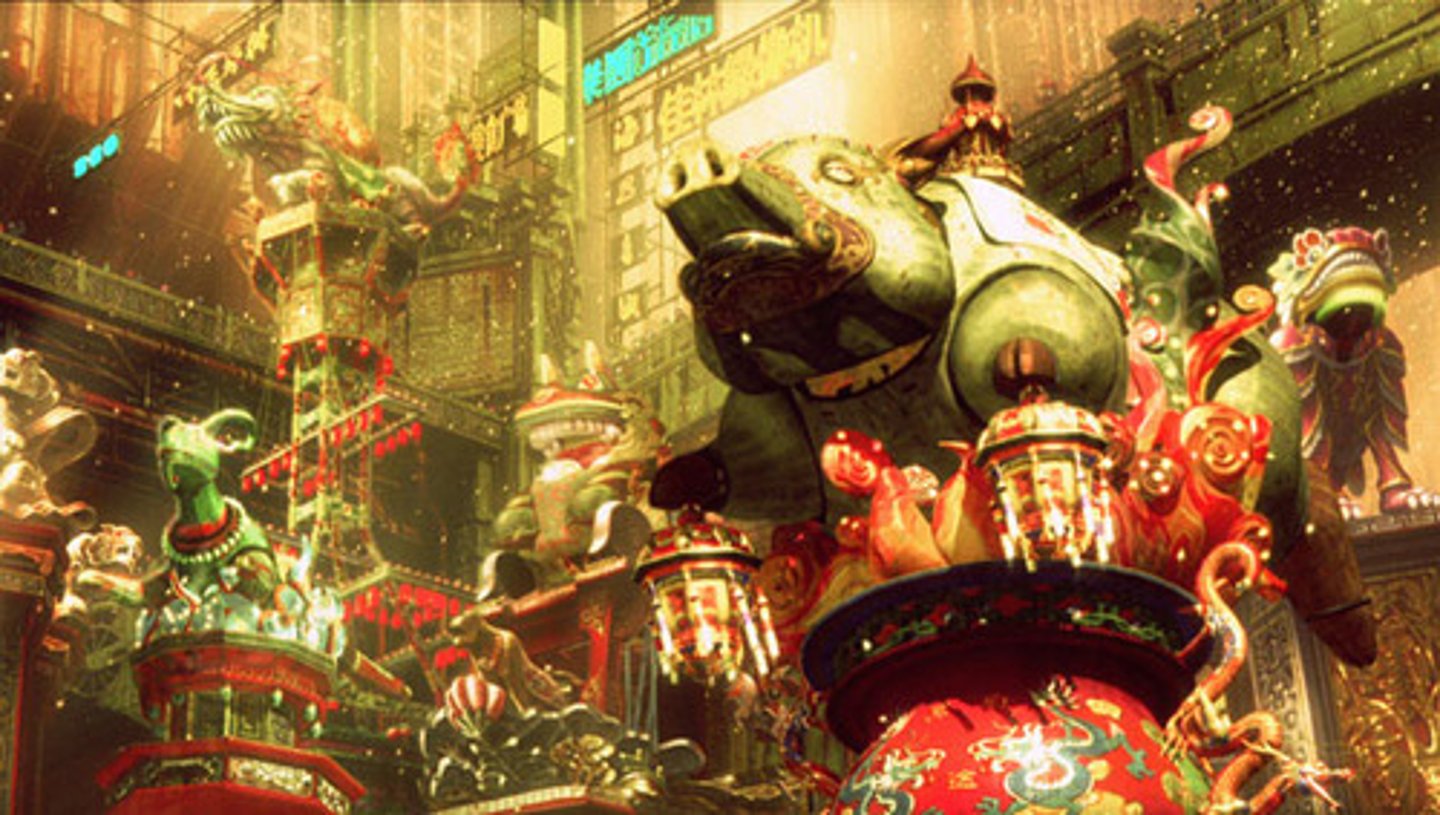
THE BROTHERHOOD OF MAN (1945)
Produced by the fledgling United Productions of America (UPA), based on a United Auto Workers pamphlet with the message that the similarities between people are greater than racial differences. Soon seen as leftist propaganda during the "Red Scare"
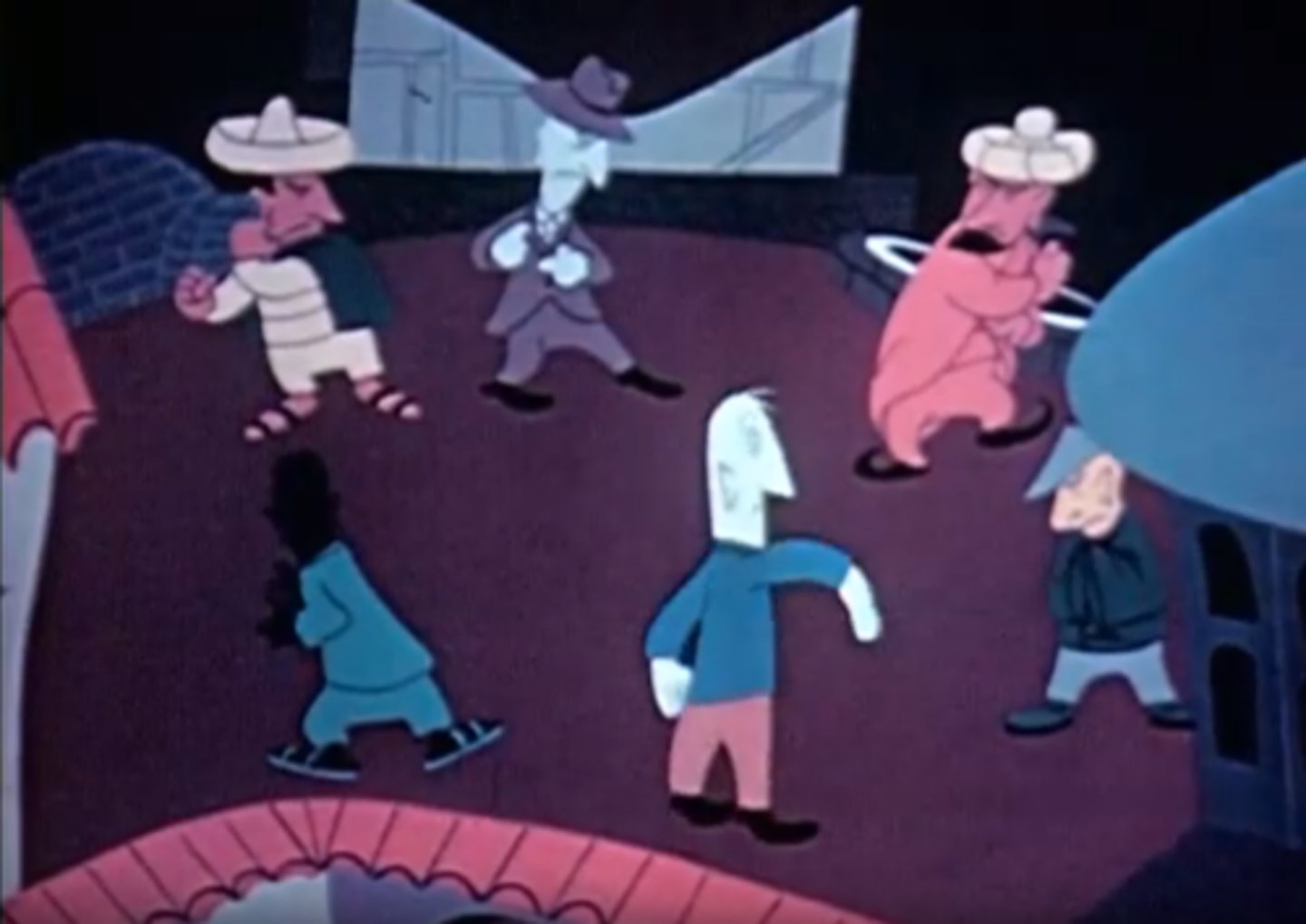
Crusader Rabbit (1948)
The first animated series produced specifically for television
Alex Anderson and Jay Ward's very limited animation project was syndicated from 1950 to 1952; 195 episodes divided into ten "crusades".
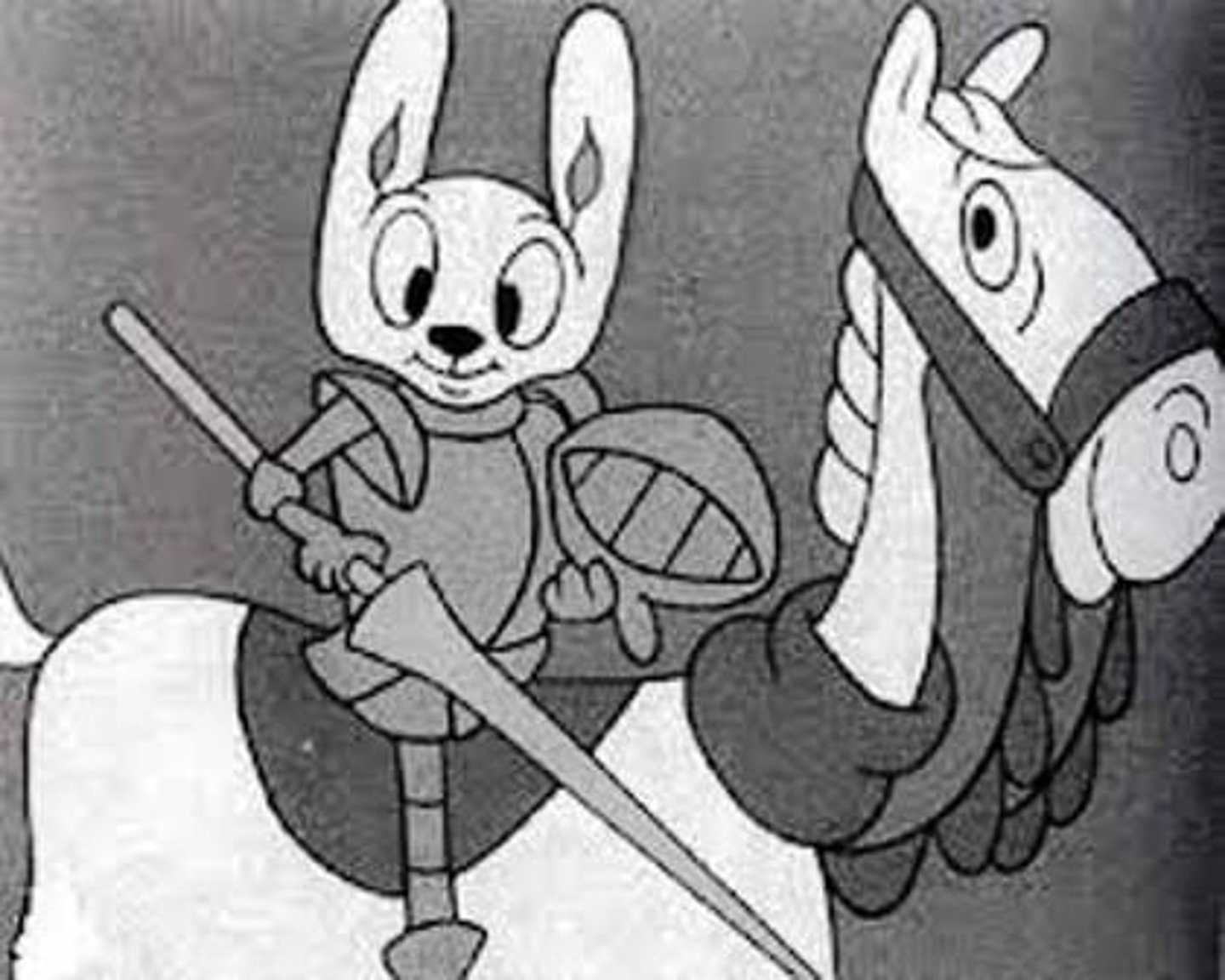
Gerald McBoing Boing (1950)
-A UPA release by Columbia Pictures. UPA's jazzy stylistic design and upbeat story telling takes an Oscar
-Written by Dr Suess
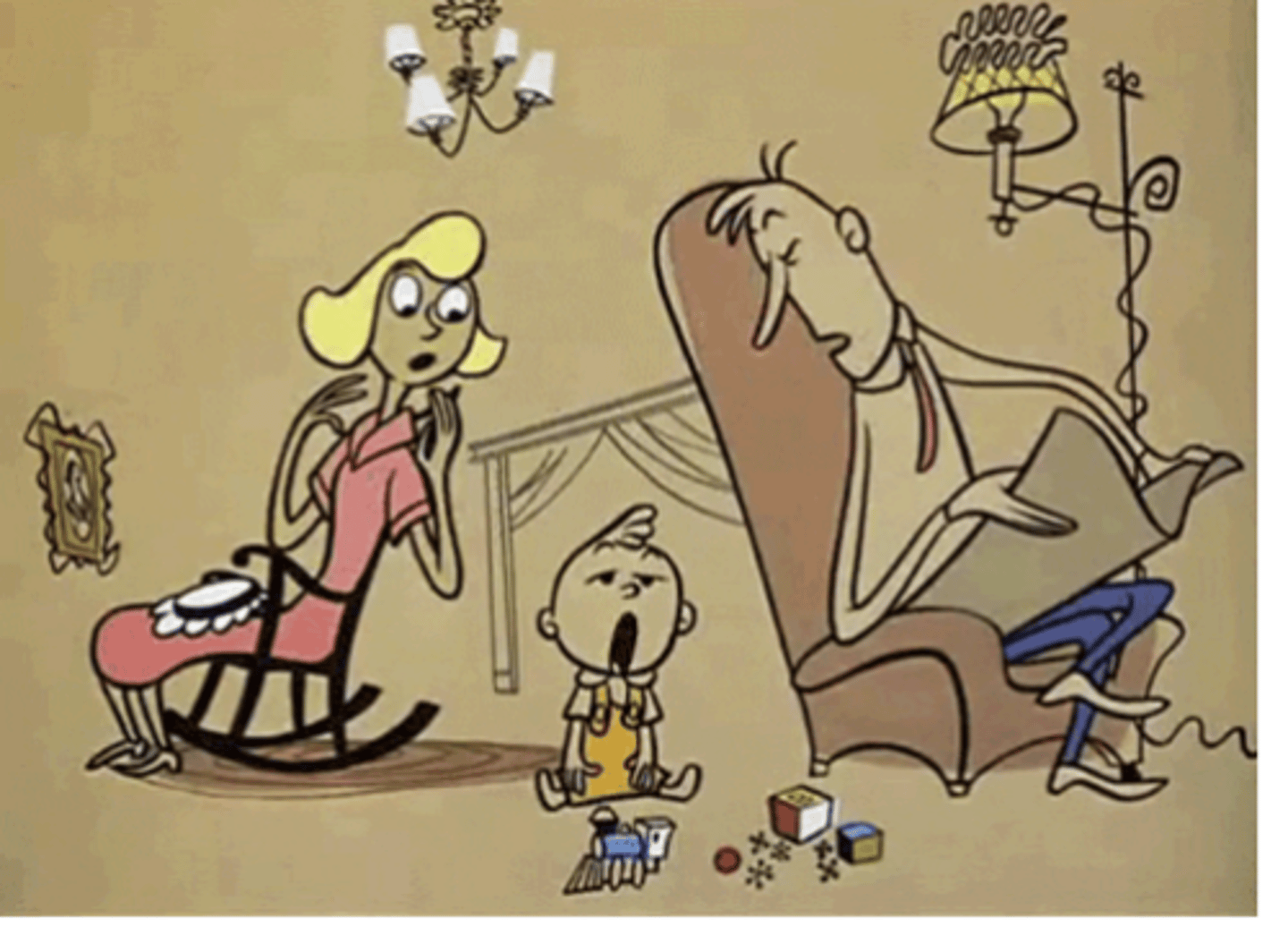
Cinderella (1950)
-The first full feature produced by the studio since Bambi. The film was regarded as a major gamble, as the studio was on the verge of bankruptcy.
-if Cinderella failed, Disney Animation would have probably closed. Instead, it ushered in a string of popular and profitable feature films
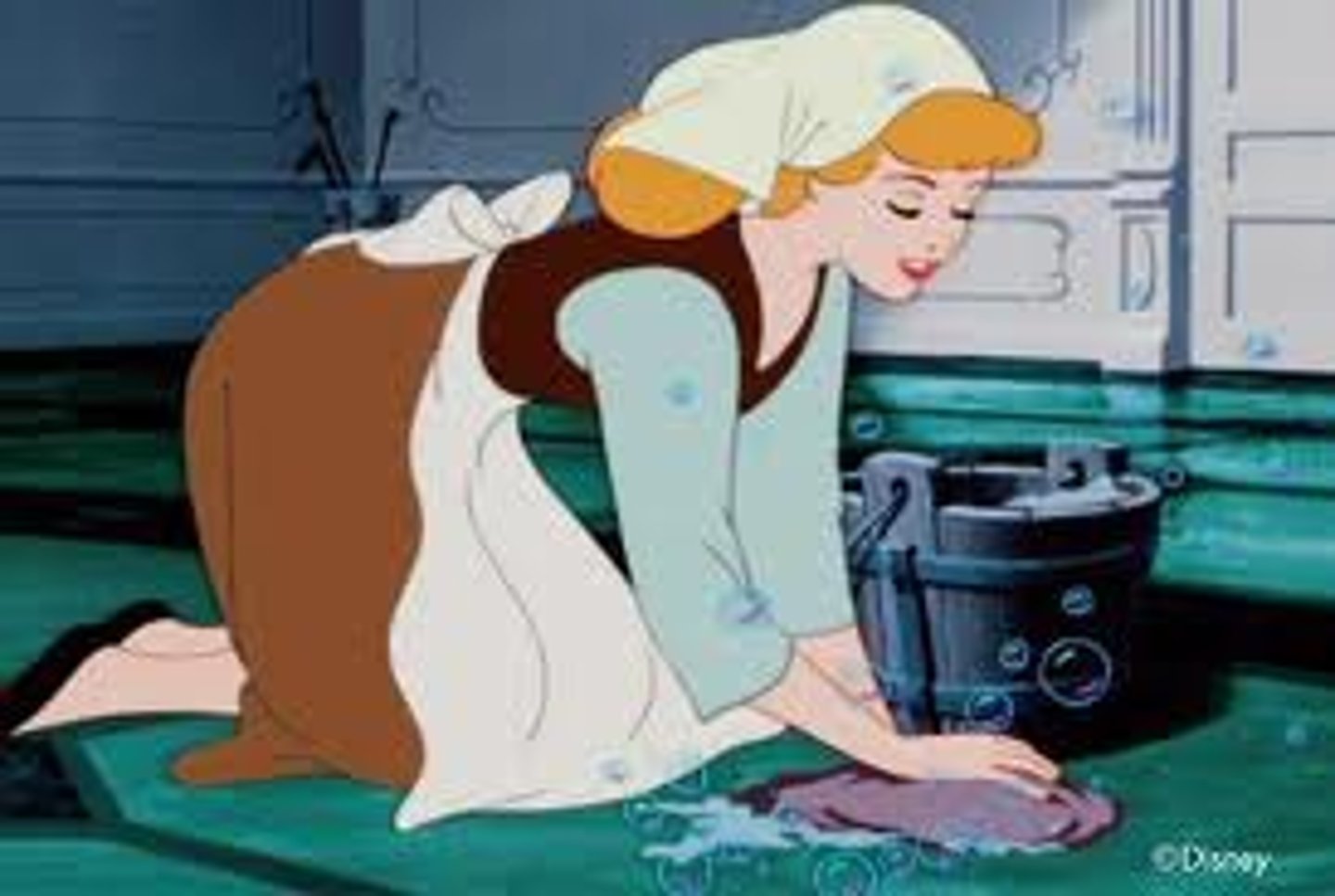
Alice in Wonderland 1951
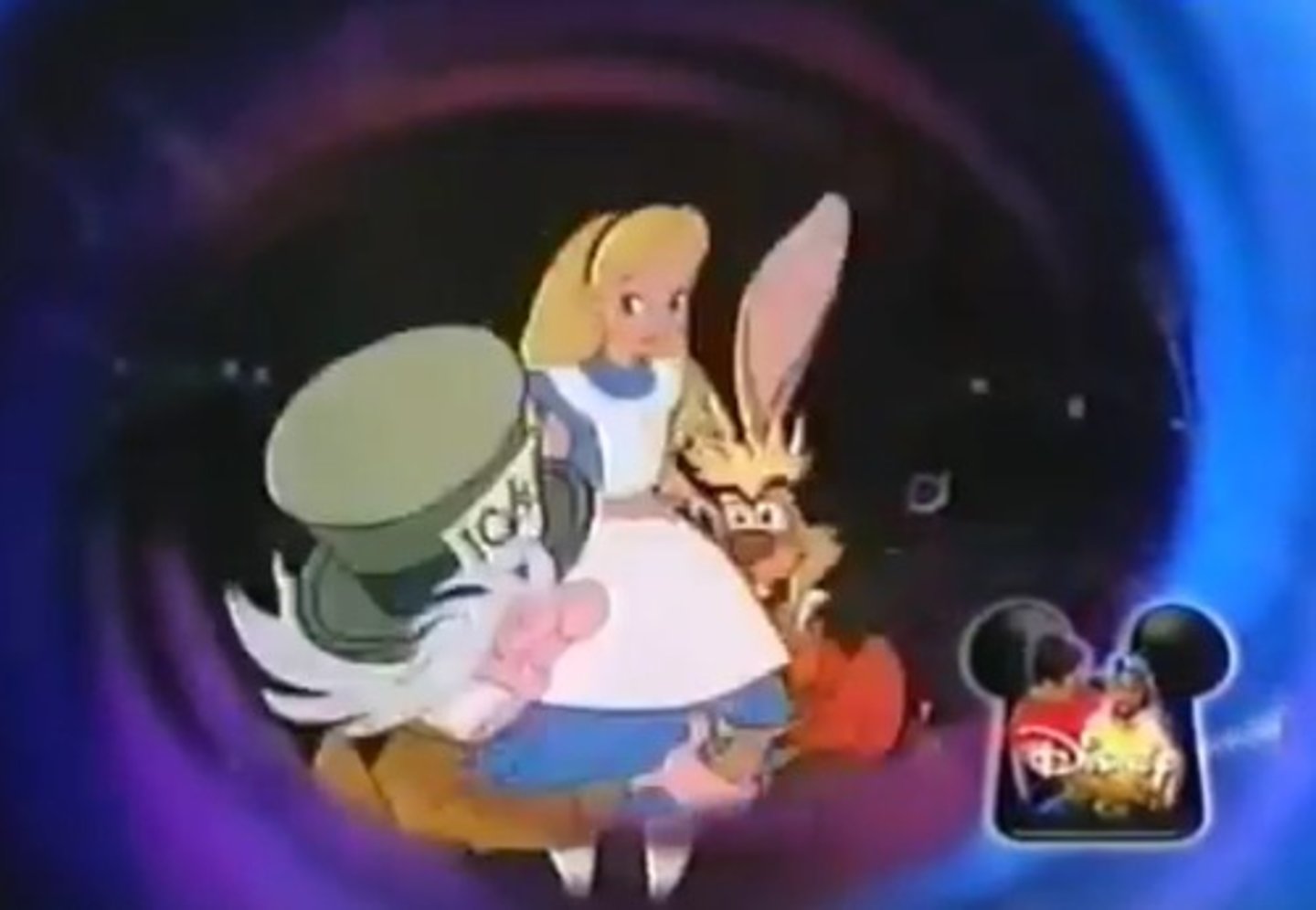
PETER PAN (1953)
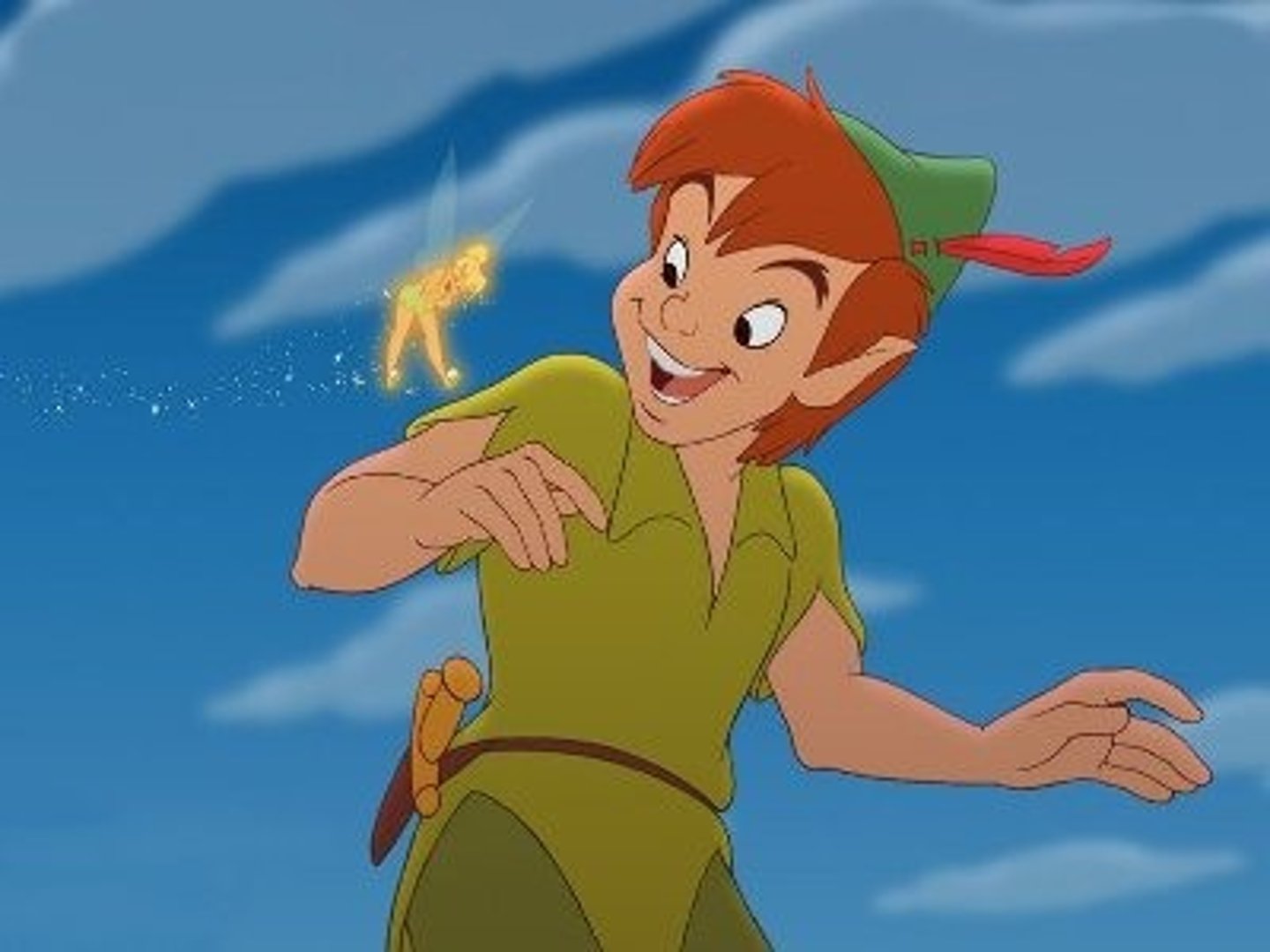
Lady and the Tramp (1955)
First widescreen animated movie
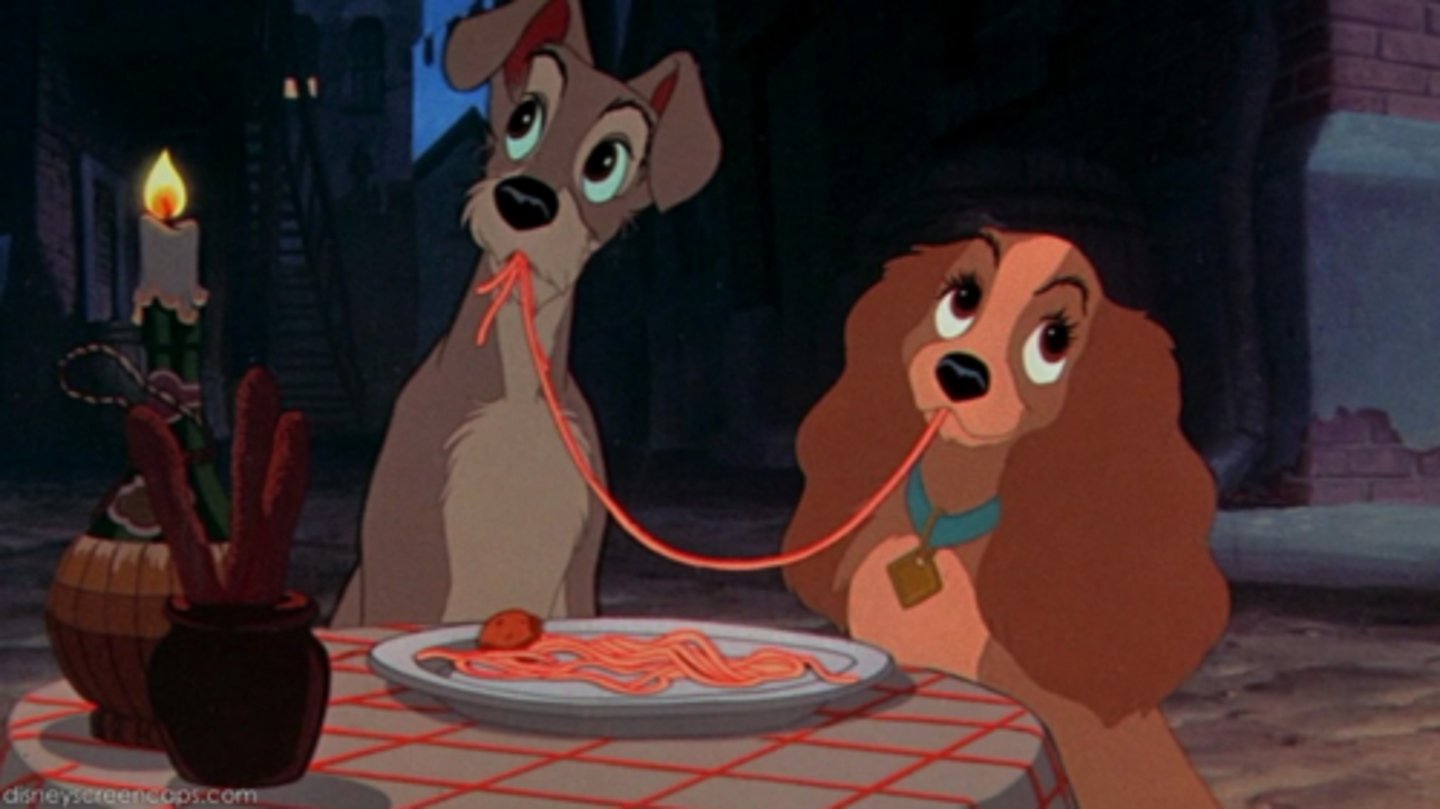
SLEEPING BEAUTY (1959)
-Hard to make— disney wanted it to be like a moving tapestry; pain to work on
-First time used a photocopy process to reuse cels (xerox process)
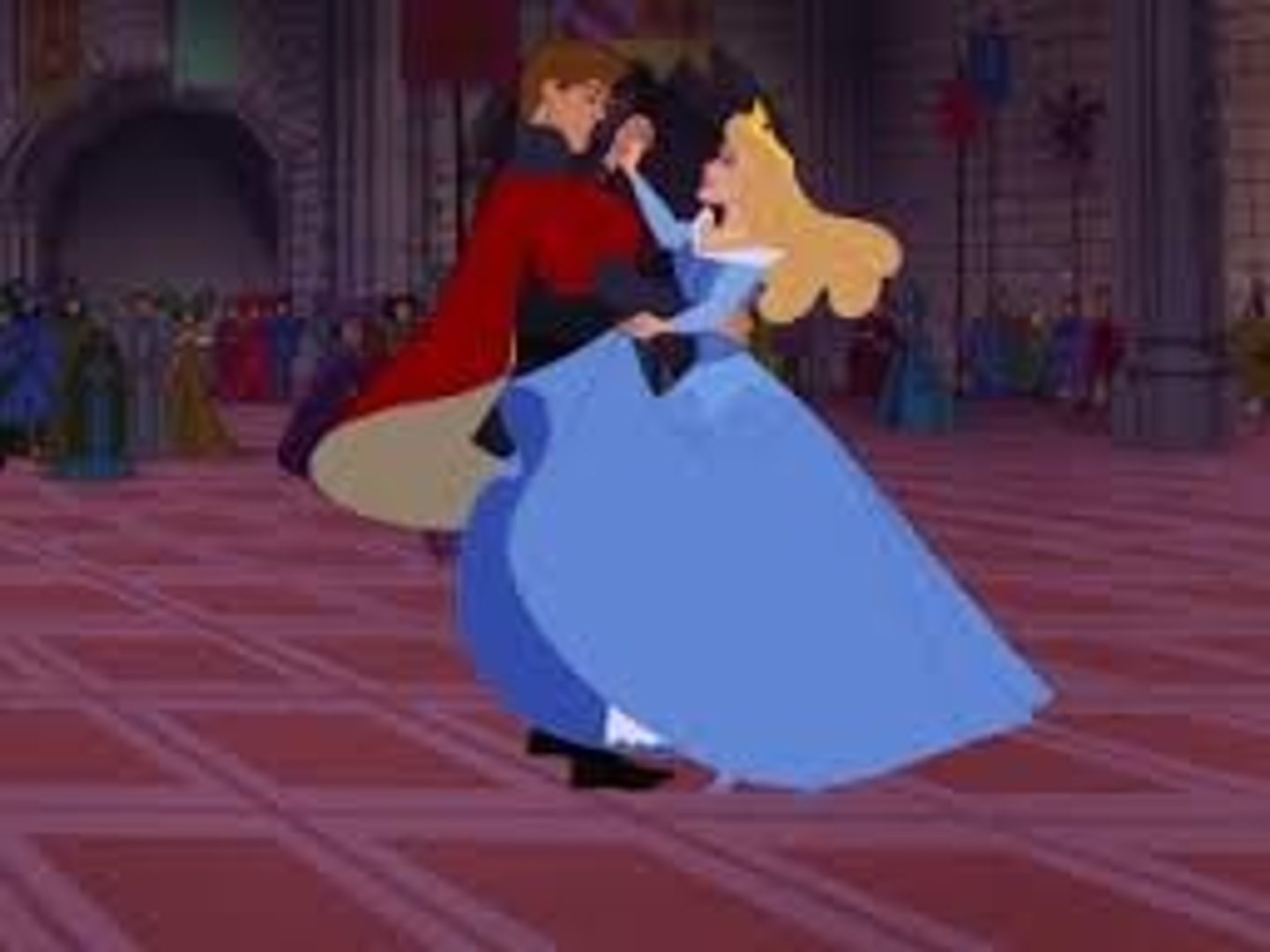
101 Dalmatians (1961)
-Disney
-Touch-up, not clean-up
-Xerox Process
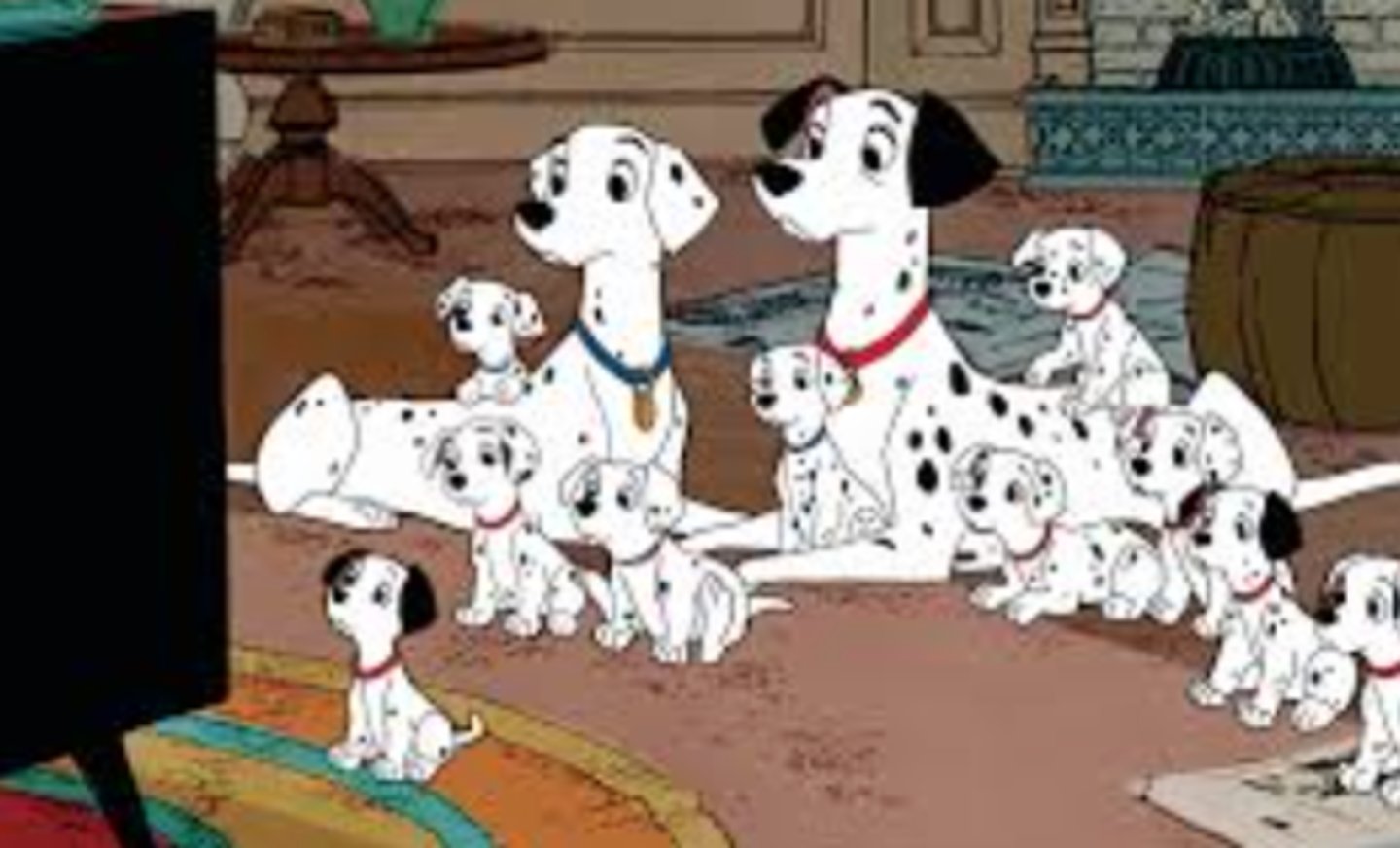
Colonel Bleep (1957-60)
Animated by Jack Schlea, this was the first color cartoon made for television and featured the futuristic "googie" design style of the 1950s. The short episodes were syndicated to children's "Uncle Shows" of early TV
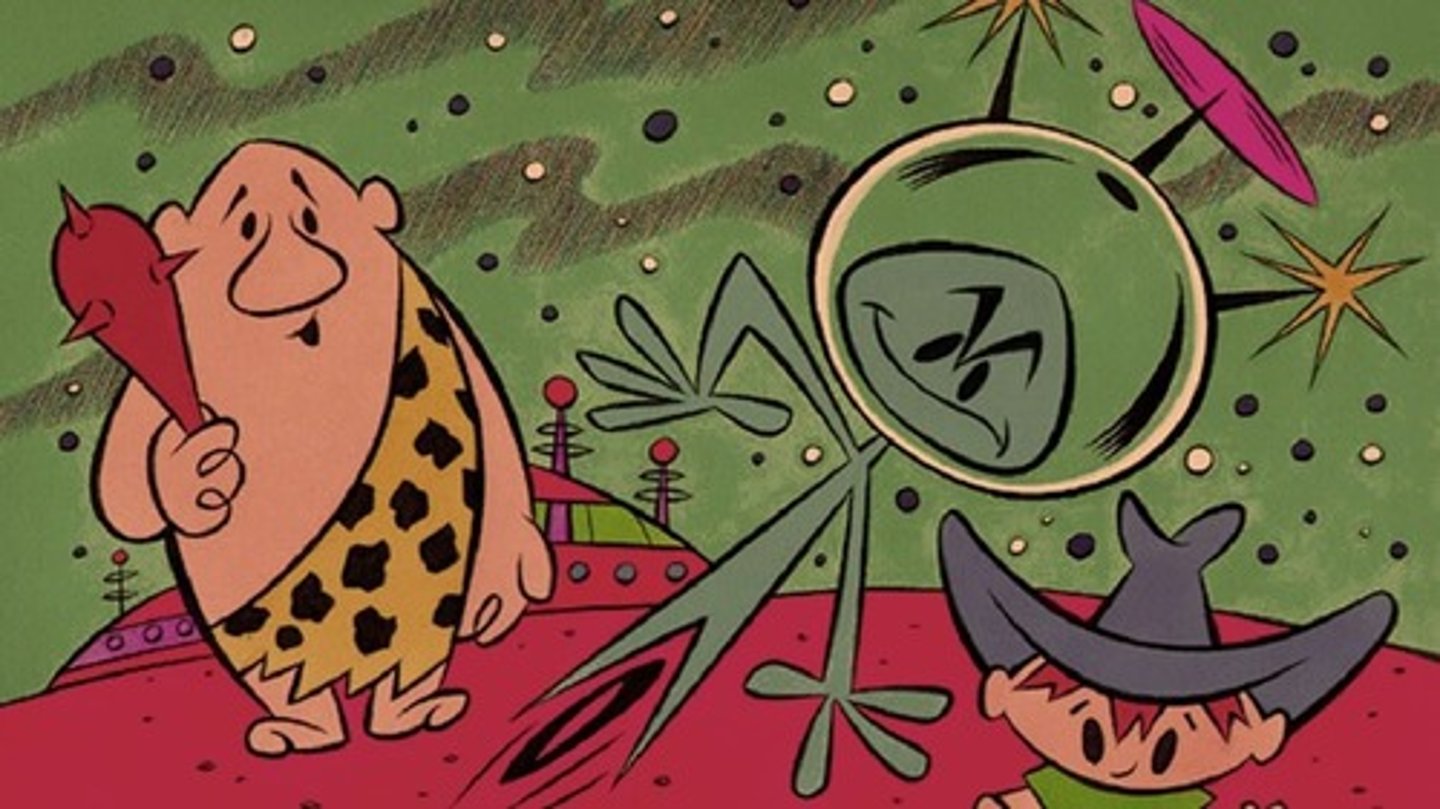
Clutch Cargo (1959-60)
Notable for its very limited animation and especially for the "Syncro-Vox" optical system that superimposed real human mouths on the faces of the animated characters
Produced by Clark Haas
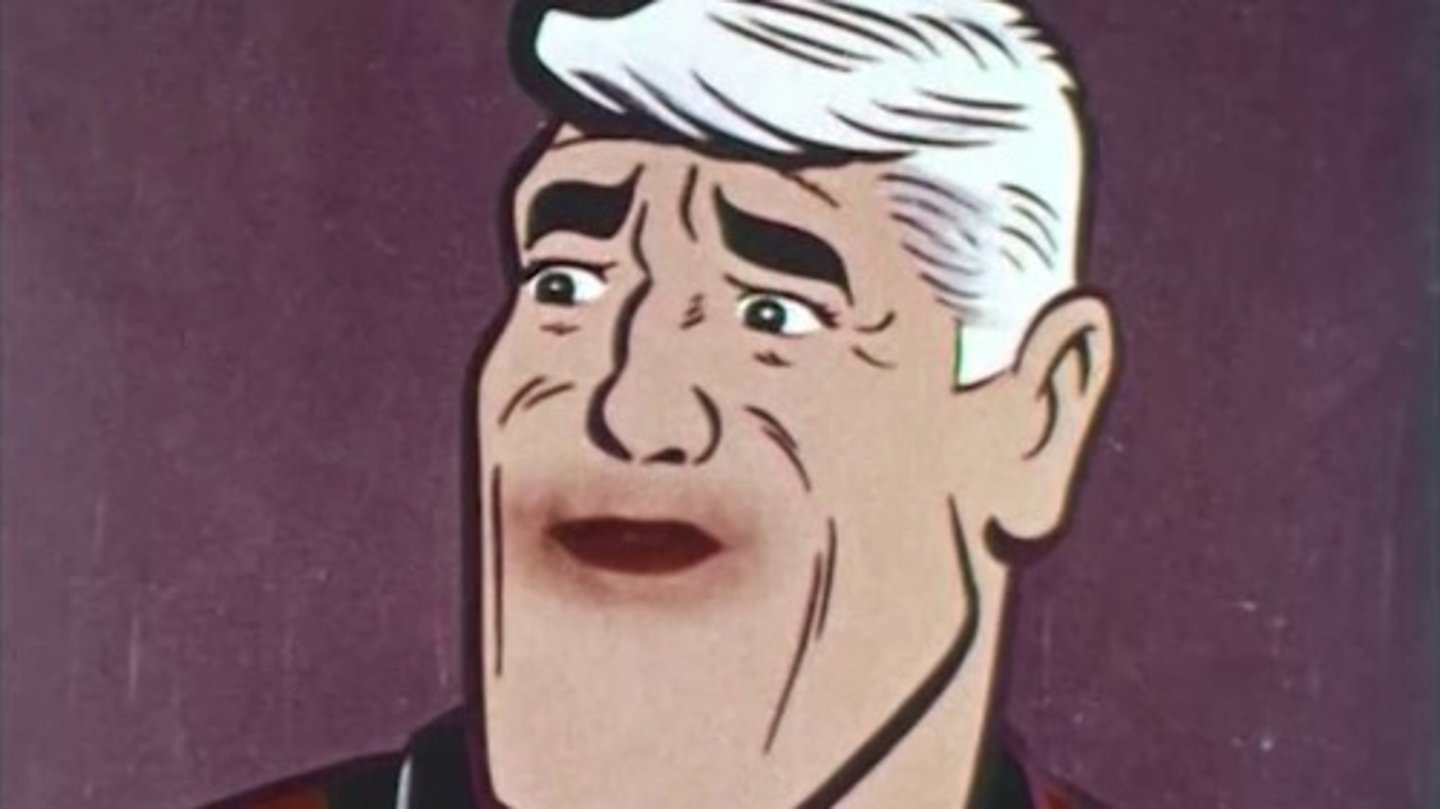
The Rocky and Bullwinkle Show (1959-64)
aka ROCKY & HIS FRIENDS and THE BULLWINKLE SHOW
Supporting segments include Dudley Do-Right (satire of old-time melodrama), Peabody's Improbable History (a dog and his pet boy, Sherman, traveling through time), and Fractured Fairy Tales (classic fairy tales retold as parodies)
From Jay Ward, Alex Anderson (Crusader Rabbit) and Bill Scott, the outsourced animation for the series ranged from just bad to awful, but fit the show's anarchic style.
Written for adults, designed to look crappy bc they didn't have a lot of money

The Flintstones (1960-66)
Spoofing Jackie Gleason's television series The Honeymooners, the show revolves around the life and Stone Age times of Fred and Wilma Flintstone, a working-class couple, and their next-door neighbors, the Rubbles
Produced by Bill Hanna and Joe Barbera, The Flintstones was the most successful network animated franchise until The Simpsons
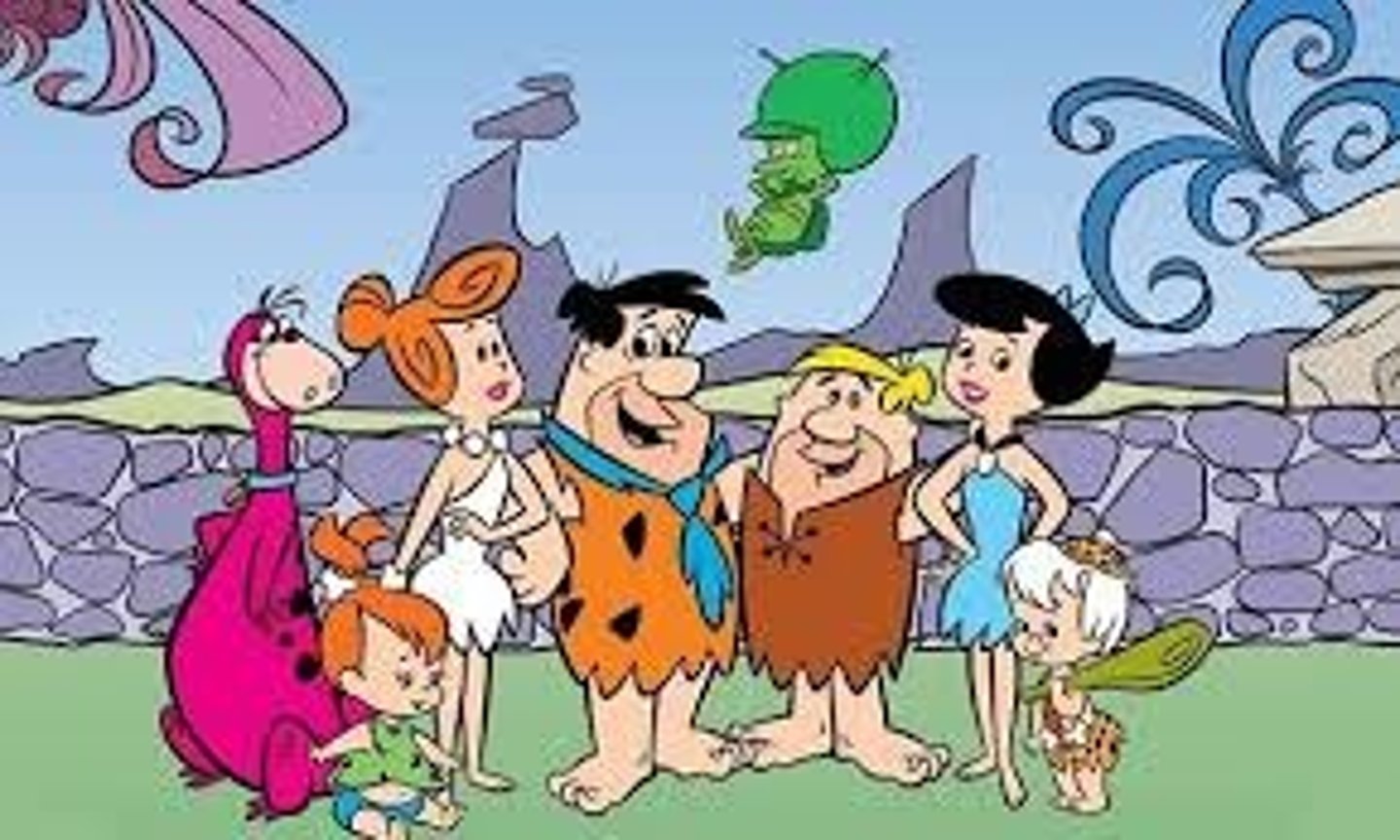
The Jetsons (1962-63)
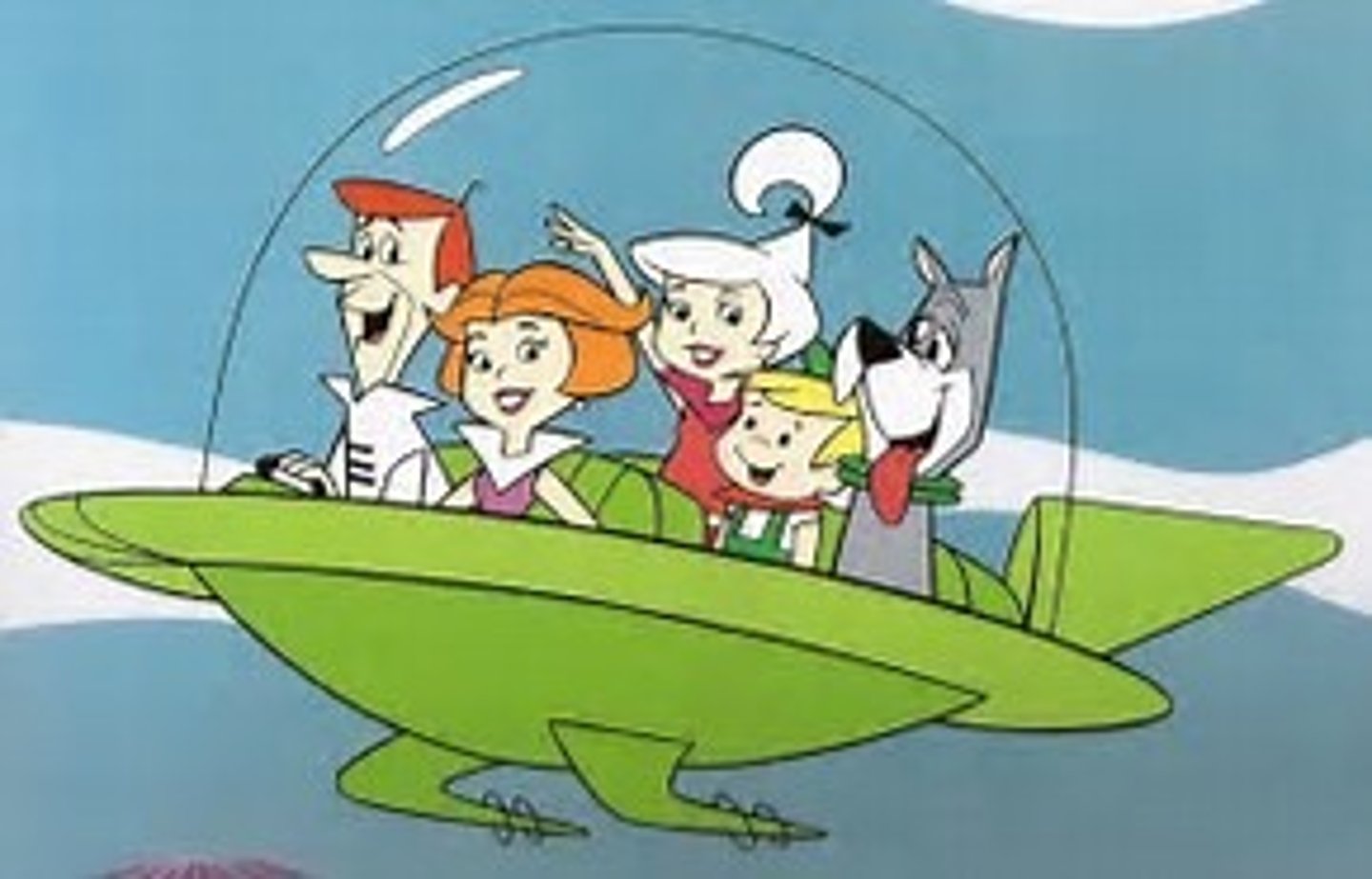
Johnny Quest (1964-65)
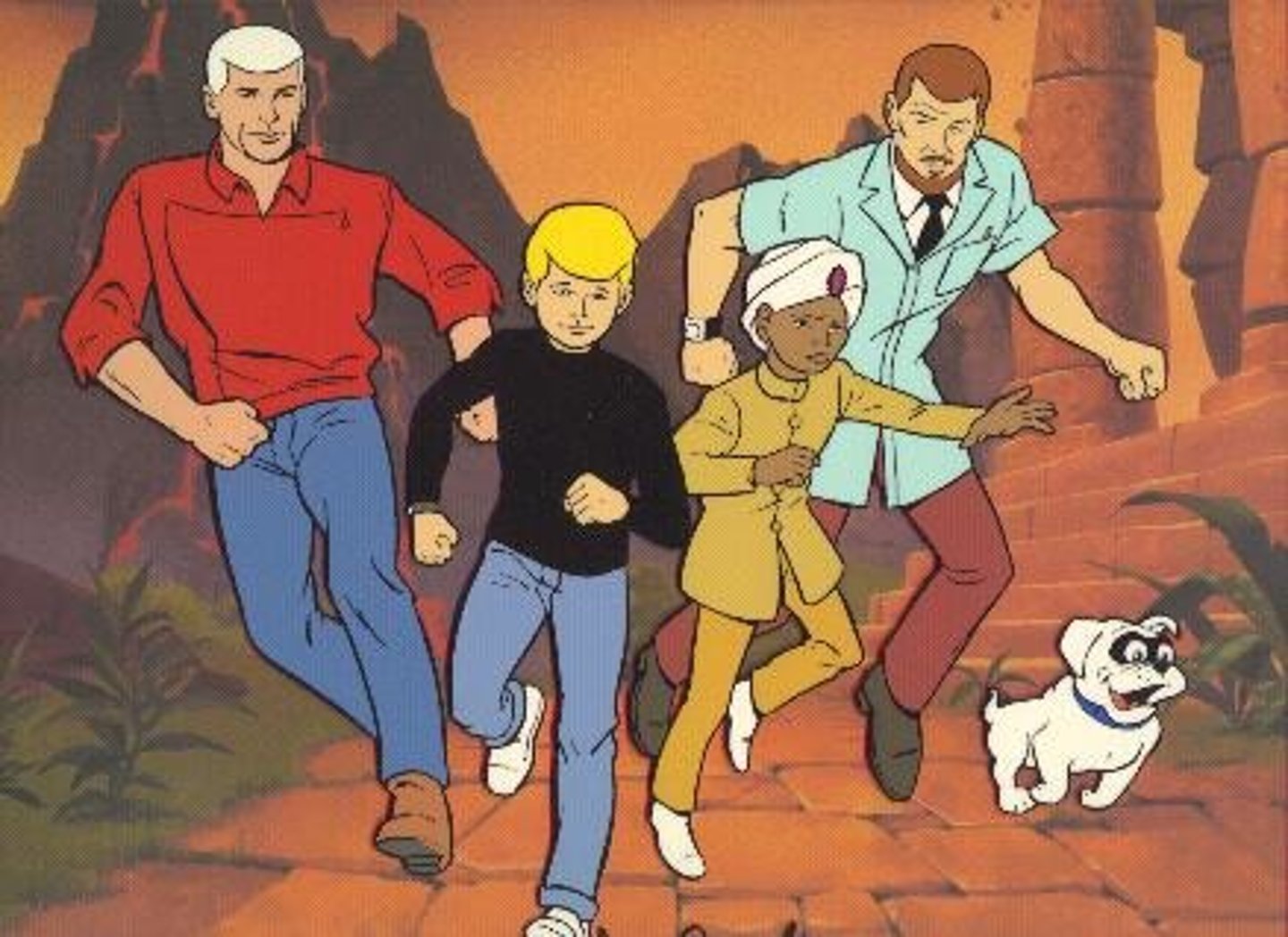
Yogi Bear (1961-62)
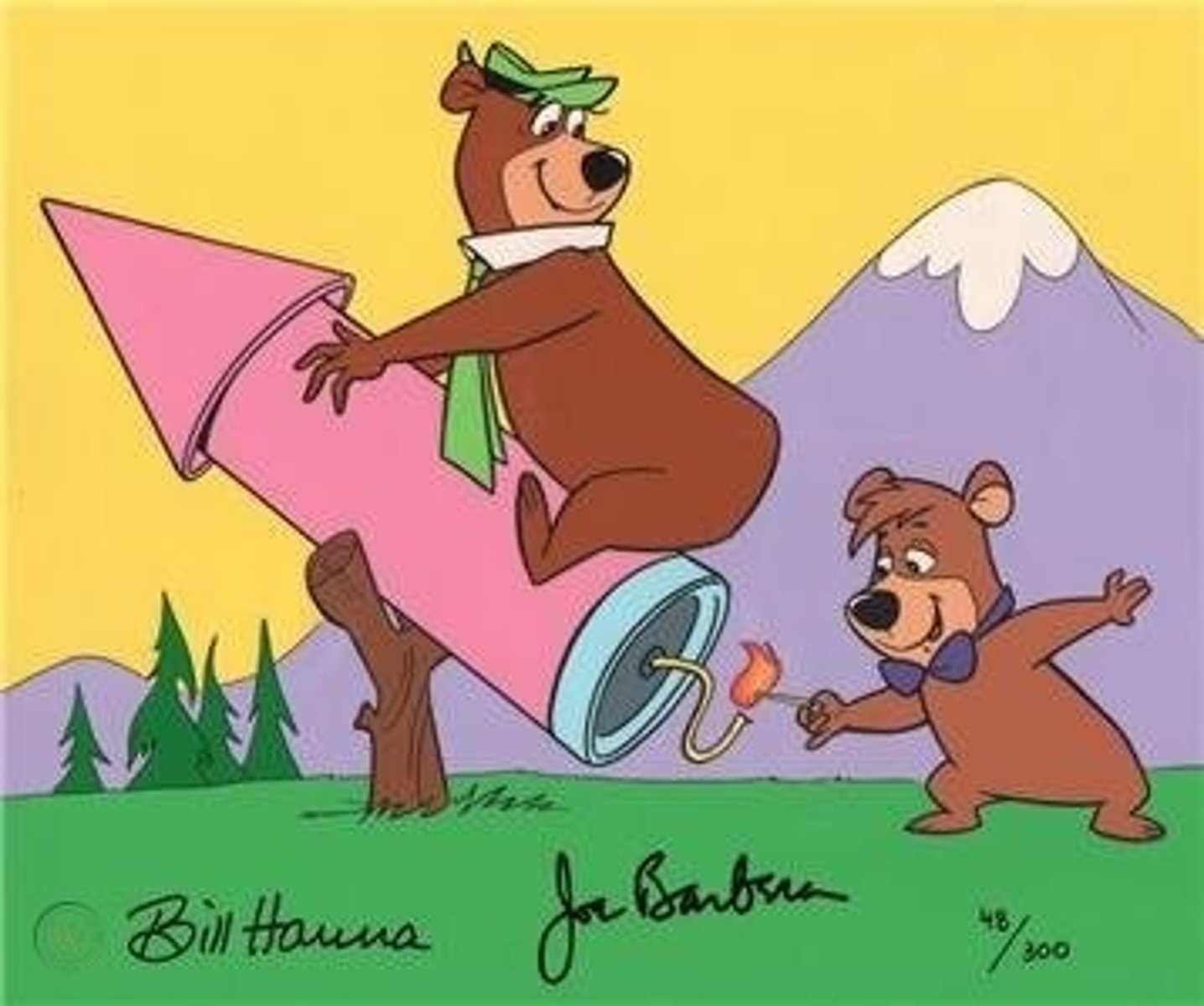
Quick Draw McGraw (1959-62)
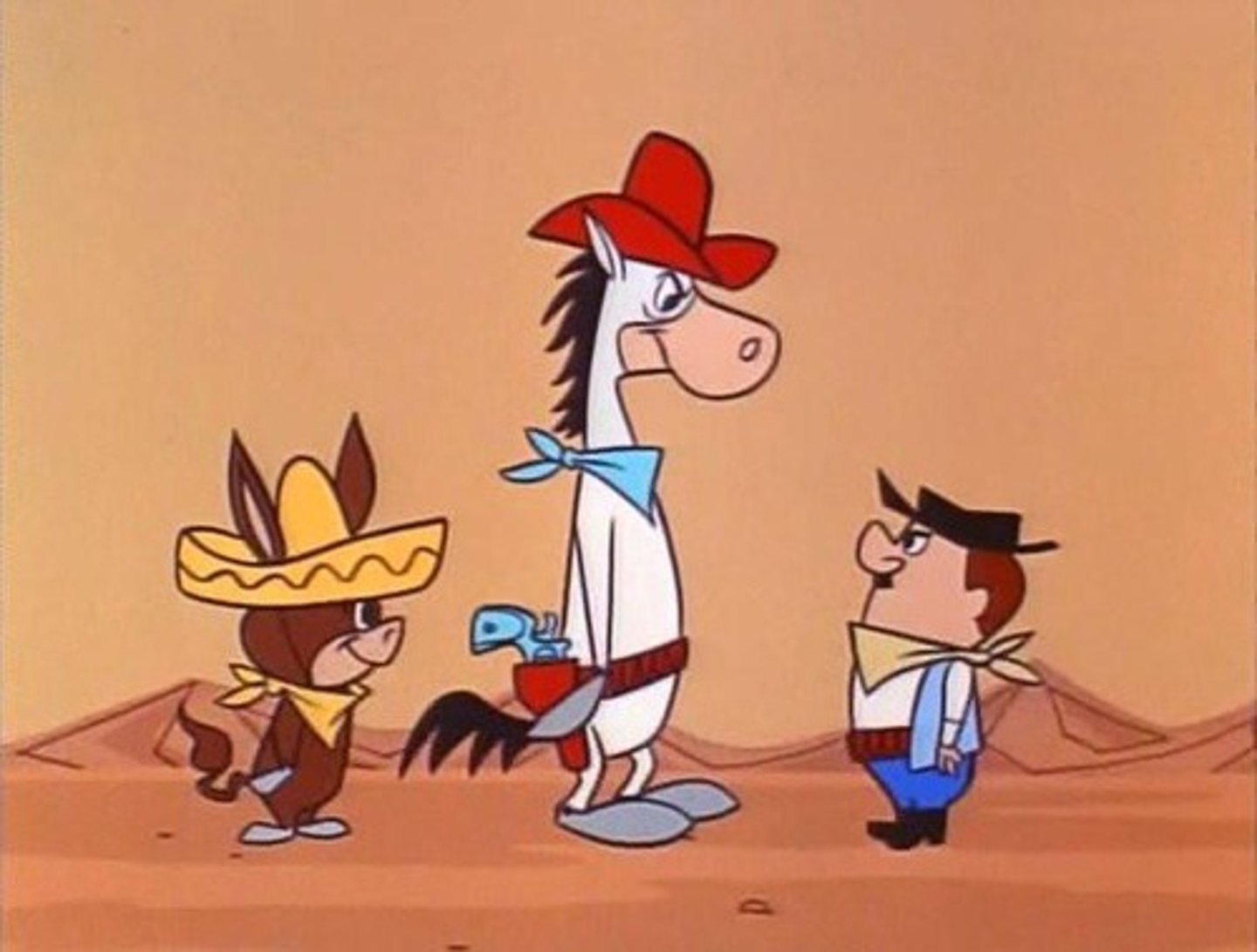
Space Ghost (1966-68)
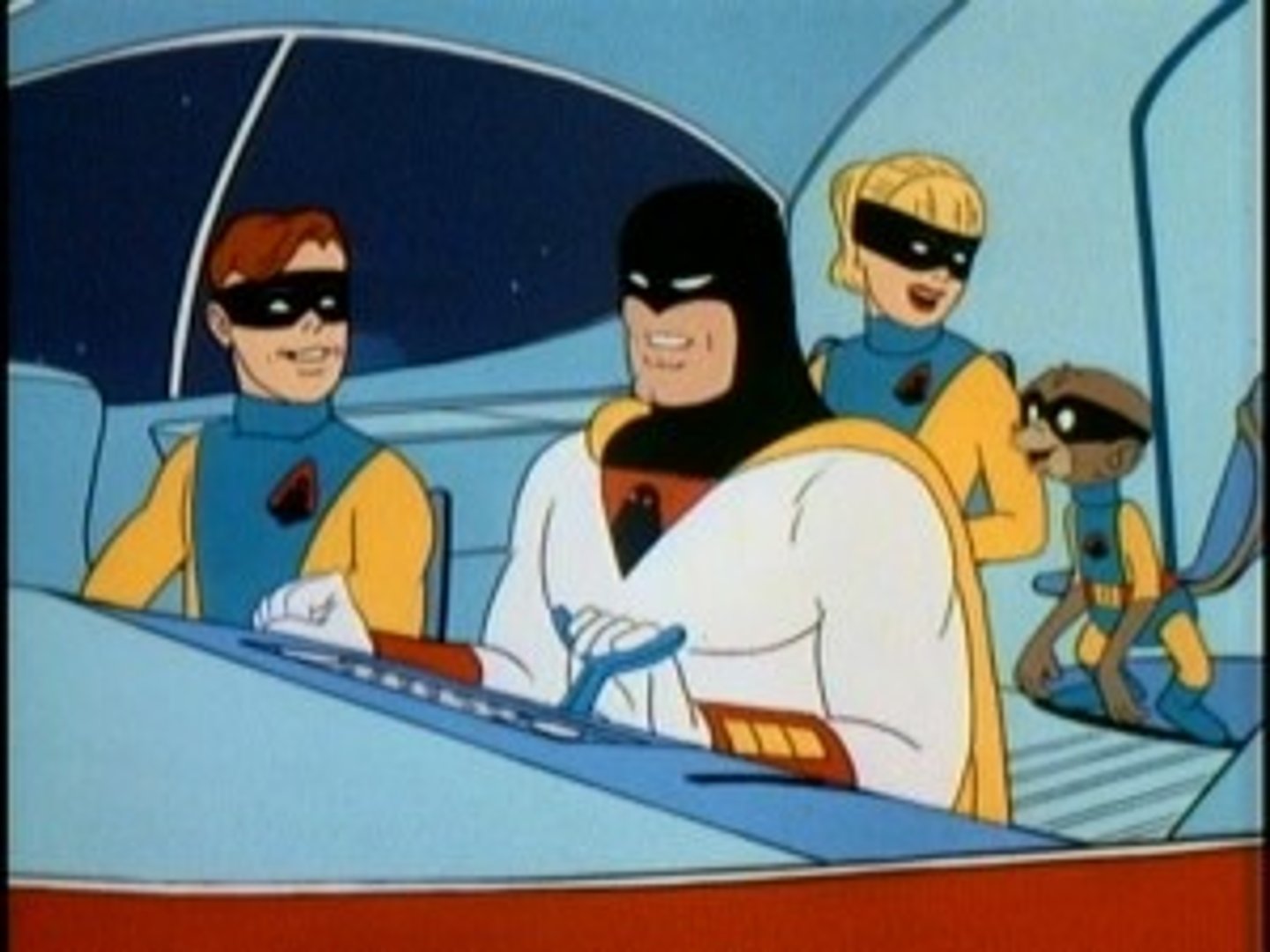
Top Cat (1961-63)
popular in mexico
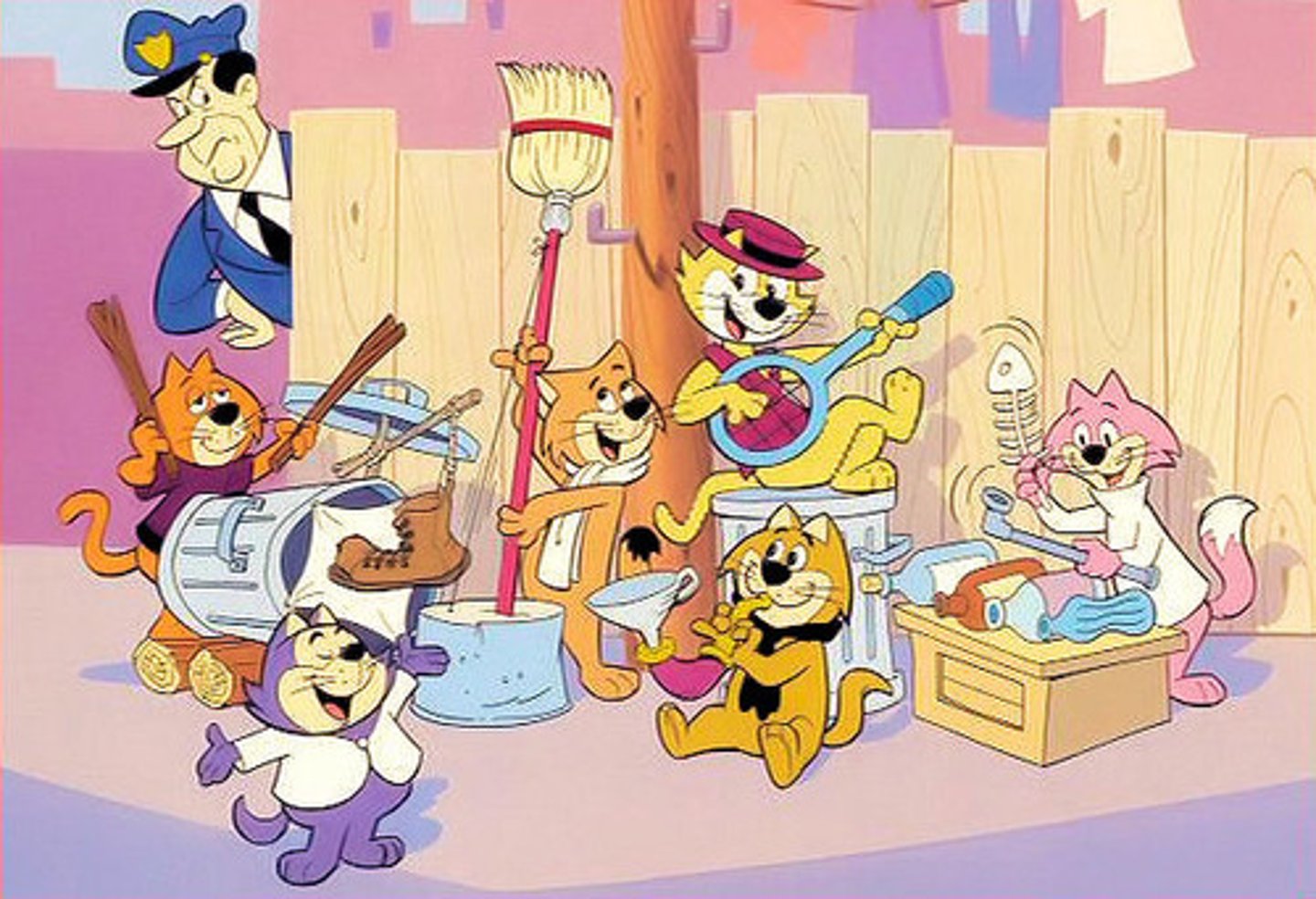
Mister Magoo's Christmas Carol (1962)
The first animated holiday program produced for television. Produced by UPA with songs by Jule Styne and Bob Merrill
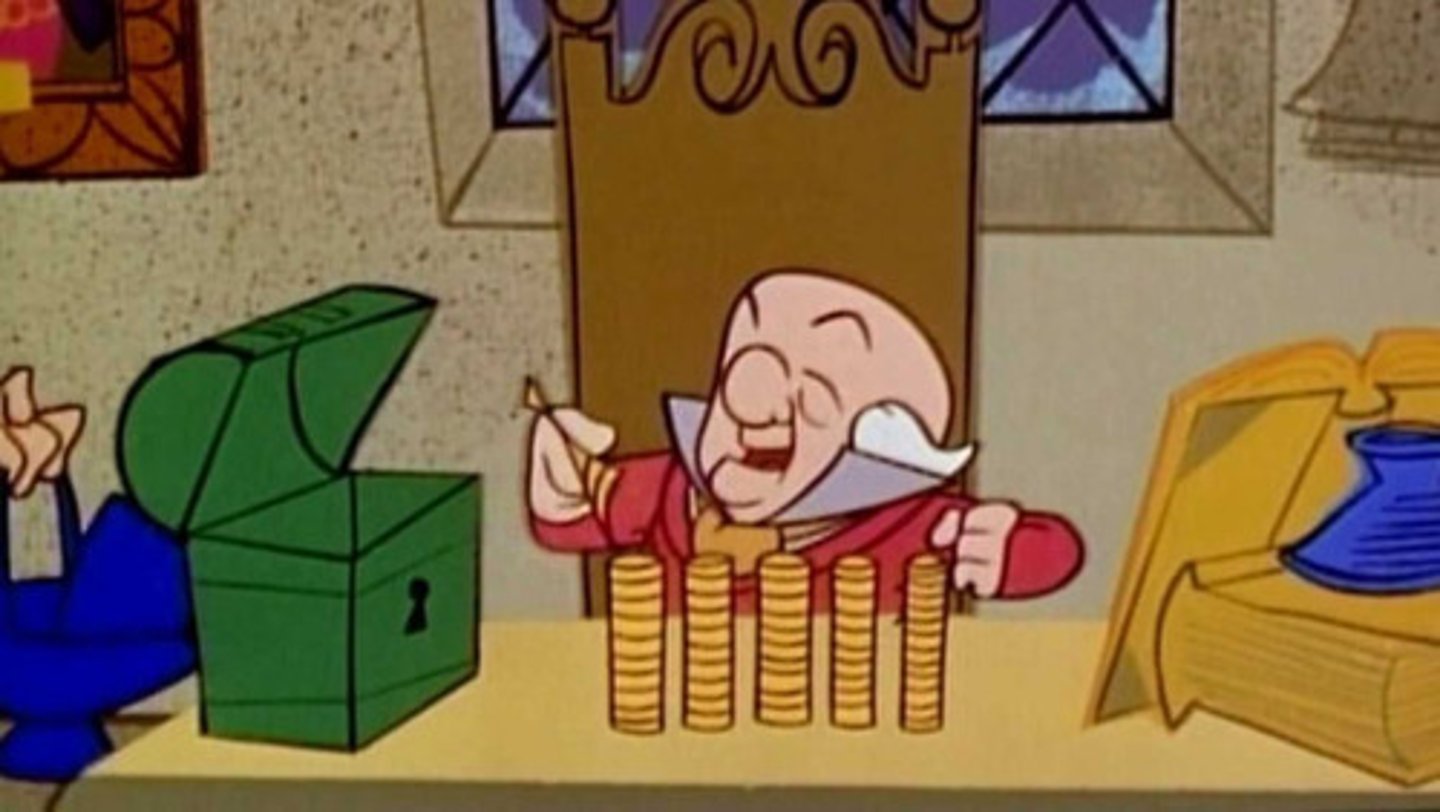
The Fox and the Hound (1981)
The film marked a turning point in the studio: Walt Disney's "Nine Old Men" did initial development, but the younger Disney crew completed the project
The transition caused friction. Don Bluth walked out to form his own studio.
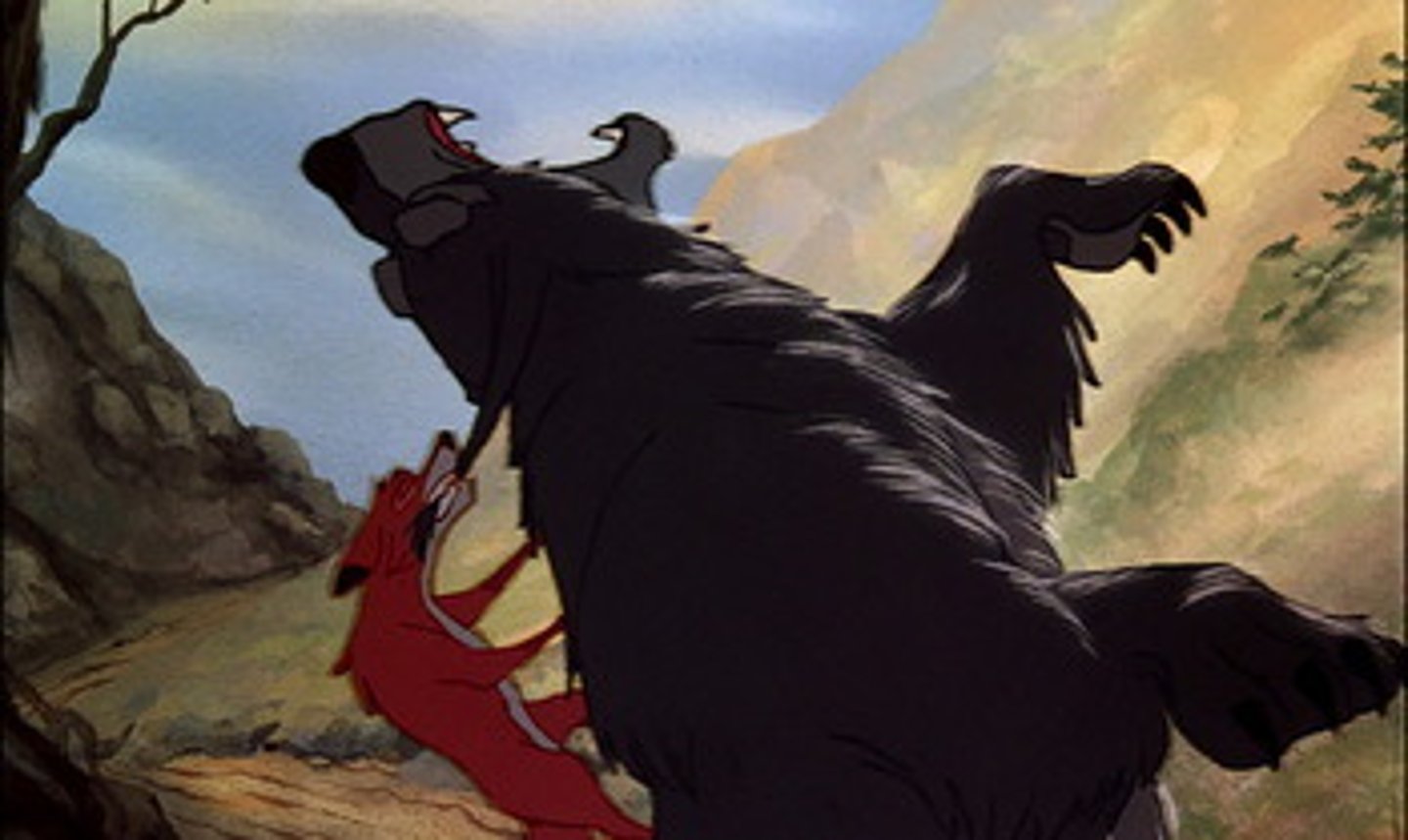
The Black Cauldron (1985)
Loosely based on The Chronicles of Prydain by Lloyd Alexander, this is the first Disney feature to be rated PG, as well as the first to use computer-generated imagery
The film's failure at the box office put the future of the animation department in doubt
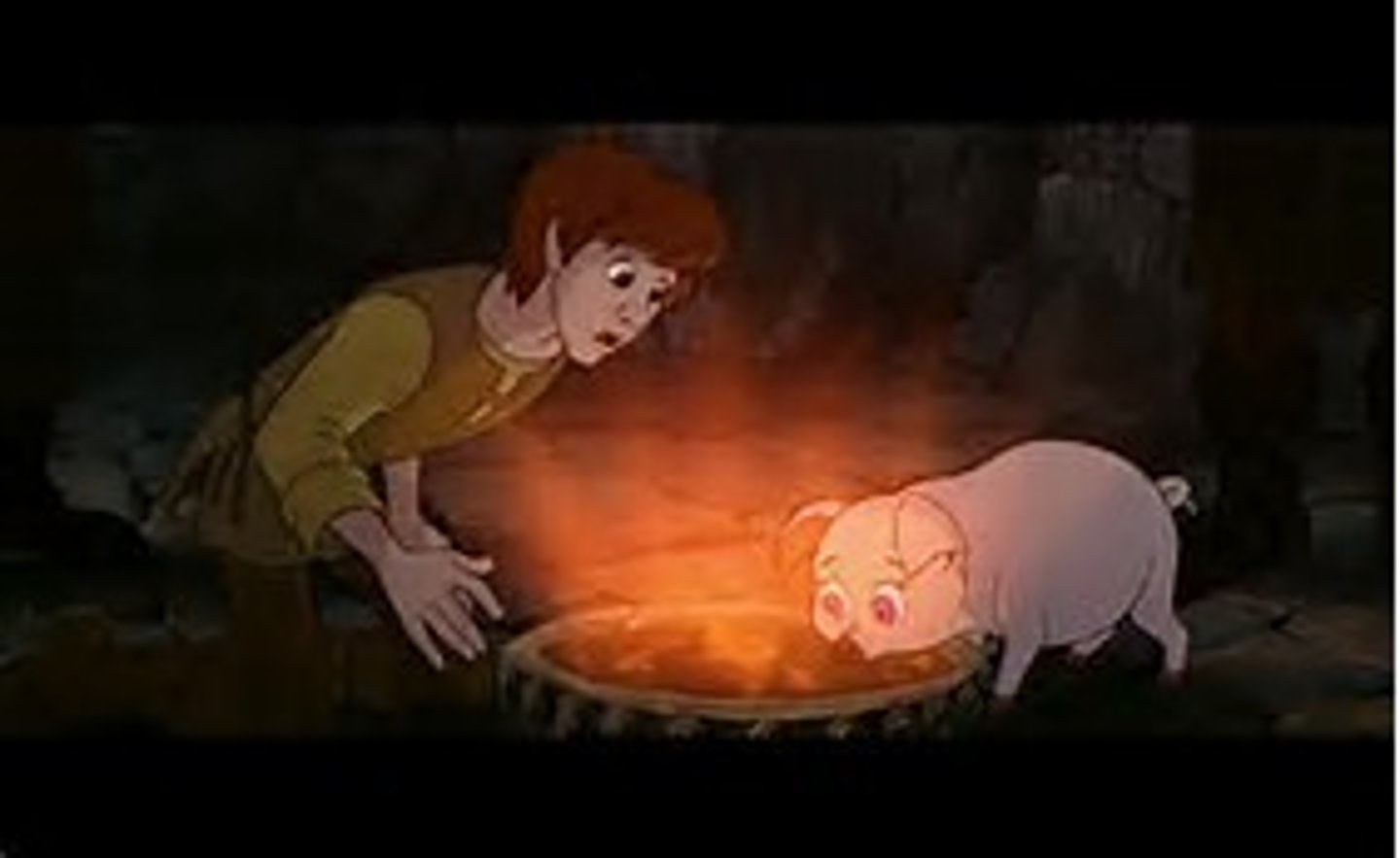
The Secret of Nimh (1982)
An adaptation of Robert C. O'Brien's Mrs. Frisby and the Rats of NIMH. Directed by Don Bluth with the goal of returning feature animation to its "golden era"
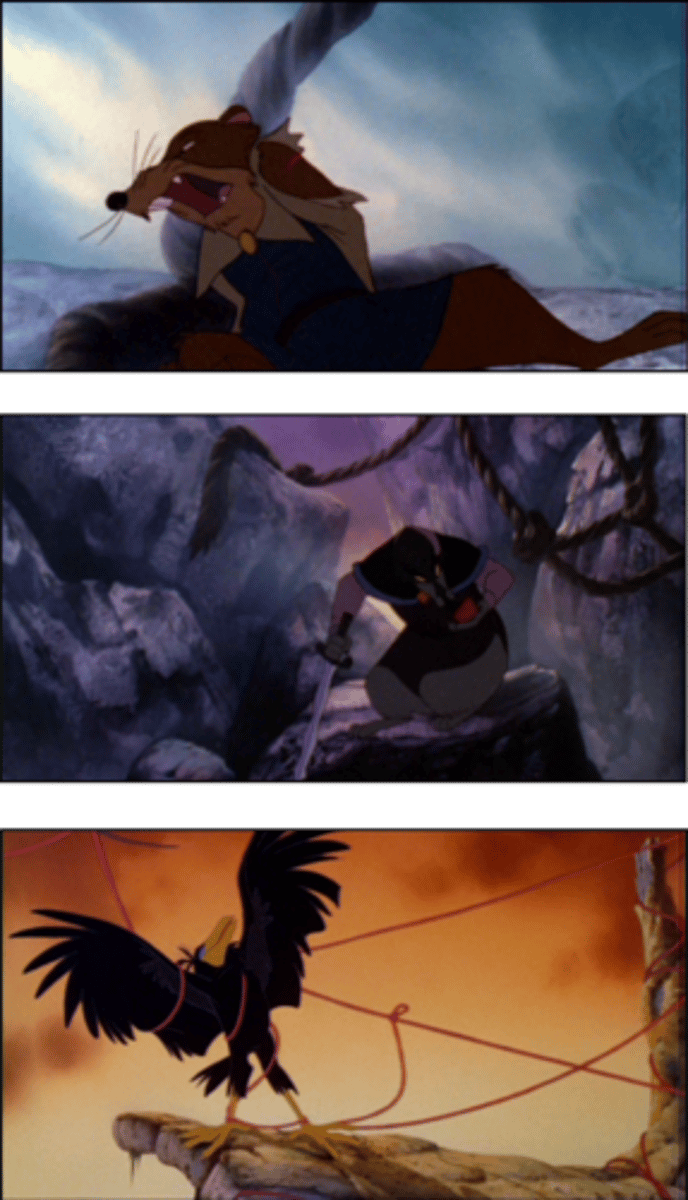
An American Tail (1986)
Directed by Don Bluth and co-produced by Amblin Entertainment.
This was Steven Spielberg's entry into animation— based on his family
The film was successful, eventually leading Spielberg to establish Amblimation, later to become DreamWorks Animation, co-founded with Jeffrey Katzenberg and David Geffen. The song, "Somewhere Out There" received an Academy Award nomination
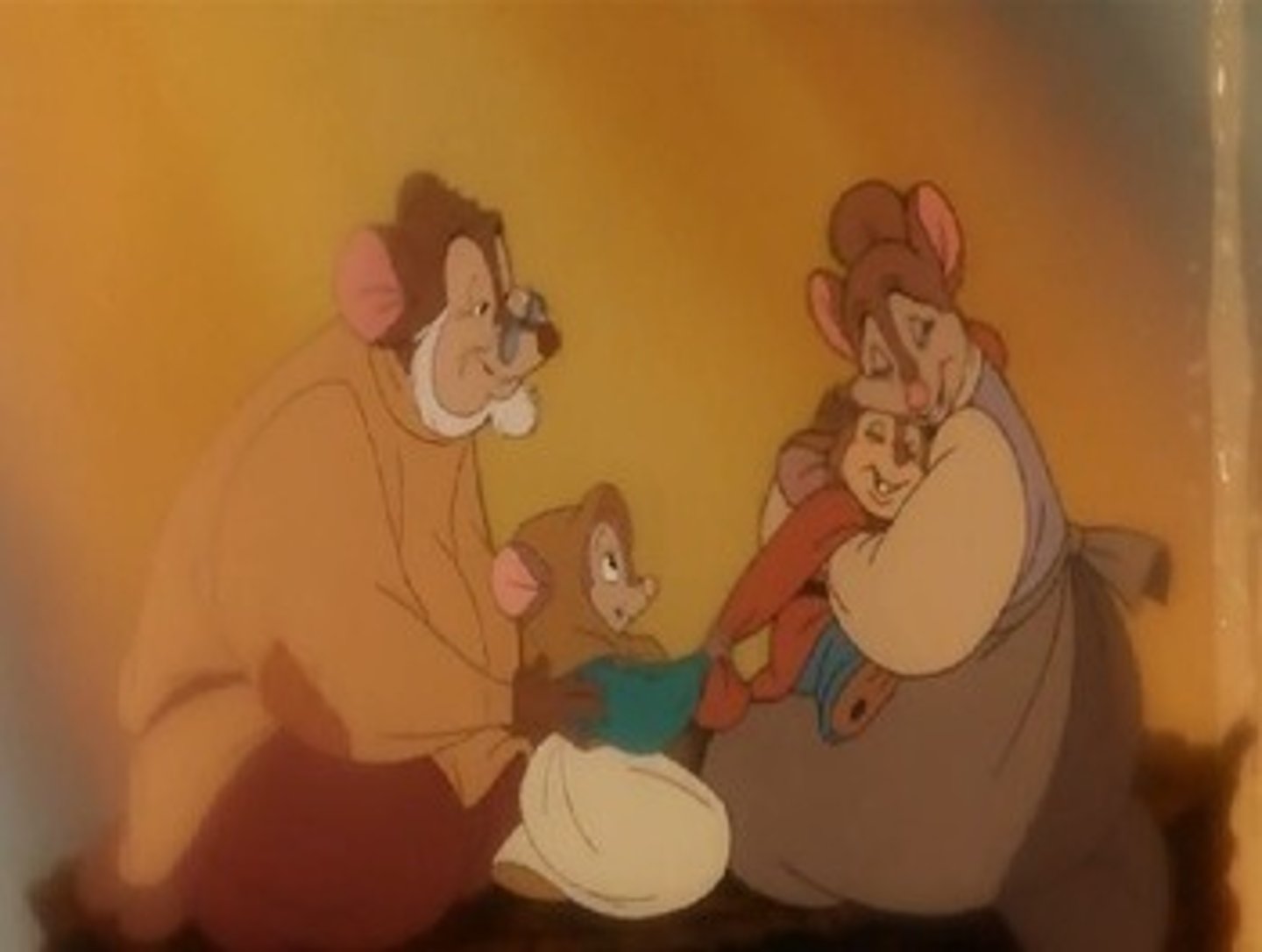
Who Framed Roger Rabbit (1986)
Amblin Entertainment and Richard Williams Productions
Reminded the general public how awesome animation is
Meta by starting the movie with the animated short
Used puppetry to have toons interact with humans and live action props
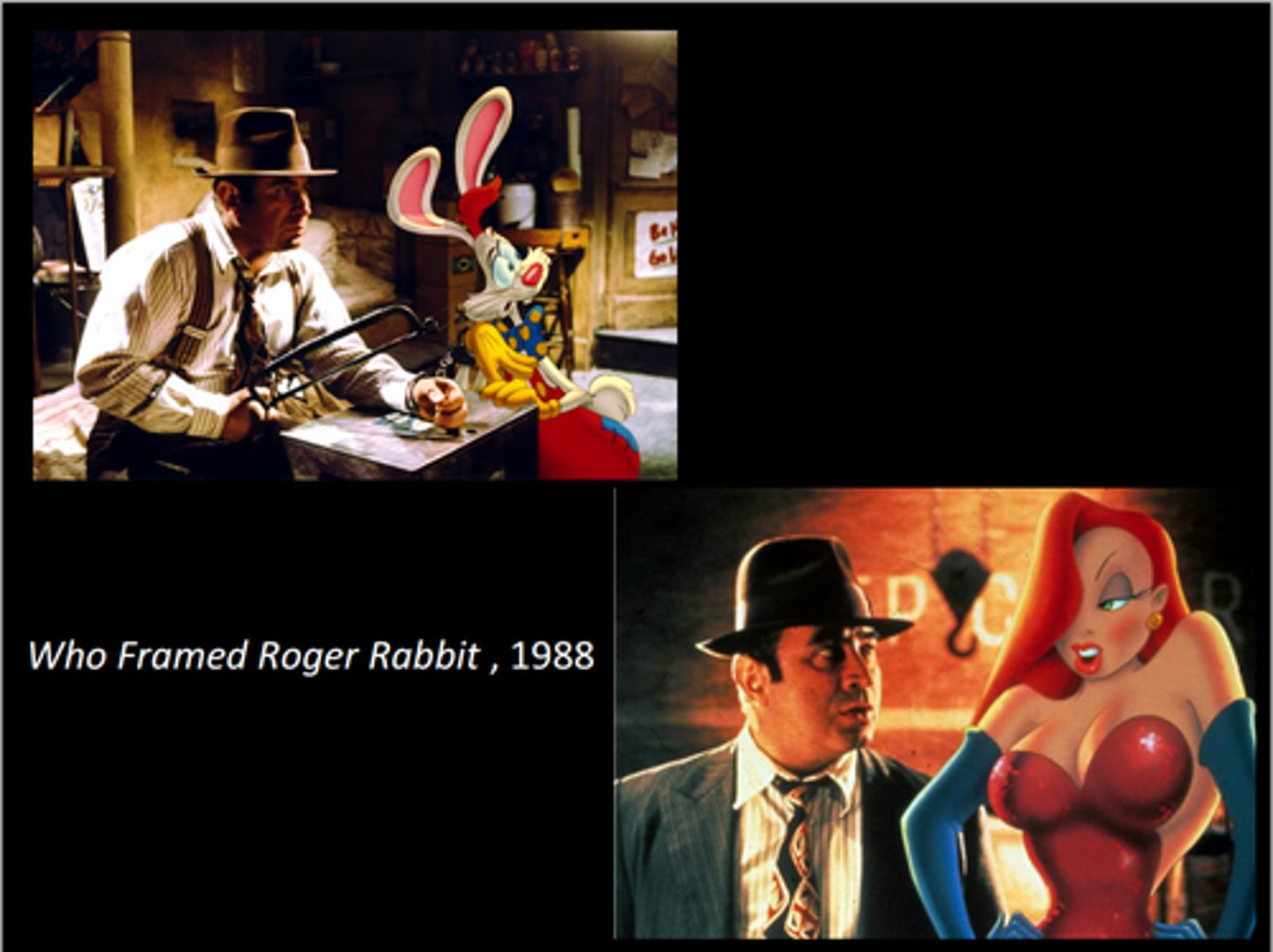
The Little Mermaid (1989)
Disney
Following on the heels of An American Tale and Who Framed Roger Rabbit (1988), Ron Clements and John Musker wrote and directed the story based on a Hans Christian Andersen fairy tale
Told in a traditional musical format, featuring a score by Howard Ashman (lyrics) and Alan Menken (music), this film marks the beginning of the new Disney renaissance and the rebirth of animated feature films
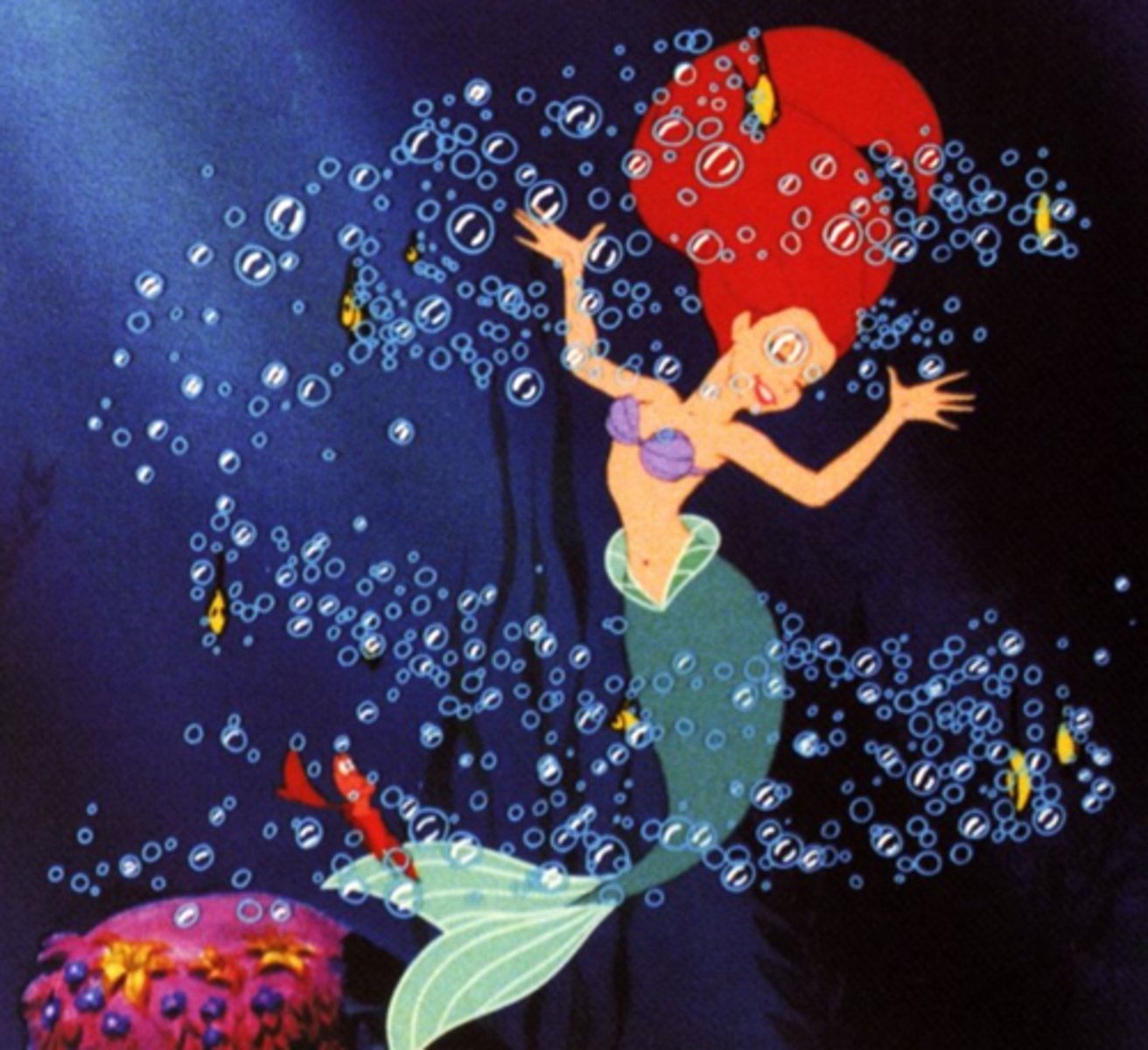
BEAUTY AND THE BEAST (1991)
Was first to be a non-musical, but eventually The Little Mermaid's Howard Ashman and Alan Menken were brought in. Ashman also served as an executive producer
The film went on to be nominated for a Best Picture Academy Award
Computer animation used in the ballroom scene
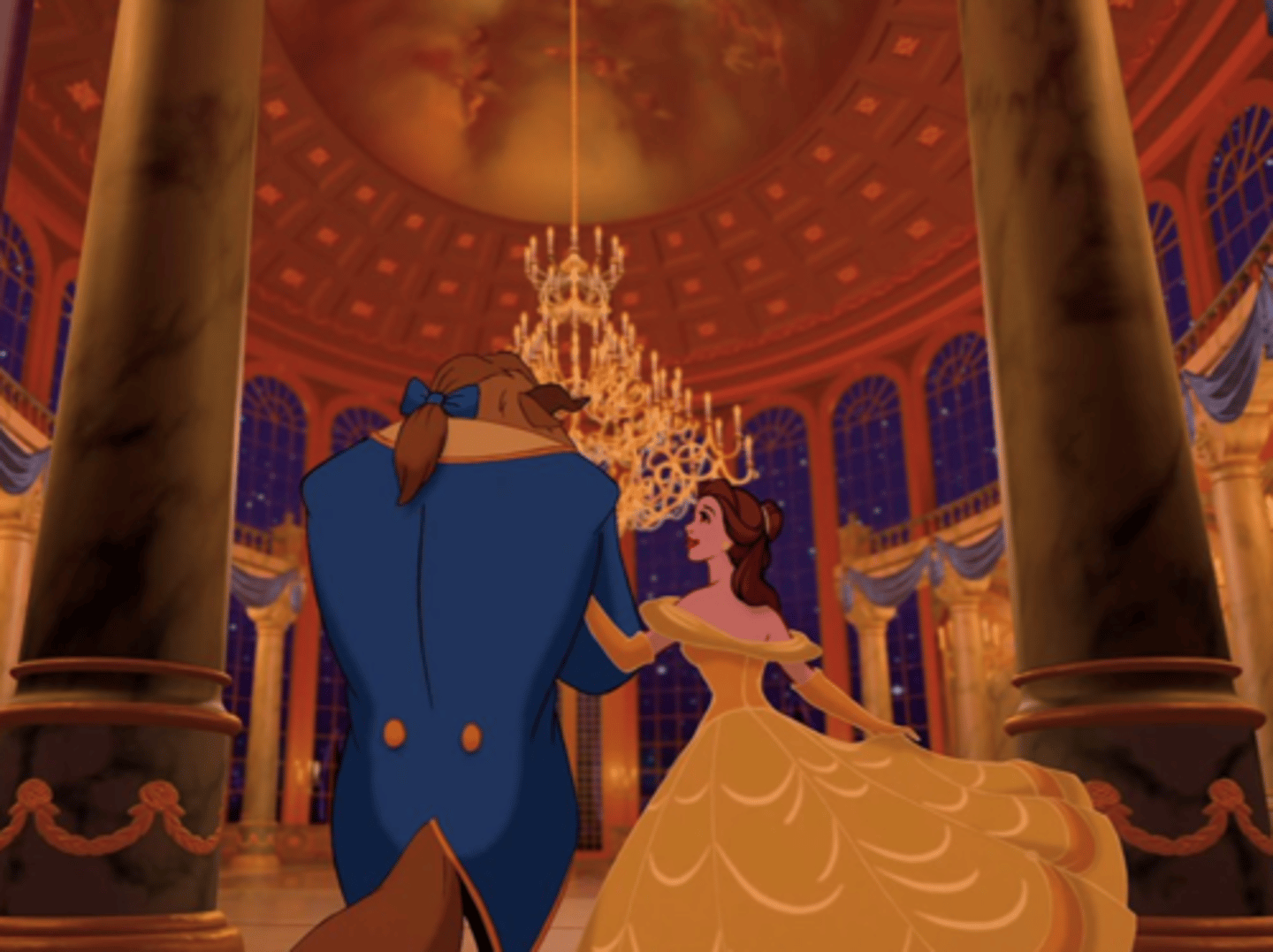
Aladdin (1992)
Disney
Howard Ashman first pitched the idea, with designs based on the work of caricaturist Al Hirschfeld
Computers were used for ink, paint and compositing as well as building some animated elements like the carpet pattern
Alan Menken and Tim Rice, who took over after Ashman's death, did the songs
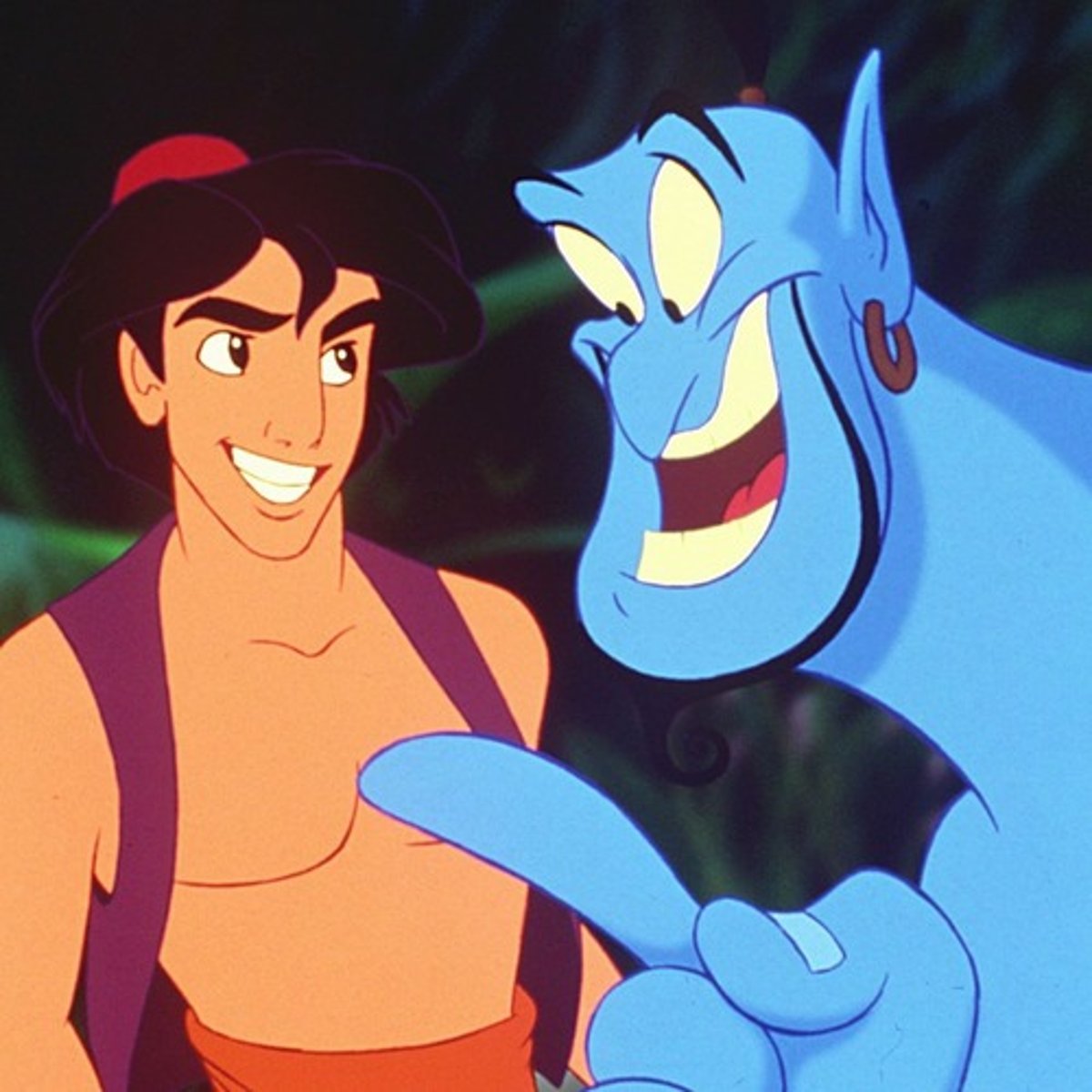
THE LION KING (1994)
Influenced by Shakespeare's Hamlet
Directed by Roger Allers and Rob Minkoff
Started off as a "Dumbo-esque" B picture but evolved into a mega-hit
Original songs by Elton John and Tim Rice, with a score by Hans Zimmer
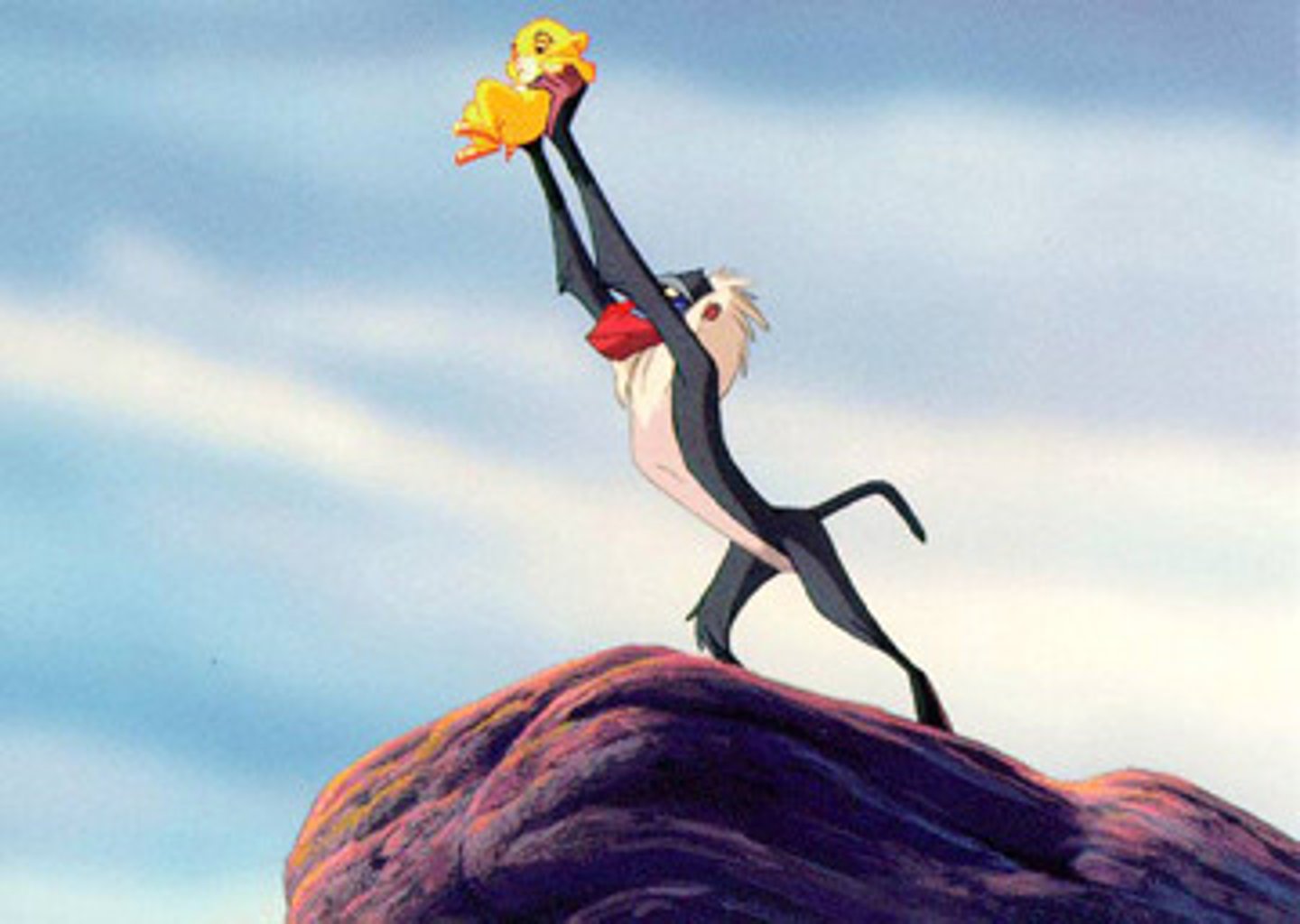
A COMPUTER ANIMATED HAND (1972)
Ed Catmull and Fred Parke produced this short, one of the first examples of computer animation
Catmull animated an early computer model of his own hand
Park contributed facial animation
The film was a course project when the two were graduate students at the University of Utah
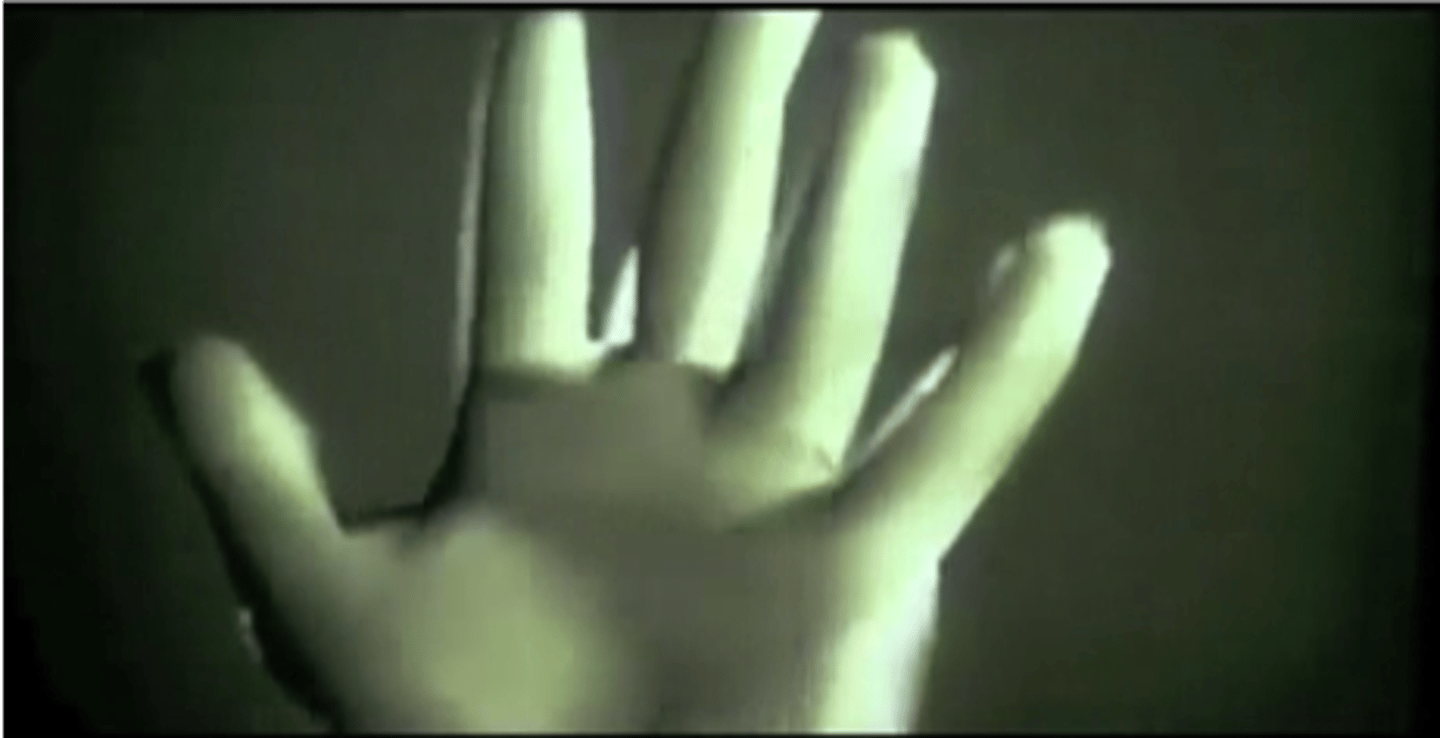
Tron (1982)
Written and directed by Steven Lisberger, tells the story of a computer programmer who is transported inside the software world of a mainframe computer where he interacts with programs in his attempt to escape
received an Academy Award for Technical Achievement fourteen years after its initial release
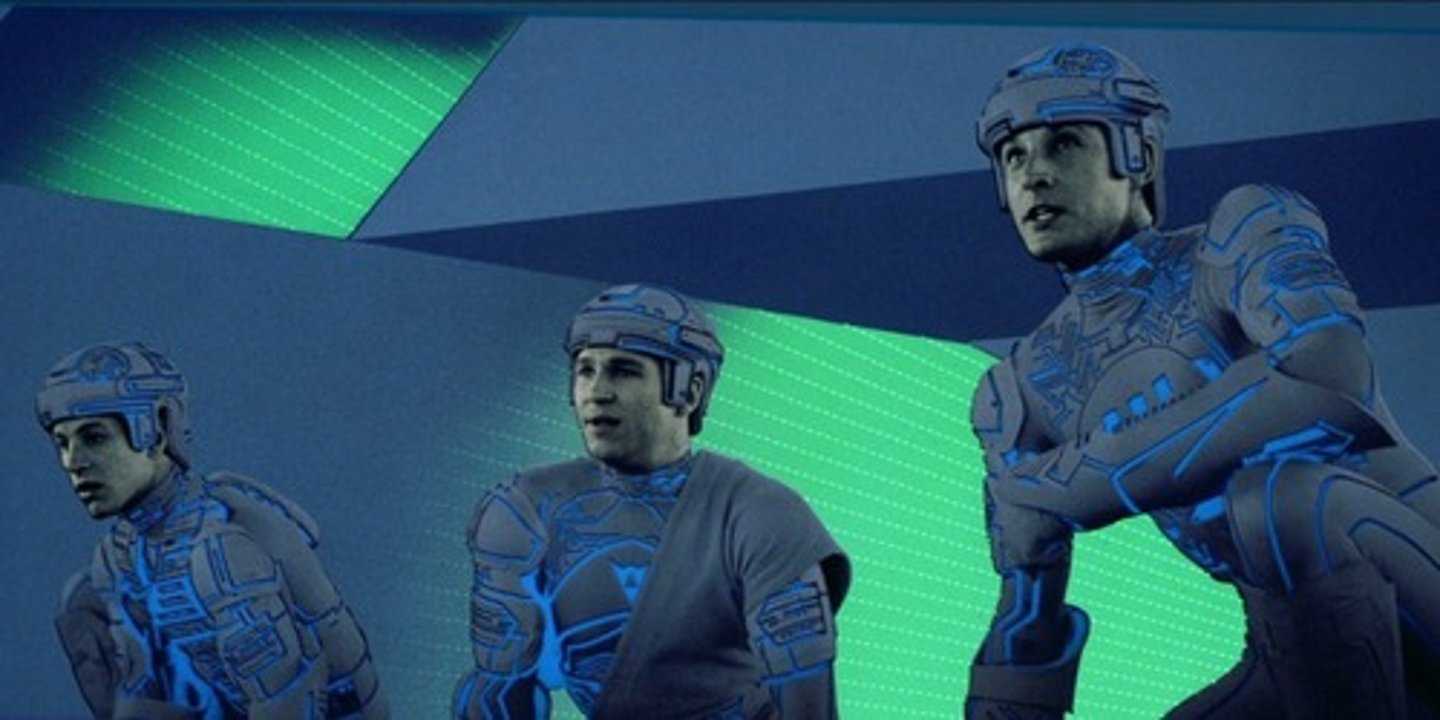
Brilliance (1984)
(aka: Sexy Robot)
A Robert Abel television commercial for the Canned Food Information Council, featured an early method of motion capture technology to create a robot with reflective environmental mapping and human motion
ADVENTURES OF ANDRÉ & WALLY B. (1984)
Lucasfilm computer graphics project
The Graphics Group (later Pixar) with animation by John Lasseter, featuring shapes capable of squash and stretch, the first use of motion blur and complex 3D backgrounds
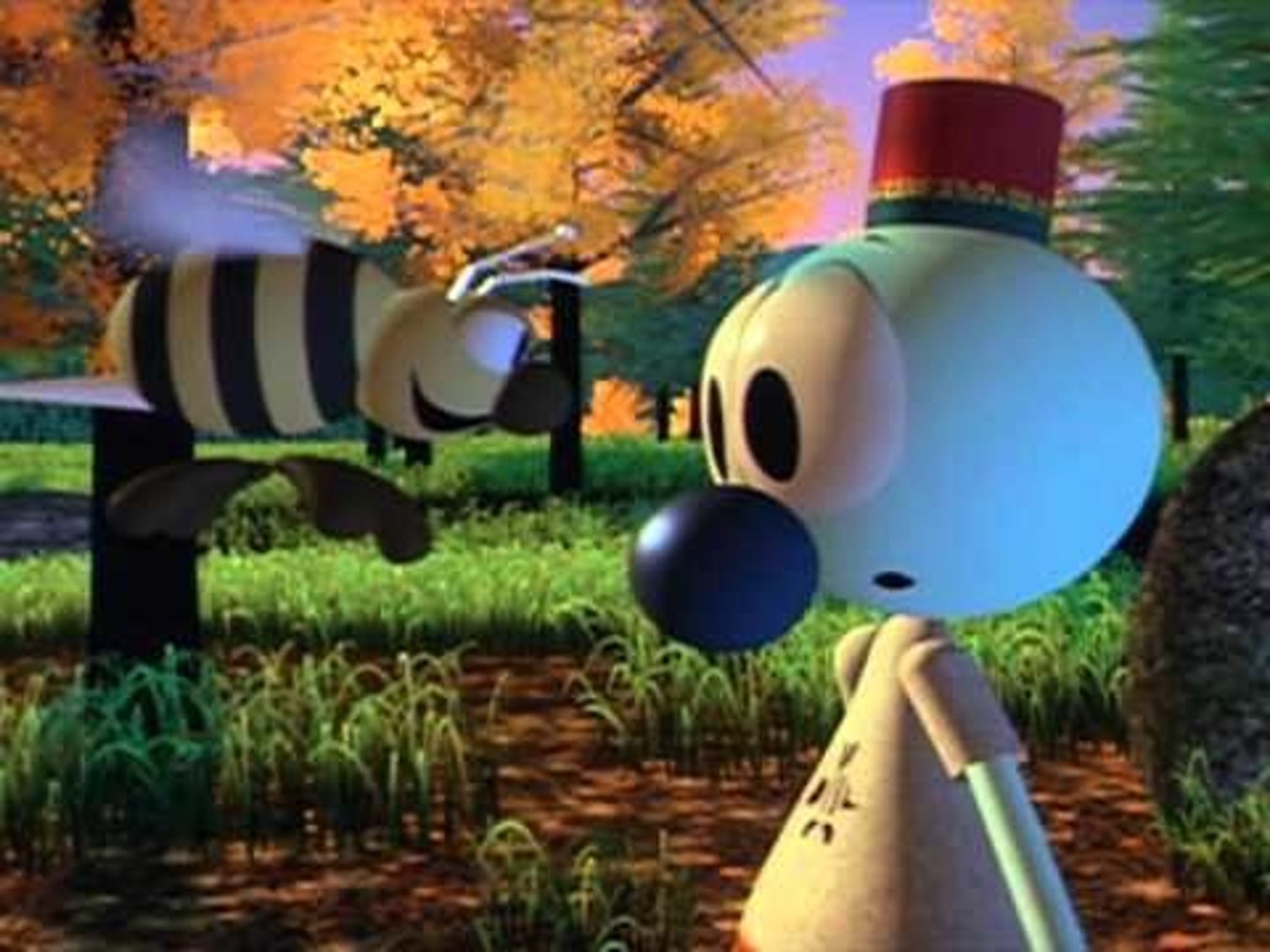
Luxo Jr. (1986)
Pixar's first animation after Ed Catmull and John Lasseter left Industrial Light and Magic's computer division. It is the source of Pixar's corporate logo
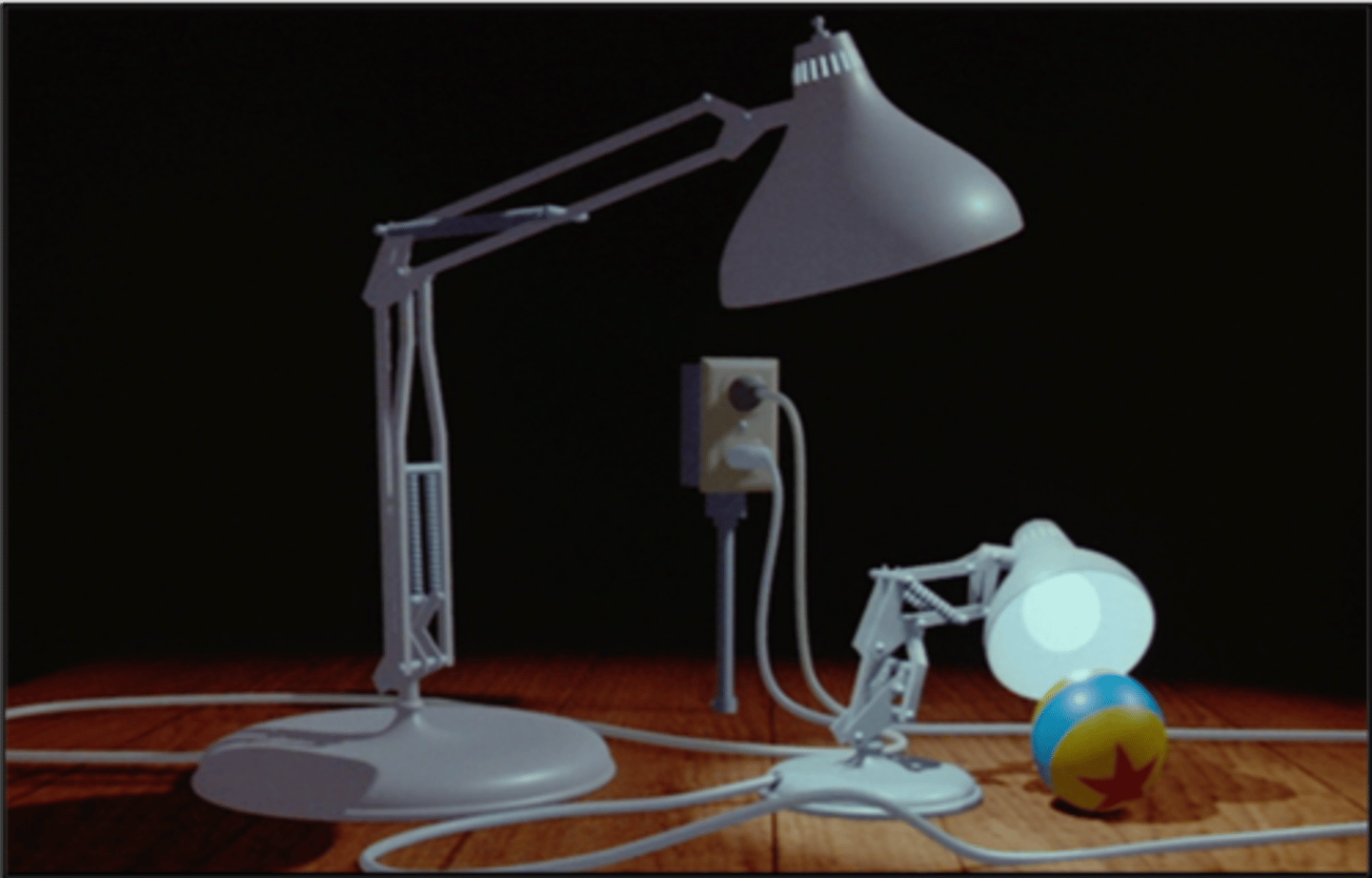
Tin Toy (1988)
Officially a test of the photo-realistic RenderMan software
Pixar's first Academy Award, and the first CGI film to win an Oscar, Tin Toy got attention from Disney Studios, agreeing to finance and distribute Toy Story
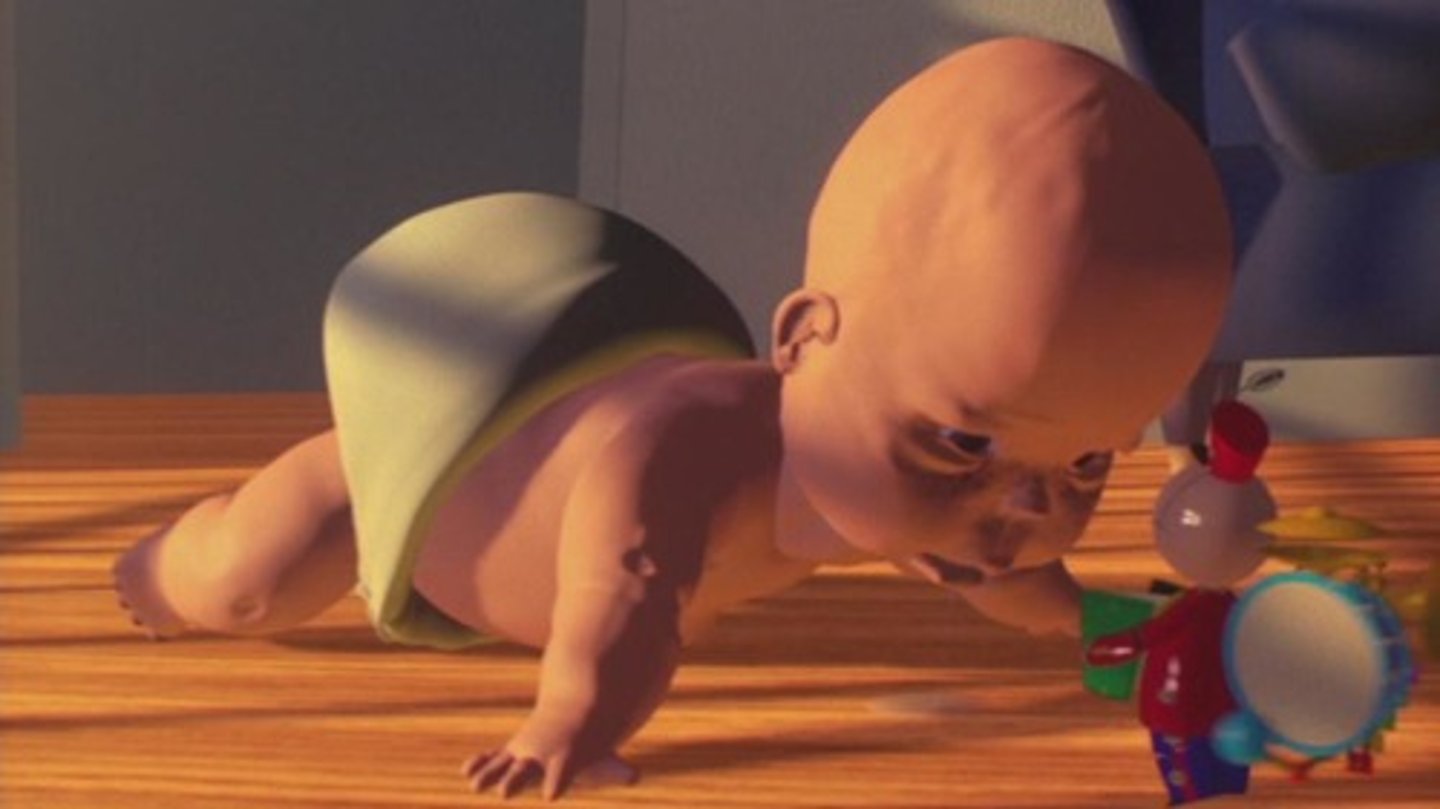
KNICK KNACK (1989)
Inspired by Tom and Jerry, Looney Tunes, Chuck Jones and Tex Avery shorts, Bobby McFerrin improvised the acapella vocal jazz soundtrack to the film while watching a rough cut

Toy Story (1995)
The first feature-length computer-animated film and the first theatrical film produced by Pixar, Toy Story introduced CGI to feature animation
Its influence continues to the present
Has three sequels
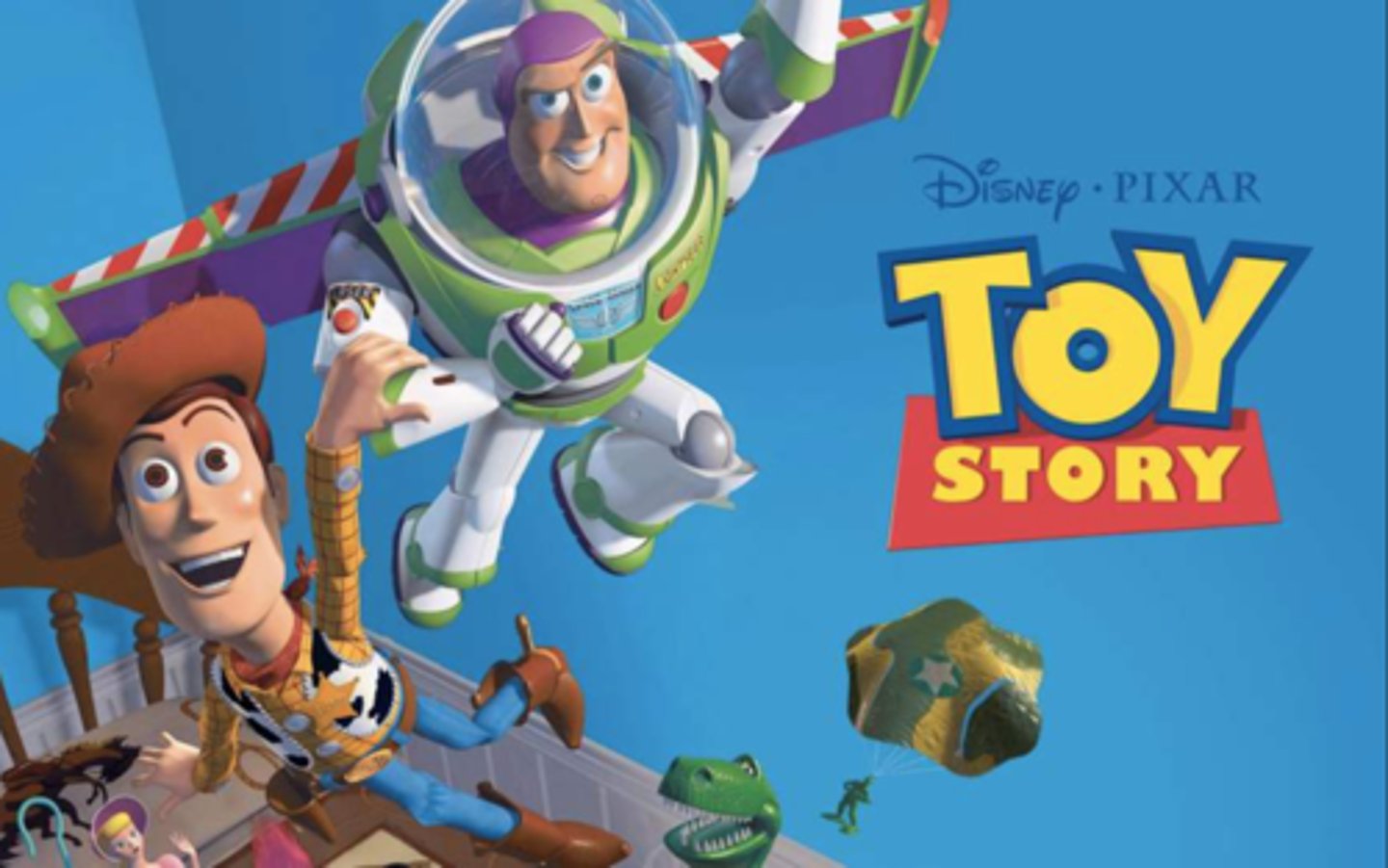
The Simpsons (1989-present)
Created by Matt Groening, first as interstitial breaks for The Tracey Ullman Show, The Simpsons is now in its 28th season, with 601 episodes to date and another 20 or so slated through the current season. There is also one feature film, The Simpsons Movie (2007)
BEAVIS AND BUTT- HEAD (1993-97 and 2011)
Created by Mike Judge, originating as a short film called Frog Baseball (1992).The series was adapted into the animated feature film, Beavis and Butt-Head Do America (1996)
King of the Hill (1997-2010)
Created by Mike Judge and Greg Daniels
It centers on the Hills, a middle-class American family living in the fictional town of Arlen, Texas
Unlike Judge's scatological and raw Beavis & Butt-Head series, this show looks for the humor in everyday life
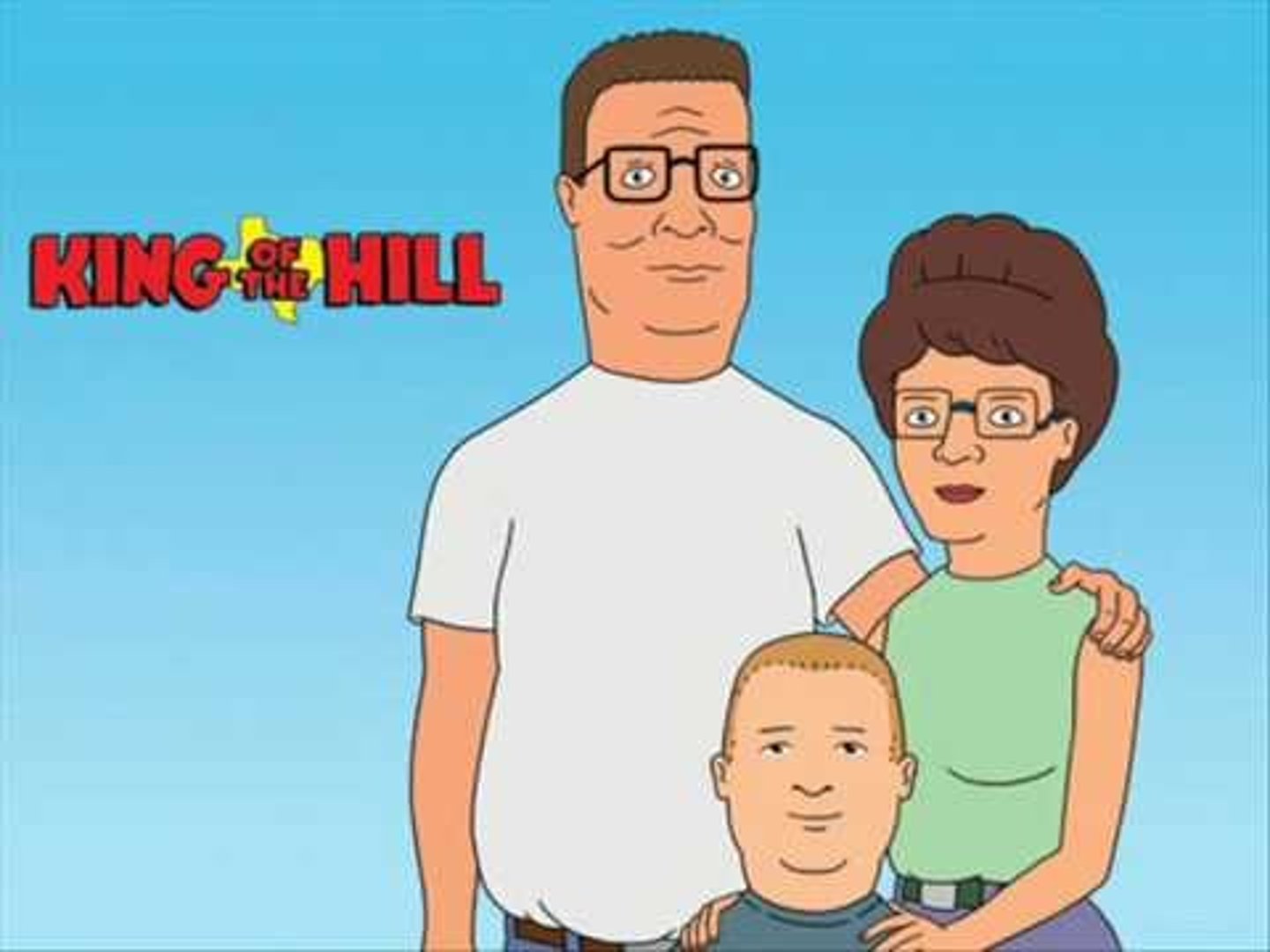
SOUTH PARK (1997)
Trey Parker and Matt Stone developed the show from two animated shorts Jesus Vs Frosty (1992) and The Spirit Of Christmas (1995)
The show is infamous for its crude language and dark satirical humor, often directed at cultural institutions and current events.
MAKE LOVE, NOT WARCRAFT (2010): A satire about video game addiction, Parker and Stone collaborated with Blizzard Entertainment to craft the machinima used in the episode.
"Jenkins the Griefer" became a symbol for hardcore gamers, internet addicts, keyboard warriors, and 'nerdy' obsessives
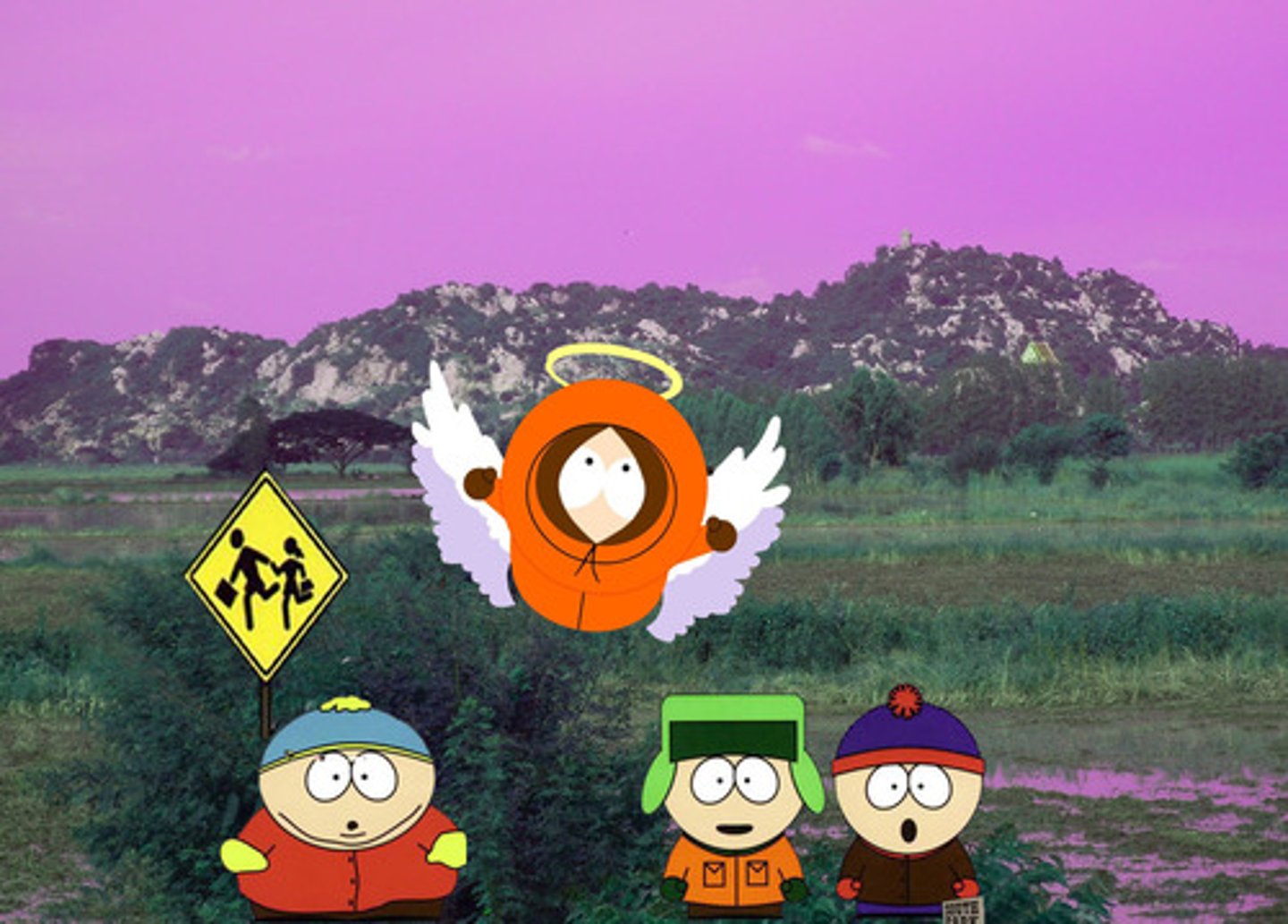
SPONGEBOB SQUAREPANTS (1999-present)
Stephen Hillenburg's long running series about a naively happy sponge, his friends and neighbors and other denizens in the undersea town of Bikini Bottom
Debuting in 1999 and running for 13 seasons, plus broadcast specials and three feature films
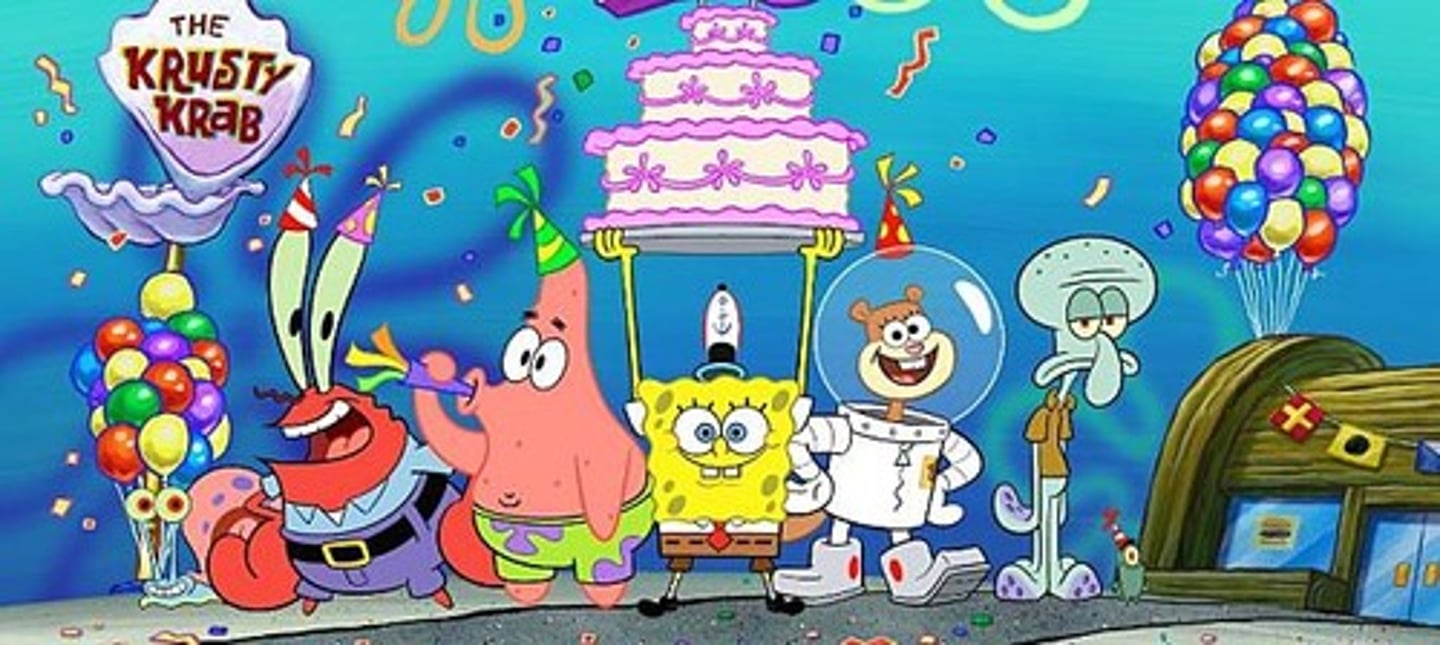
GENNDY TARTAKOVSKY'S PRIMAL
Prehistoric fantasy adult animated series (and compilation feature) about the adventures of a caveman and his dinosaur companion